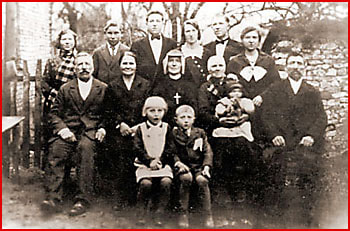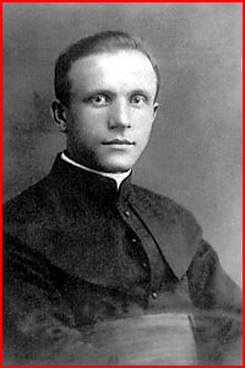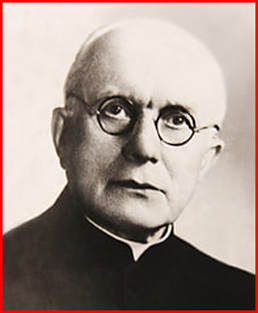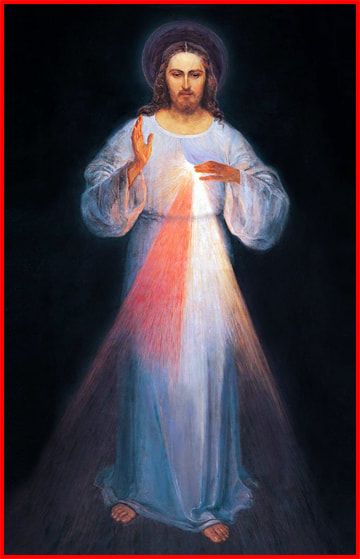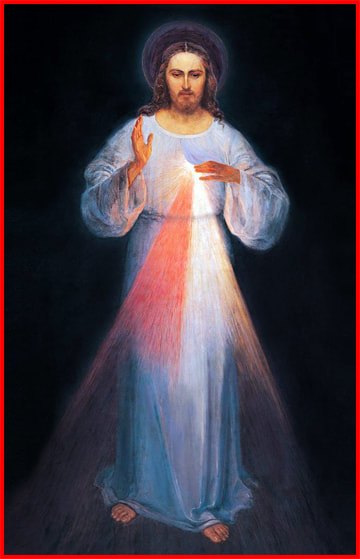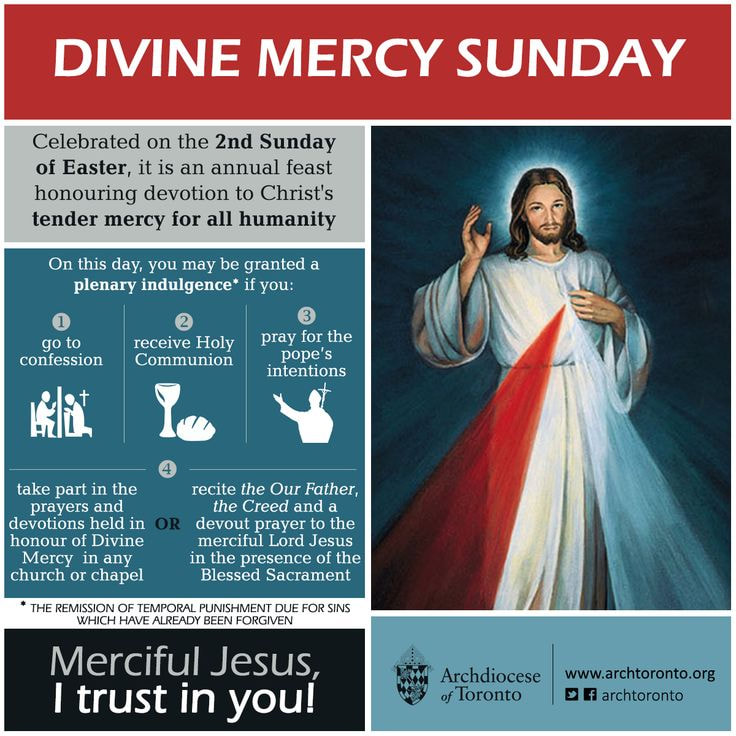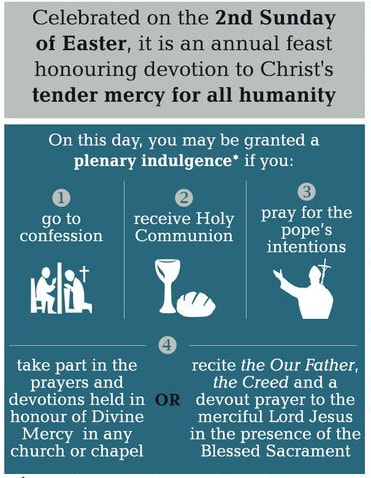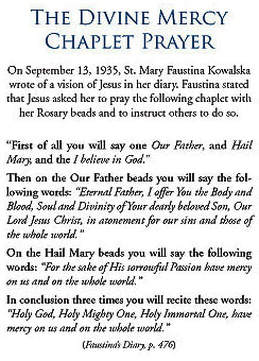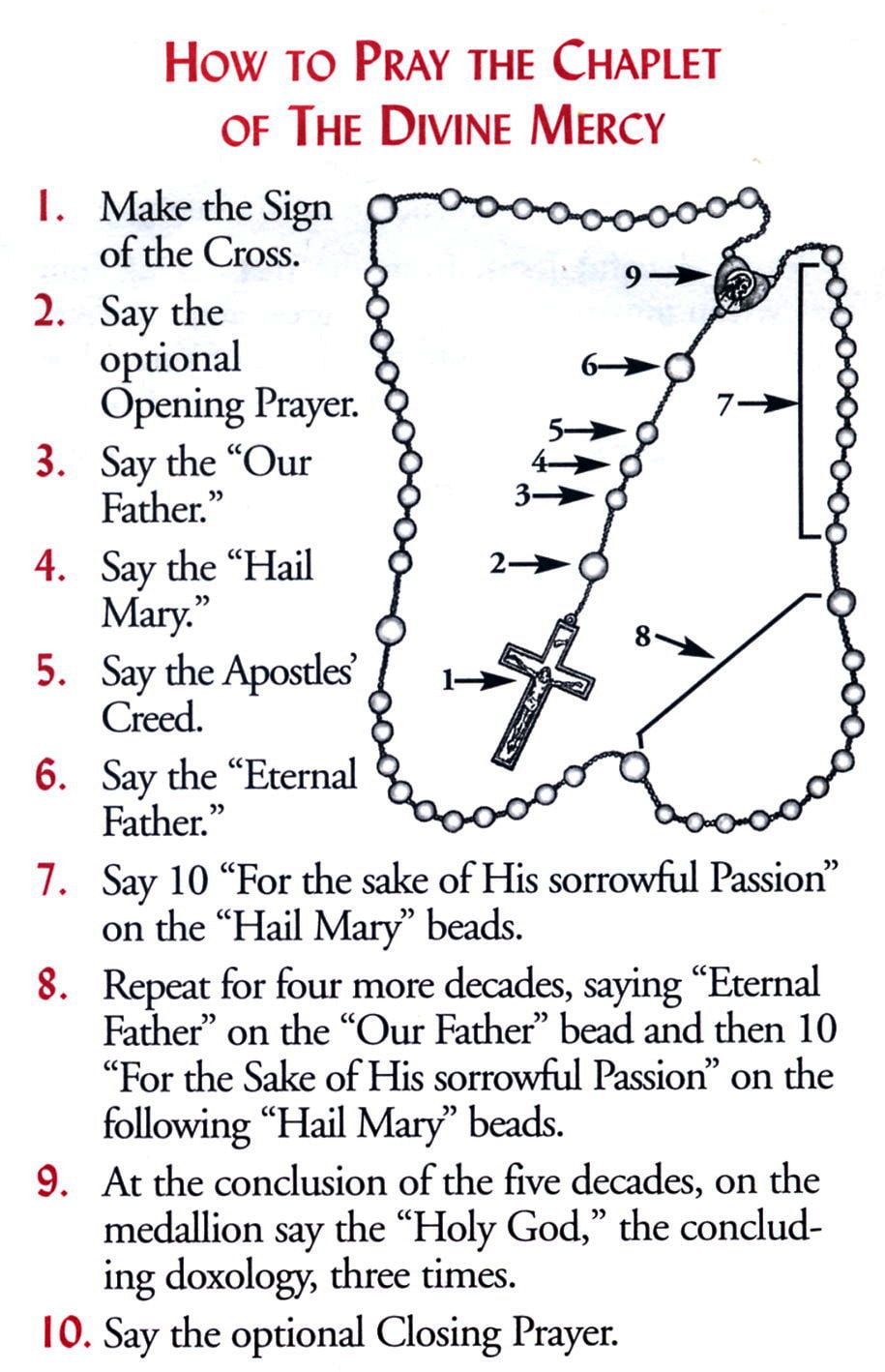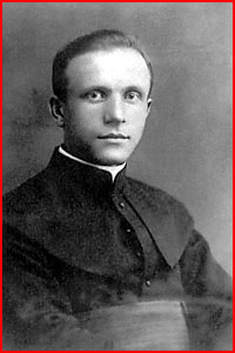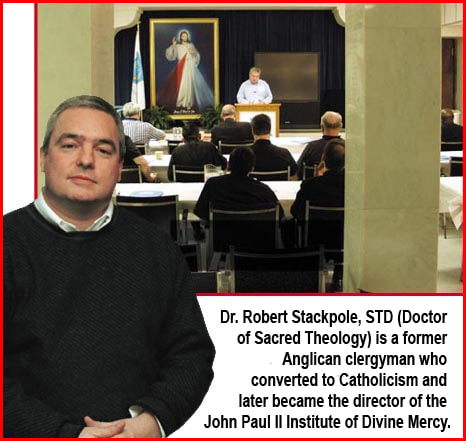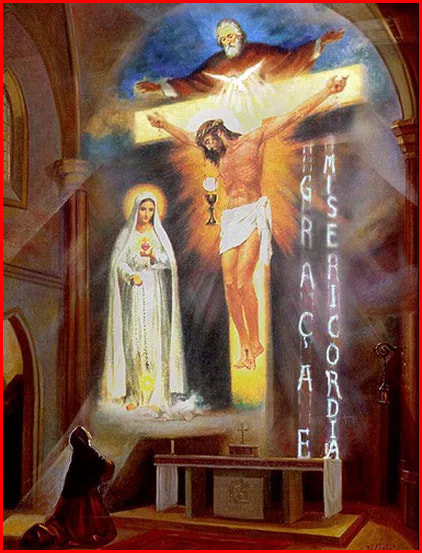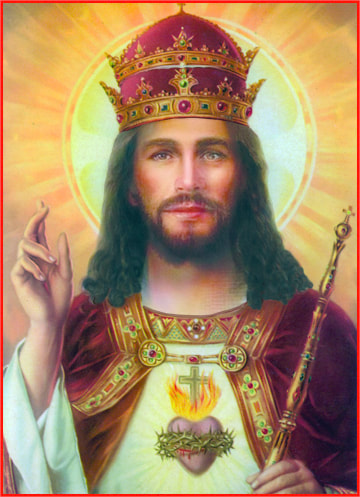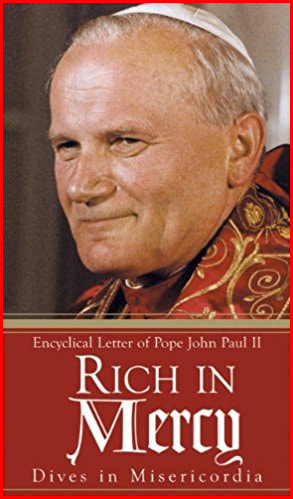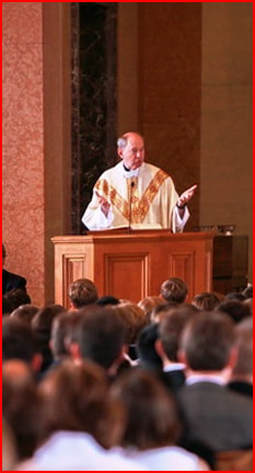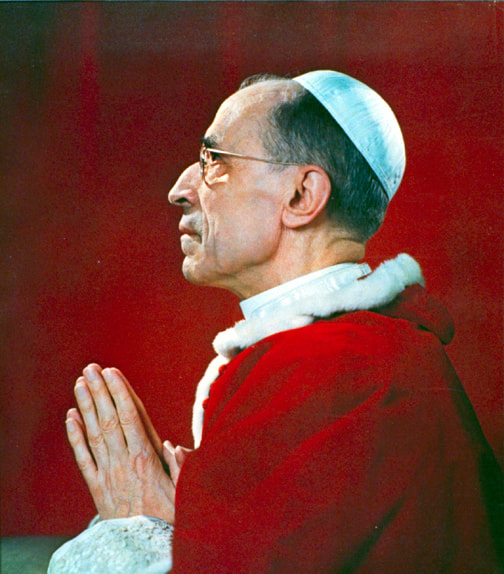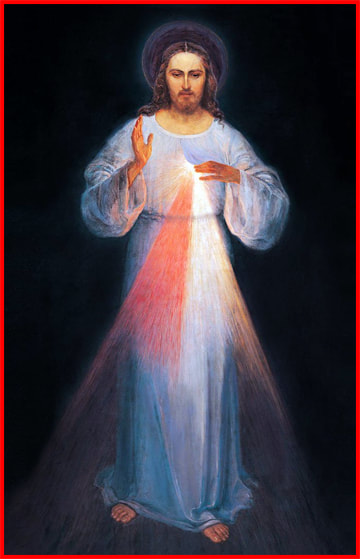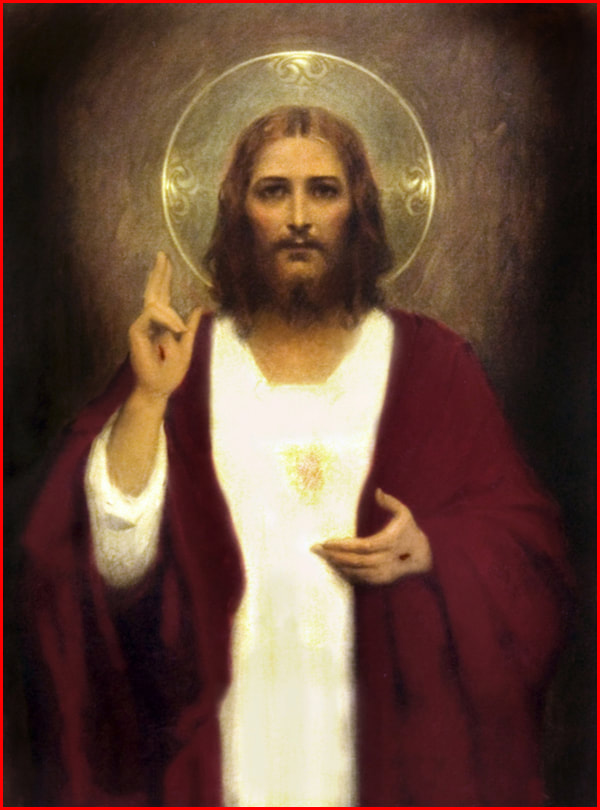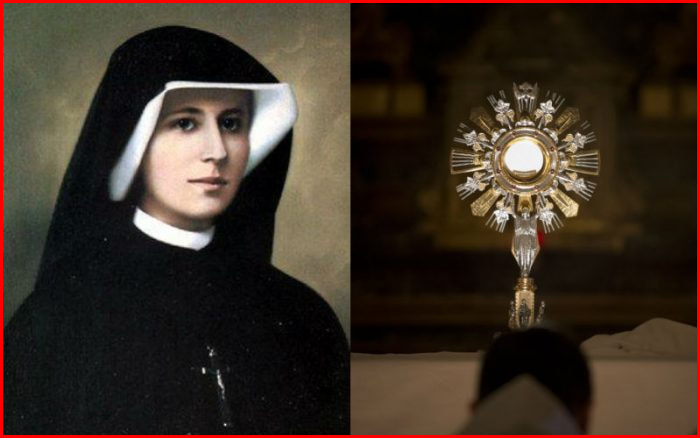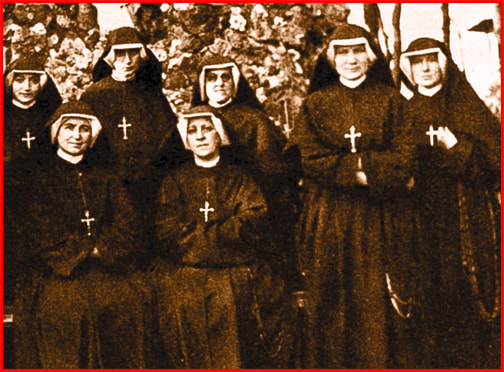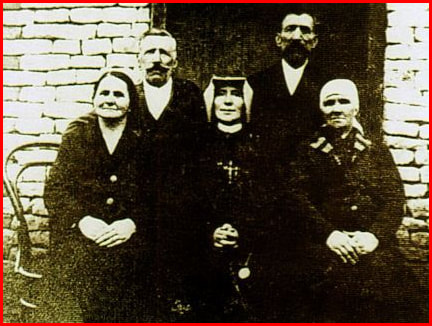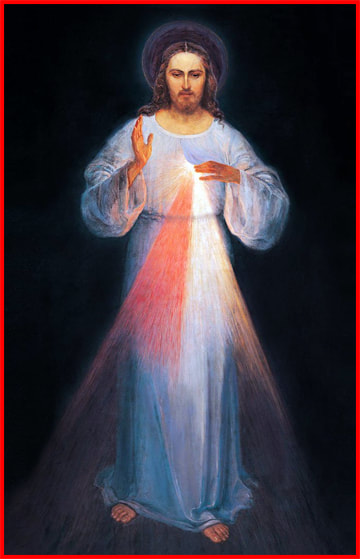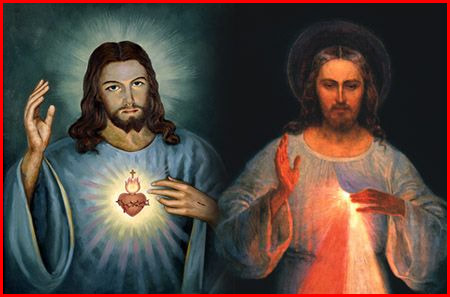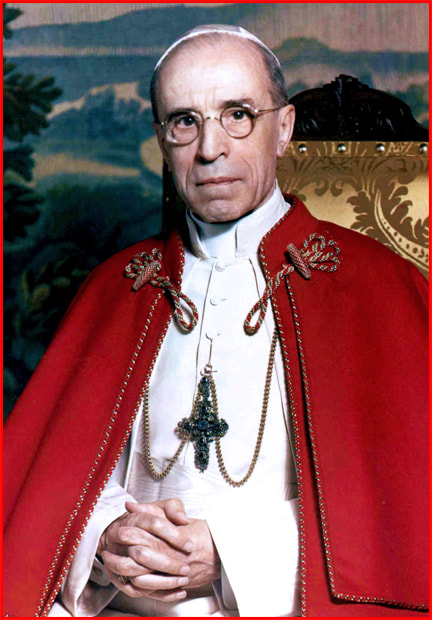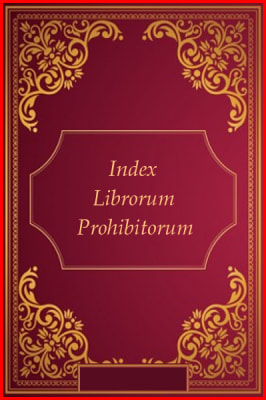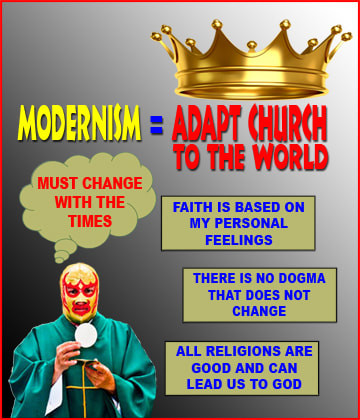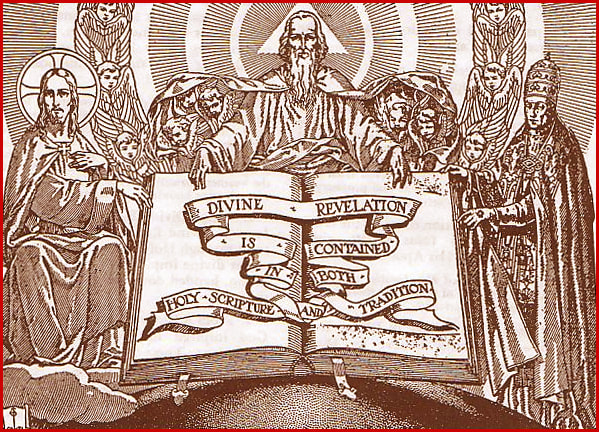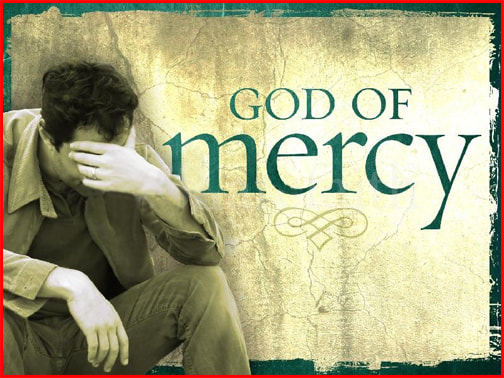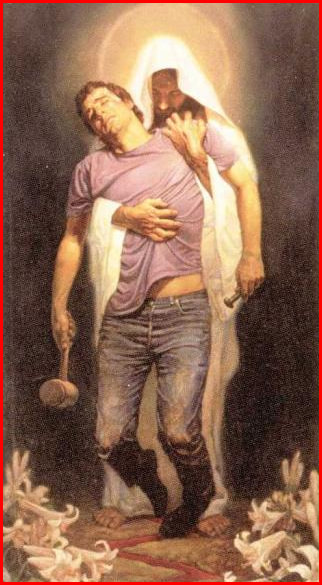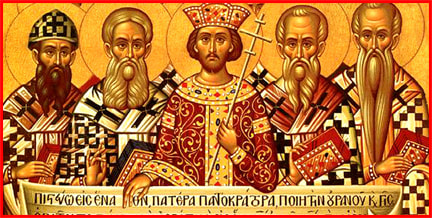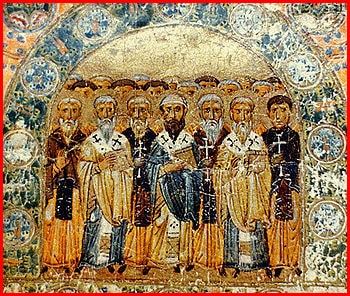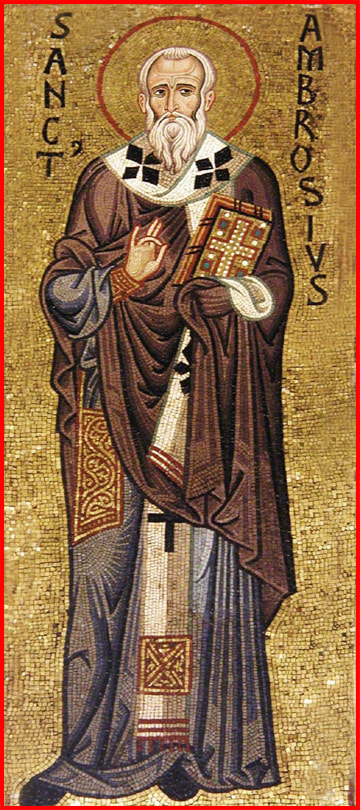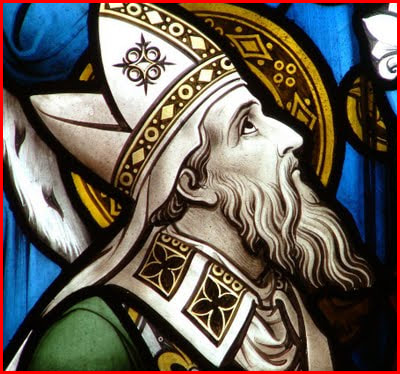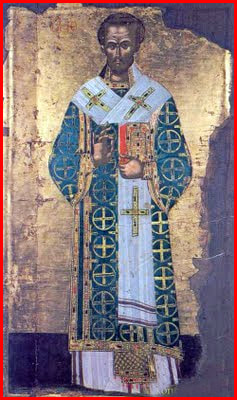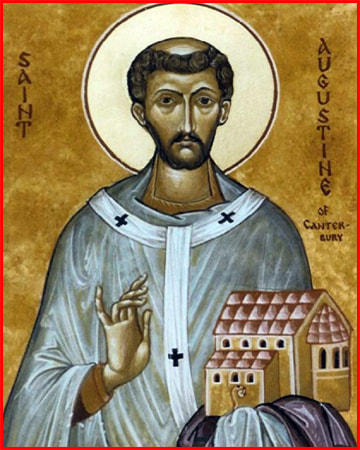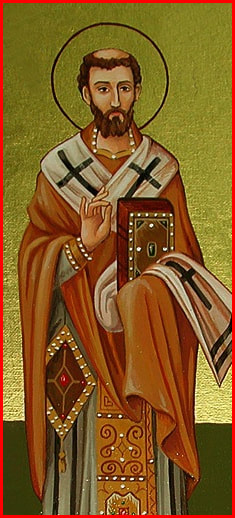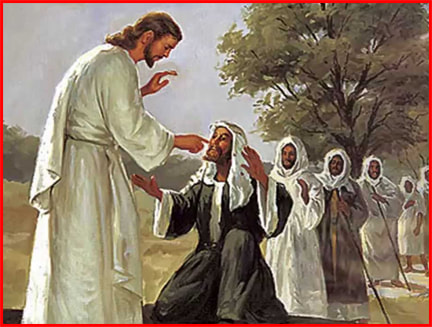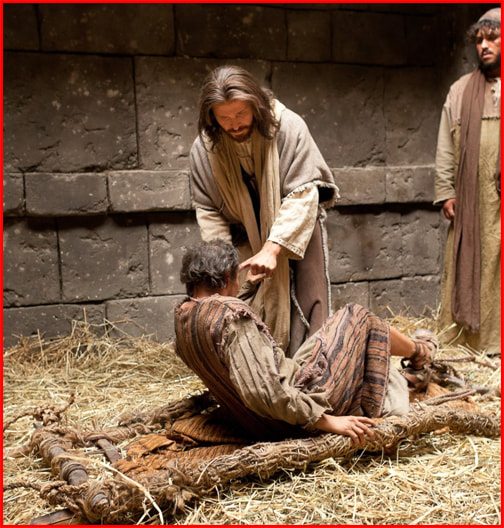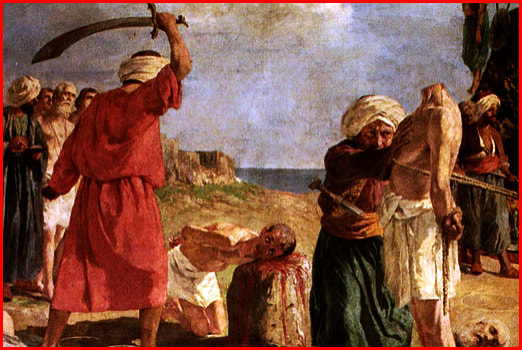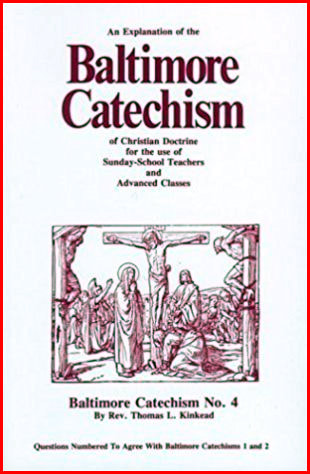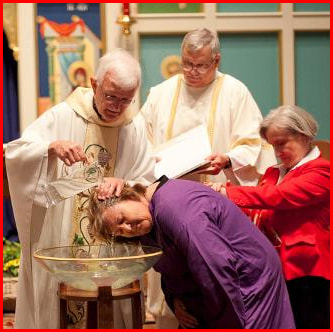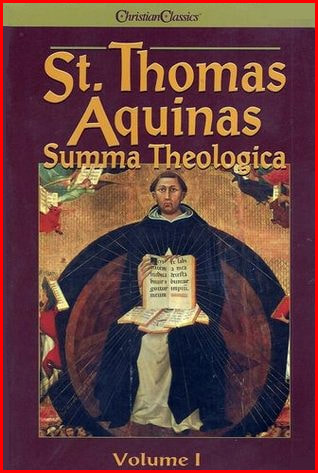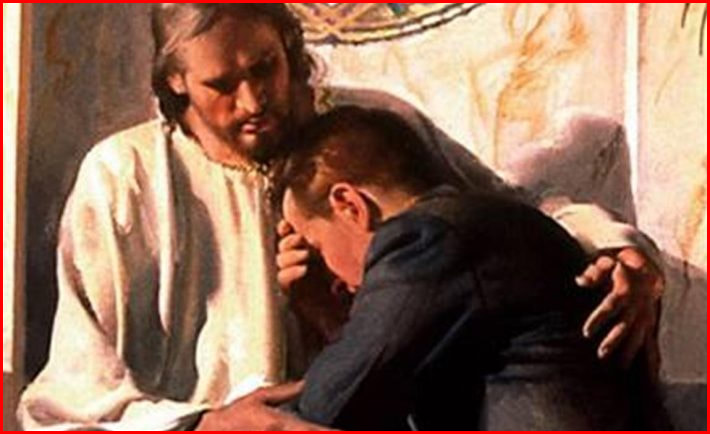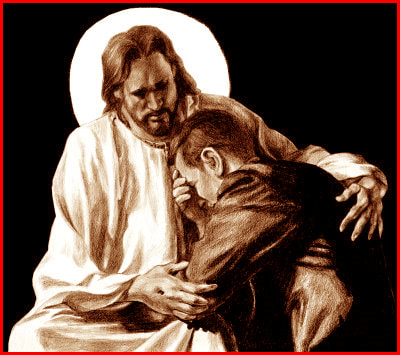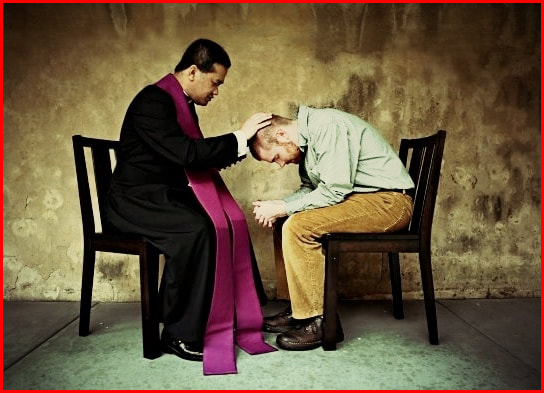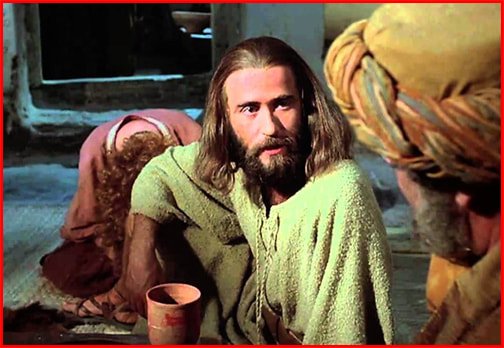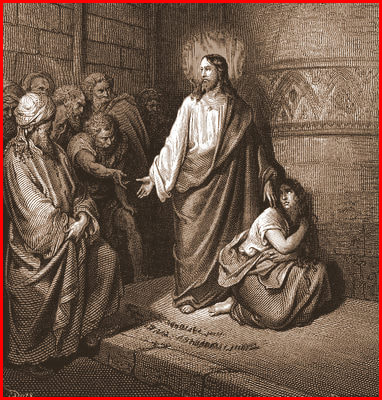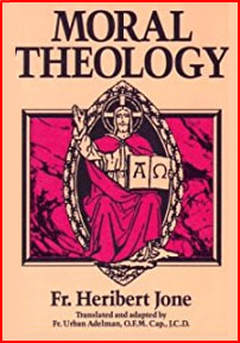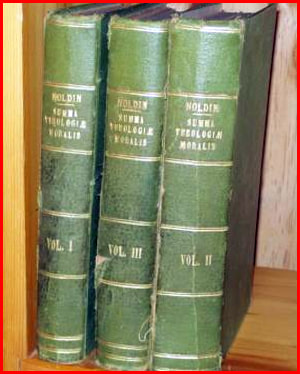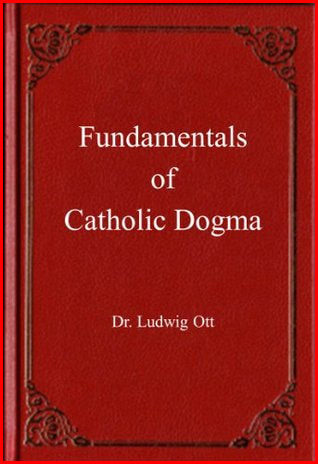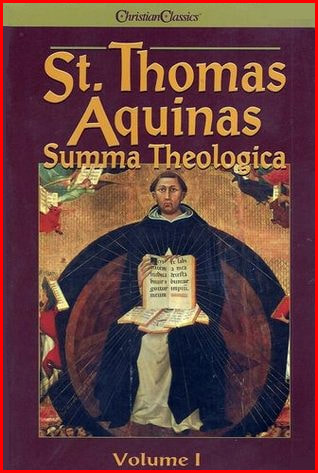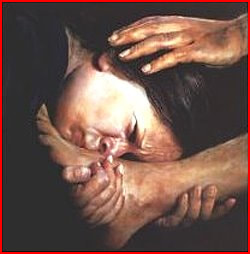| Devotion to Our Lady |
|
- Homepage
-
Daily Thoughts
- 2023 October Daily Thoughts
- Daily Thoughts Lent 2020
- Daily Thoughts for Advent 2019
- Daily Thoughts for October 2019
- Daily Thoughts for September 2019
- Daily Thoughts for August 2019
- Daily Thoughts for July
- Daily Thoughts for June
- Daily Thoughts for Easter 2019
- Daily Thoughts for Lent 2019
- Daily Thoughts for Christmas
- Daily Thoughts Easter 2022
- Sacred Heart
- Holy Ghost
-
Spiritual Life
- Holy Mass Explained
- First Friday Devotions
- First Saturday Devotions
- The Mercy of God
- Vocations
- The Path Everyone Must Walk >
- Gift of Failure
- Halloween or Hell-O-Ween?
- Ignatian Spiritual Exercises >
- Meditation is Soul-Saving
- Spiritual Communion
- Miraculous Medal
- Enrollment in Miraculous Medal
- St. Benedict Medal
- Holy Water
- Advice on Prayer
- Your Daily Mary
-
Prayers
- September Devotions
- Seven Sorrows of Our Lady
-
Novenas
>
- NV-Help of Christians
- NV-Nativity of Our Lady
- NV-Seven Sorrows
- NV- Sorrowful Heart
- NV-Pope St Pius X
- NV-La Salette
- NV-St Michael Archangel
- NV-Immaculate Heart
- NV-Assumption
- NV-Novena for Fathers
- NV-Novena for Your Mother
- NV-St Raphael Archangel
- NV-Souls in Purgatory
- NV-All Saints Day
- NV-Christ the King
- NV-Divine Motherhood
- NV-Guardian Angels
- NV-Rosary
- NV-Mirac Med
- NV- Imm Conc
- NV - Guadalupe
- NV - Nativity of Jesus
- NV-Epiphany
- NV-OL Good Success
- NV-Lourdes
- NV-St Patrick
- NV-St Joseph
- NV-Annunciation
- NV-St Louis de Montfort
- NV-OL Good Counsel
- NV-Last Supper
- NV-Passion
- NV-Pentecost
- NV-Ascension
- NV-Sacred Heart
- NV-Sacred Heart & Perpetual Help
- NV-Corpus Christi
- NV-OL of Perpetual Help
- NV-Queenship BVM
- NV-OL of Mount Carmel
- NV-St Mary Magdalen
- NV- Im Hrt
- August Devotions to IHM
- Immaculate Heart of Mary
- Litany of Dependence
- Prayers to St Mary Magdalen
- Prayers in Times of Sickness Disease & Danger
- Holy Souls in Purgatory
- Meditations on the Litany of Our Lady
- Special Feast Days
- Prayers to Mary (Mon-Sun)
- Litanies to Our Lady >
- Various & Special Needs
- Our Lady of the Rosary
- Our Lady of Mt. Carmel
- Our Lady of Perpetual Help
- Our Lady of Guadalupe
- Other titles of Our Lady
-
Rosary
- Downloads
- Consecration
- Easter Season
-
Holy Week
- Last Seven Words of Jesus >
- Characters of Passion >
- The Last Days of Christ
- Before Palm Sunday
- Palm Sunday
- Monday in Holy Week
- Tuesday in Holy Week
- Wednesday in Holy Week
- Holy Thursday (Last Supper)
- Holy Thursday (Agony & Arrest)
- Night Vigil with Christ
- Good Friday (Pilate & Herod)
- Good Friday (Way of Cross & Crucifixion)
- Saturday in Holy Week
-
Lent
- Ideas for Lent
- Daily Lenten Planner
- Daily Lenten Liturgy
- From Cold to Hot
- Lent with Aquinas
- Lent with Dom Gueranger
- Virtues for Lent
- History of Penance
- How Expensive is Sin?
- Confession of Sins
- Letter to Friends of the Cross
- Sermons for Lent
- Stations of the Cross >
- Lenten Prayers
- 7 Penitential Psalms
- Lenten Psalms SUN
- Lenten Psalms MON
- Lenten Psalms TUE
- Lenten Psalms WED
- Lenten Psalms THU
- Lenten Psalms FRI
- Lenten Psalms SAT
- Lenten Laughs
- Septuagesima
-
Christmas
- Epiphany Explained
- Suggestions for Christmas
- Food For Thought
- Christmas with Aquinas
- Christmas with Dom Gueranger
- Christmas Prayers
- Candles & Candlemas
- Christmas Sermons
- Christmas Prayers SUN
- Christmas Prayers MON
- Christmas Prayers TUE
- Christmas Prayers WED
- Christmas Prayers THU
- Christmas Prayers FRI
- Christmas Prayers SAT
- Twelve Days of Christmas >
-
Advent Journey
- Purgatory
- Christ the King
- Legion of Mary
- Scapular
-
Saints
-
Martyrs for the Faith
>
- Your Daily Martyr >
- All 365 Days of Martyrs
- Cristeros
- St Valentine & Valentine's Day
- Martyrs--Thomas Becket
- Martyrs--John the Apostle
- Holy Machabees
- Age of Martyrdom
- Carmelites of Compiegne
- Martyrs--Peter & Paul
- Martyrs--John the Baptist
- Martyrs--Andrew
- Martyrs--James the Great
- Martyrs--North American
- Martyrs--Seven Holy Sleepers
- Martyrs--Afra
- School of Martyrdom
- Martyrs--Christina
- Desert Saints >
- Saints for Sinners >
- Saints of Mary >
- History of All Saints Day
-
Martyrs for the Faith
>
- Precious Blood
- Synod 2023
-
Catechism
- Catechism Lesson 1
- Catechism Lesson 2
- Catechism Lesson 3
- Catechism Lesson 4
- Catechism Lesson 5
- Catechism Lesson 6
- Catechism Lesson 7
- Catechism Lesson 8
- Catechism Lesson 9
- Catechism Lesson 10
- Catechism Lesson 11
- Catechism Lesson 12
- Catechism Lesson 13
- Catechism Lesson 14
- Catechism Lesson 15
- Catechism Lesson 16
- Catechism Lesson 17
- Catechism Lesson 18
- Catechism Lesson 19
- Catechism Lesson 20
- Catechism Lesson 21
- Catechism Lesson 22
- Bible Study
-
Calendar
- Miracles
- Apparitions
- Shrines
- Prophecies
- Angels Homepage
- Hell
-
Church Crisis
- Conspiracy Theories
- Amazon Synod 2019 >
- Liberalism & Modernism
- Modernism--Encyclical Pascendi
- Modernism & Children
- Modernism--Documents
- The Francis Pages
- Church Enemies on Francis
- Francis Quotes
- Amoris Laetitia Critique
- Danger of Ignorance (Pius X)
- Restore all In Christ (Pius X)
- Catholic Action (Pius X)
- Another TITANIC Disaster?
- The "Errors of Russia"
- CRISIS PRAYERS
- Election Novena 2024
- The Anger Room
- War Zone
- Life of Mary
- Spiritual Gym
- Stupidity
- Coronavirus and Catholicism
- History & Facts
- Books
- Catholic Family
- Children
- Daily Quiz
-
Novena Church & Pope
- Day 01 Church-Pope Novena
- Day 02 Church-Pope Novena
- Day 03 Church-Pope Novena
- Day 04 Church-Pope Novena
- Day 05 Church-Pope Novena
- Day 06 Church-Pope Novena
- Day 07 Church-Pope Novena
- Day 08 Church-Pope Novena
- Day 09 Church-Pope Novena
- Day 10 Church-Pope Novena
- Day 11 Church-Pope Novena
- Day 12 Church-Pope Novena
- Day 13 Church-Pope Novena
- Day 14 Church-Pope Novena
- Day 15 Church-Pope Novena
- Day 16 Church-Pope Novena
- Day 17 Church-Pope Novena
- Day 18 Church-Pope Novena
- Day 19 Church-Pope Novena
- Day 20 Church-Pope Novena
- Day 21 Church-Pope Novena
- Day 22 Church-Pope Novena
- Day 23 Church-Pope Novena
- Day 24 Church-Pope Novena
- Day 25 Church-Pope Novena
- Day 26 Church-Pope Novena
- Day 27 Church-Pope Novena
- Day 28 Church-Pope Novena
- Day 29 Church-Pope Novena
- Day 30 Church-Pope Novena
- Day 31 Church-Pope Novena
- Day 32 Church-Pope Novena
- Day 33 Church-Pope Novena
- Day 34 Church-Pope Novena
- Day 35 Church-Pope Novena
- Day 36 Church-Pope Novena
- Day 37 Church-Pope Novena
- Day 38 Church-Pope Novena
- Day 39 Church-Pope Novena
- Day 40 Church-Pope Novena
- Day 41 Church-Pope Novena
- Day 42 Church-Pope Novena
- Day 43 Church-Pope Novena
- Day 44 Church-Pope Novena
- Day 45 Church-Pope Novena
- Day 46 Church-Pope Novena
- Day 47 Church-Pope Novena
- Day 48 Church-Pope Novena
- Day 49 Church-Pope Novena
- Day 50 Church-Pope Novena
- Day 51 Church-Pope Novena
- Day 52 Church-Pope Novena
- Day 53 Church-Pope Novena
- Day 54 Church-Pope Novena
- Penance Novena
- Daily WeAtheR Forecast
MERCY HAS NOW RESUMED SERVICE!
THE MERCY OF GOD
Thoughts, Teachings and Examples
THE MERCY OF GOD
Thoughts, Teachings and Examples
“The Lord is gracious and merciful: patient and plenteous in mercy.
The Lord is sweet to all: and His tender mercies are over all His works” (Psalm 144:8-9).
The Lord is sweet to all: and His tender mercies are over all His works” (Psalm 144:8-9).
Article 1
ASSESSING THE DIVINE MERCY DEVOTION
To Believe or Not to Believe? That is the Question!
ASSESSING THE DIVINE MERCY DEVOTION
To Believe or Not to Believe? That is the Question!
“The Lord is gracious and merciful: patient and plenteous in mercy.
The Lord is sweet to all: and His tender mercies are over all His works” (Psalm 144:8-9).
“The Lord is compassionate and merciful: long-suffering and plenteous in mercy.
He will not always be angry: nor will He threaten forever. He hath not dealt with us according to our sins:
nor rewarded us according to our iniquities ... As a father hath compassion on his children, so hath the Lord compassion on them that fear Him: for He knoweth our frame. He remembereth that we are dust” (Psalm 102:8-14).
“I came not to call the just, but sinners to penance!” (Luke 5:32).
“If your sins be as scarlet, they shall be made as white as snow:
and if they be red as crimson, they shall be white as wool” (Isaias 1:18).
“I will have mercy on whom I will have mercy; and I will show mercy to whom I will show mercy!” (Romans 9:15).
“I will be merciful to their iniquities, and their sins I will remember no more” (Hebrews 8:12).
“Be ye all of one mind, having compassion one of another, being merciful” (1 Peter 3:8).
“Be ye kind one to another; merciful, forgiving one another, even as God hath forgiven you in Christ” (Ephesians 4:32).
“A merciful man doth good to his own soul: but he that is cruel casts-off even his own kindred” (Proverbs 11:17).
“Be ye therefore merciful, as your Father also is merciful” (Luke 6:36).
“If you will forgive men their offences, your heavenly Father will forgive you also your offences” (Matthew 6:14).
“Blessed are the merciful: for they shall obtain mercy” (Matthew 5:7).
“Judgment without mercy to him that hath not done mercy” (James 2:13).
The Lord is sweet to all: and His tender mercies are over all His works” (Psalm 144:8-9).
“The Lord is compassionate and merciful: long-suffering and plenteous in mercy.
He will not always be angry: nor will He threaten forever. He hath not dealt with us according to our sins:
nor rewarded us according to our iniquities ... As a father hath compassion on his children, so hath the Lord compassion on them that fear Him: for He knoweth our frame. He remembereth that we are dust” (Psalm 102:8-14).
“I came not to call the just, but sinners to penance!” (Luke 5:32).
“If your sins be as scarlet, they shall be made as white as snow:
and if they be red as crimson, they shall be white as wool” (Isaias 1:18).
“I will have mercy on whom I will have mercy; and I will show mercy to whom I will show mercy!” (Romans 9:15).
“I will be merciful to their iniquities, and their sins I will remember no more” (Hebrews 8:12).
“Be ye all of one mind, having compassion one of another, being merciful” (1 Peter 3:8).
“Be ye kind one to another; merciful, forgiving one another, even as God hath forgiven you in Christ” (Ephesians 4:32).
“A merciful man doth good to his own soul: but he that is cruel casts-off even his own kindred” (Proverbs 11:17).
“Be ye therefore merciful, as your Father also is merciful” (Luke 6:36).
“If you will forgive men their offences, your heavenly Father will forgive you also your offences” (Matthew 6:14).
“Blessed are the merciful: for they shall obtain mercy” (Matthew 5:7).
“Judgment without mercy to him that hath not done mercy” (James 2:13).
|
|
The Issue of “Divine Mercy Sunday”
In some quarters, the issue of “Divine Mercy Sunday” is a hot and volatile subject. Some believe it, some don’t. Some accept it, some don’t. What are we to think?—especially since the Church Herself at one time suppressed the devotion and forbade the circulation of its images! Perhaps on this Sunday (Low Sunday, which is the first Sunday after Easter, the day assigned as being “Divine Mercy Sunday”)--we would do well in examining the claims and counter-claims of this somewhat “hot” and “volatile” subject. Laying Down Some Ground Rules First In today's modern world, so heavily influenced by Liberalism and Modernism--which leads its adherents to think, say and do whatever they want to think, say and do--it is imperative that we avoid, like the plague, their rashness, imprudence and their subjective tendency of being self-appointed to the office of judge and jury when it comes to matters of the supernatural in general and private revelations in particular. The Church has long since given guidelines on how to approach private revelations and we ignore them at our own peril. So before we dive into looking at various private revelation, let us first take a closer look at those rules. Revelation in General Private revelations (i.e. apparitions and locutions with or without prophecies) are those which have been recorded since the death of Christ and His Apostles. Revelations which were recorded up to the death of Christ and His Apostles, are known as public, biblical, or scriptural revelations. This form of Divine Revelation (officially called Divine Public Revelation) ended with the death of the last of the Apostles, i.e. St. John, around 100 AD. Private revelations do not belong to the deposit of Faith and, as such, are not binding upon our Faith. Nevertheless, it is an indisputable fact that Almighty God often speaks to His servants in an unmistakable manner. Many Catholic devotions are based solely on private revelations: the Rosary, the Sacred Heart, and the Scapular are cases in point. More recently, devotion to Our Lady of Fatima was accepted and encouraged by the Church. There is ample evidence that revelations have taken place, throughout the centuries, right up to the present time, and it is likely that some are taking place at this very moment. Thus, there are two kinds of Divine Revelation: (1) DIVINE PUBLIC REVELATION This is a universal revelation (meaning that they are meant for everybody), which is contained in the Bible, or in the deposit of teachings coming from Apostolic tradition, and transmitted down through the ages by the Church. Divine Public Revelation ended with the preaching of the Apostles, the last of whom (St. John) died in the early 100’s A.D., and this Divine Public Revelation must be believed by all; (2) DIVINE PRIVATE REVELATIONS These are private and particular revelations revelations, which are constantly occurring among Christians. They are contained neither in the Bible, nor in the deposit of Apostolic tradition. The Church does not oblige us to believe in them, but it is prudent not to reject them lightly when they are affirmed by saints. Nevertheless it is certain that many saints were deceived and that their revelations contradict one another. Revelations and visions are subject to many illusions. Hence the need for prudence and caution, so as not to be caught up in the fatal and dangerous mixture of curiosity and naivety that can make us plunge unreservedly in those things that are beyond our natural experience and understanding. We see this caution in the fact that Maximin, at La Salette, threw stones at the apparition of Our Lady, due to his fear and natural suspicion. Likewise with St. Bernadette, at Lourdes, who, after seeing the apparition, brought much holy water with her the next time, and ‘soaked’ Our Lady with it as a result of her natural fear and suspicion. What is the Purpose or Goal of Private Revelation? The function of Divine Private Revelation is merely re-focus our minds on what is contained in Divine Public Revelation. It may make us do something that we should be doing, but are are no longer doing; or it may command us to cease doing what we should not be doing, but have started to do through either malice or weakness. Thus at Lourdes and Fatima, Our Lady reminds us by Private Revelation, what is already contained in Public Revelation, namely, the need for prayer and penance: “Pray without ceasing” (1 Thessalonians 5:17) … “We ought always to pray, and not to faint” (Luke 18:1) … “Unless you shall do penance, you shall all likewise perish” (Luke 13:3). Therefore, Our Lady is adding nothing new, but simply reminding us what is commanded by Divine Public Revelation, in this case in the form of Holy Scripture. The above example is clear and incontestable; for prayer and penance are both clearly mentioned and commanded in the pages of Holy Scripture. However, what are we to think of Private Revelations that command things that are not so clear: such as devotion to the Sacred Heart; devotion to the Immaculate Heart of Mary; devotion to the Sorrowful Heart of Mary; devotion to the Holy Rosary, etc.? These things are not seen in Scripture, nor are they commanded by Holy Scripture. True, they are not explicitly mentioned in Scripture, but they are there implicitly. Theology can arrive at conclusions that are certain by combing two or more principles—much as mathematics does. If I know that 1+1=2 and 2+2=4, then I know for certain that there has to be a number in between 2 and 4, which is the result of 1+1+1 or 1+2. That number is 3―I can call it what I want to call it, but it exists—for certain it exists. In this way the Church has arrived at many conclusions that have been embodied into the teaching of the Church. She has even pronounced dogmas on that same principle, such as the Immaculate Conception, which is not found explicitly anywhere in Holy Scripture. Yet when the Church pronounced the dogma in 1854, Our Lady appeared at Lourdes in 1858 and in that Private Revelation confirmed the Church's dogmatic pronouncement four years earlier, by calling herself the Immaculate Conception. Similarly with the Person of Christ, being one Person with two natures: the divine nature and the human nature. We do not find that definition anywhere in Holy Scripture, but it is theologically reasoned and deduced from those principles and truths that are found in Holy Scripture. Church Approval of Private Revelation When the Church approves Private Revelations, she only declares that there is nothing in them that is contrary faith or good morals, and that they may be read without danger or even with profit; no obligation is thereby imposed on the faithful to believe them. Speaking of such revelations as, for example, those of St. Hildegard (approved in part by Pope Eugenius III), St. Bridget (by Boniface IX), and St. Catherine of Siena (by Gregory XI), Pope Benedict XIV says: “It is not obligatory, nor even possible, to give them the assent of Catholic Faith, but only of human faith, in conformity with the dictates of prudence, which presents them to us as probable and worthy of pious belief.” (De canon., III, liii, xxii, II). The Dangers of Private Revelations St. Padre Pio used to have the devil appear to him in the guise of his confessor, in order to give Padre Pio bad advice. St. John of the Cross had the devil appear to him on numerous occasions in the guise of Our Lord, so much so that St. John of the Cross begged Our Lord to cease appearing to him, because he could not tell the difference. These are just two of many, many similar events experienced by the saints. What are known as private and particular revelations are those contained neither in the Bible, nor in the deposit of Apostolic tradition. The Church does not oblige us to believe in them, but it is prudent not to reject them lightly when they are affirmed by saints. Nevertheless it is certain that many saints were deceived and that their revelations contradict one another. What follows will explain the reason of this. Revelations and visions are subject to many illusions. Some of them are at first thought surprising. Thus a vision of an historical scene (e.g., of the life or death of Christ) is often only approximately accurate, although the visionary may be unaware of this fact, and he may be misled, if he believes in its absolute historical fidelity. This error is quite natural, being based on the assumption that, if the vision comes from God, all its details (the landscape, dress, words, actions, etc.) should be a faithful reproduction of the historical past. This assumption is not justified, for accuracy in secondary details is not necessary; the main point is that the fact, event, or communication revealed be strictly true. It may be objected that the Bible contains historical books, and that thus God may sometimes wish to reveal certain facts in religious history to us exactly. That doubtless is true, when there is question of facts which are necessary or useful as a basis for religion, in which case the revelation is accompanied by proofs that guarantee its accuracy. A vision need not guarantee its accuracy in every detail. One should thus beware of concluding, without any examination, that revelations are to be rejected; the prudent course is neither to believe nor to deny them, unless there is sufficient reason for so doing. Much less should one suspect that the saints have been always, or very often deceived in their vision. On the contrary, such deception is rare, and as a rule in unimportant matters only. Let us now, after this lengthy but very necessary introduction, turn our attention to the “Divine Mercy” message and “Divine Mercy Sunday”. The Story Behind “Divine Mercy Sunday” TIMELINE OF SR. FAUSTINA KOWALSKA August 25th, 1905: Helena Kowalska (future Sr. Faustina) was born in Glogowiec, Poland; the third of ten children living off a small farm and her father’s carpentry work. 1920: At age 15, Helena begins domestic work to support the large family of her parents. 1922: Helena announces a desire to enter convent; her parents oppose; she works two years to help support her family. July 1924: Helena sees a vision of the scourged Christ who calls her to religious life. Helena goes to Warsaw to search for a convent, and she works to support herself. August 1925: Helena is accepted by the Congregation of the Sisters of Our Lady of Mercy; one month later she wants to leave for a stricter order. April 30th, 1926: Helena receives habit and her religious name Maria Faustina. April 3rd, 1927: Sr. Faustina experiences spiritual dark night during novitiate. April 16th, 1928: On Good Friday, she is engulfed by the flame of Divine Love. April 30th, 1928: Sr. Faustina makes her first profession of temporary vows. February 22nd, 1931: Sr. Faustina sees a vision of Jesus who tells her to paint His image. May 1st, 1933: Sr. Faustina takes her perpetual vows. May 25th, 1933: Sr. Faustina goes to Vilnius in Lithuania, where she receives many mystical experiences and is assisted by Fr. Michael Sopocko, who becomes her spiritual director. March 29th, 1934: Sr. Faustina offers herself for sinners, especially those who lack trust. July 1934: Beginning of Sr. Faustina’s illness; she begins writing the Diary under obedience. April 28th, 1935: (Feast of Mercy) Divine Mercy image is publicly venerated in Vilnius for the conclusion of the Jubilee Year of Redemption: January 8th, 1936: Sr. Faustina informs the Bishop that Jesus requests the founding of an order. May 11th, 1936: Sr. Faustina goes to Krakow; guided by Fr. Andrasz, S.J.; her health deteriorates. September 1938: Sr. Faustina prepares herself for death, and she asks pardon of the Congregation. October 5th, 1938: Sr. Faustina makes final confession, and dies late in the evening. October 7th, 1938: Funeral of Sr. Faustina, burial at the convent cemetery. THE TIMELINE OF THE DIVINE MERCY DEVOTION 1940-1941: Divine Mercy message spreads first among the victims of the Second World War. April 1941: Fr. Joseph Jarzebowski, MIC, brings the Divine Mercy message to the USA and the Congregation of Marians of the Immaculate Conception begins to spread the message in Polish. 1942-1959: The Divine Mercy message spreads worldwide through the efforts of the Marians, who publish images and literature in many languages. March 6th, 1959: Holy Office issues a notification banning Divine Mercy devotion. October 21st, 1965: Nine weeks before the Second Vatican Council ends (December 8th, 1965) an informative Process of Sr. Faustina’s life and virtues is opened by the Polish Cardinal Karol Wojtyla, Archbishop of Krakow, encouraged by Cardinal Ottaviani, the Prefect of the Holy Office. September 1967: Informative Process closes; Cardinal Wojtyla sends acts to Rome, January 31st, 1968. The process of Beatification of Sr. Faustina is inaugurated. April 15th, 1978: Prefect of Sacred Congregation for the Doctrine of the Faith declares the Notification ban no longer binding. October 16th, 1978: The Polish Cardinal, Karol Wojtyla, becomes Pope John Paul II. July 12th, 1979: Marians receive an authoritative explanation of the Notification issued by the Prefect for the Doctrine of Faith stating that no impediments exist in the spread of the message and devotion to the Divine Mercy in the forms proposed by Sr. Faustina. November 30th, 1980: Pope John Paul II issues encyclical on the Divine Mercy. November 22nd, 1981: Pope John Paul II visits the Shrine of Merciful Love in Collevalenza near Todi, Italy, stating that, “Right from the beginning of my ministry in St. Peter’s See in Rome, I considered this message (of Divine Mercy) my special task.” April 10th, 1991: Pope John Paul II links the encyclical’s message to Sr. Faustina. April 18th, 1993: Sr. Faustina beatified in Rome on Second Sunday of Easter. April 30th, 2000: Bl. Faustina is canonized in Rome on Divine Mercy Sunday and Divine Mercy Sunday is proclaimed. May 5th, 2000: Congregation for Divine Worship and the Discipline of the Sacraments issues a Decree proclaiming the Second Sunday of Easter also as Divine Mercy Sunday. April 22nd, 2001: Divine Mercy Sunday is celebrated officially for the first time by the universal Church. August 21st, 2002: Decree of the Apostolic Penitentiary issued on Indulgences attached to devotions in honor of Divine Mercy. The Two Sides of the Divine Mercy Debate As already stated above, there are two sides to the “Divine Mercy Debate” with the majority of Catholics not caring much one way or the other! We propose to (briefly) look at the chief arguments of both sides and then look at Church teaching in an attempt to resolve the issue. The measuring stick the Church always uses is (1) Holy Scripture, (3) Tradition—meaning the perennial approach and interpretation of the Church, especially by the great Fathers and Doctors of the Church, and (3) the Magisterium of the Church—which, in its simplistic form, without getting into the finer points, means the perennial teachings of the Church Councils and Popes. In other words, it takes in the whole spectrum of teaching and not just the last 50 years or 60 years—as the Liberals and Modernists have a tendency to do, thereby ignoring (when it suits their purpose, designs and schemes) 1,960 years of experienced teaching! Before dealing with the arguments against the Divine Mercy Message, we should look at the arguments in favor of it—otherwise it is like putting the cart before the horse. You have to listen to what something is before you listen to those who disagree with what it is! Common sense! Listening to the objectors is ludicrous if you do not listen to the propagators. |
Article 2
ASSESSING THE DIVINE MERCY DEVOTION
The Arguments Over The "Divine Mercy" Message! Who Do You Believe?
ASSESSING THE DIVINE MERCY DEVOTION
The Arguments Over The "Divine Mercy" Message! Who Do You Believe?
|
Father Michael Sopoćko, the confessor and spiritual director of Saint Sister Faustina, was personally involved in the mystery of the revelations of the Merciful Jesus. God assigned to him the very important role of fulfilling the mission given to Sister Faustina. Father Sopoćko dedicated almost his entire life to this work.
From 1932 Father Sopoćko was the confessor at the Congregation of the Sisters of Our Lady of Mercy, whose convent then was in Vilnius. There, in May 1933, he met Sister Faustina Kowalska who became his penitent. Their meeting proved to be the defining moment for the future of Father Sopoćko and his mission. Sister Faustina, having found in Father Sopoćko an enlightened confessor and spiritual director, began to share with him her spiritual experiences and visions of the Merciful Saviour. As there was not enough time, Father Sopoćko asked Faustina to record her inner experiences in a diary. He then reviewed the texts at his leisure. In this way, the spiritual ”Diary” of Saint Sister Faustina came into being. Sister Faustina, referring to the revelations of the Lord Jesus that she had already experienced before she came to Vilnius and then again while there, informed Father Sopoćko about the requests of Lord Jesus which included: painting the Image of the Most Merciful Saviour, undertaking efforts to institute a Feast of Divine Mercy on the first Sunday after Easter, and establishing a new religious congregation. In time, it transpired that Divine Mercy entrusted the completion of these tasks to Father Sopoćko. |
Message on Trial!
If you do some research on the “Divine Mercy” message, you will be surprised by the fervent and passionate feelings that are manifested by both the advocated and accusers of the message! Most people, however—being submerged in worldliness and materialism—are largely indifferent to the message. They may read about it, take notice, then file it away with the stamp: “Seen it, Read it, Filed it, Forgot it.” In any trial, evidence is heard from both sides—and both sided will insist on having the truth! The ‘judge’ and ‘jury’ in this case, have to be Holy Scripture, Tradition, the Magisterium of the Church and the Church Fathers, Doctors and Saints. Truth is only one—shades of truth (part true and part untrue) are many. Will the Defendant Please Stand Up Before judging a case, the basic information has to be given as it stands—without any bias or predisposition or leaning one way or another. Believe it or not, that is our initial standpoint. We just want to know! So here, first of all, is an account from the pro-message advocates who fully support and promote the message. The following is taken from the official Divine Mercy website: “What is the Divine Mercy?” The Divine Mercy Message and Devotion The message of The Divine Mercy is simple. It is that God loves us – all of us. And, he wants us to recognize that His mercy is greater than our sins, so that we will call upon Him with trust, receive His mercy, and let it flow through us to others. Thus, all will come to share His joy. The Divine Mercy message is one we can call to mind simply by remembering ABC: A - Ask for His Mercy. God wants us to approach Him in prayer constantly, repenting of our sins and asking Him to pour His mercy out upon us and upon the whole world. B - Be merciful. God wants us to receive His mercy and let it flow through us to others. He wants us to extend love and forgiveness to others just as He does to us. C - Completely trust in Jesus. God wants us to know that the graces of His mercy are dependent upon our trust. The more we trust in Jesus, the more we will receive. This message and devotion to Jesus as The Divine Mercy is based on the writings of Saint Faustina Kowalska, an uneducated Polish nun who, in obedience to her spiritual director, wrote a diary of about 600 pages recording the revelations she received about God's mercy. Even before her death in 1938, the devotion to The Divine Mercy had begun to spread. The message and devotional practices proposed in the Diary of Saint Faustina--and set forth in this web site and other publications of the Marians of the Immaculate Conception--are completely in accordance with the teachings of Church and are firmly rooted in the Gospel message of our Merciful Savior. Properly understood and implemented, they will help us grow as genuine followers of Christ. (2) The Forms of the Devotion (as listed on the Divine Mercy website) (a) The Image of the Divine Mercy In 1931, our Lord appeared to St. Faustina in a vision. She saw Jesus clothed in a white garment with His right hand raised in blessing. His left hand was touching His garment in the area of the Heart, from where two large rays came forth, one red and the other pale. She gazed intently at the Lord in silence, her soul filled with awe, but also with great joy. Jesus said to her: “Paint an image according to the pattern you see, with the signature: Jesus, I trust in You. I promise that the soul that will venerate this image will not perish. I also promise victory over [its] enemies already here on Earth, especially at the hour of death. I Myself will defend it as My own glory” (Diary, §47, §48). “I am offering people a vessel with which they are to keep coming for graces to the fountain of mercy. That vessel is this image with the signature: ‘Jesus, I trust in You’” (Diary, §327). “I desire that this image be venerated, first in your chapel, and [then] throughout the world” (Diary, §47).” At the request of her spiritual director, St. Faustina asked the Lord about the meaning of the rays in the image. She heard these words in reply: “The two rays denote Blood and Water. The pale ray stands for the Water which makes souls righteous. The red ray stands for the Blood which is the life of souls. These two rays issued forth from the depths of My tender mercy when My agonized Heart was opened by a lance on the Cross. Happy is the one who will dwell in their shelter, for the just hand of God shall not lay hold of him” (Diary, §299). “By means of this image I shall grant many graces to souls. It is to be a reminder of the demands of My mercy, because even the strongest faith is of no avail without works” (Diary, §742) These words indicate that the Image represents the graces of Divine Mercy poured out upon the world, especially through Baptism and the Eucharist. Many different versions of this image have been painted, but Our Lord made it clear that the painting itself is not what is important. When St. Faustina first saw the original image that was being painted under her direction, she wept in disappointment and complained to Jesus: “Who will paint You as beautiful as You are?” (Diary, §313). In answer, she heard these words: “Not in the beauty of the color, nor of the brush lies the greatness of this image, but in My grace” (Diary, §313). So, no matter which version of the image we prefer, we can be assured that it is a vehicle of God’s grace if it is revered with trust in His mercy. (b) The Feast of Divine Mercy The feast of Divine Mercy is always celebrated on the first Sunday after Easter Sunday. In the Introduction of the Diary of Sr. Faustina Kowalska (the edition referenced is that published by Marian Press. Stockbridge, MA 01263, in 2005), we read: It ranks highest among all the elements of The Divine Mercy devotion revealed to Sr. Faustina. Its institution was requested by the Lord Jesus for the first time in Plock, in 1931, while He was communicating His will regarding the painting of the Image: “I desire that there be a Feast of Mercy. I want this image, which you will paint with a brush, to be solemnly blessed on the first Sunday after Easter; that Sunday is to be the Feast of Mercy” (Diary, §49). The choice of the first Sunday after Easter for the Feast of Mercy has a very deep theological significance, which points to the close relationship between the Paschal Mystery of the redemption and the mystery of The Divine Mercy. The integral relationship is further emphasized by the Novena of Chaplets to The Divine Mercy which begins on Good Friday as a preparation for the Feast. This feast is not only a day in particular for worshipping God in His mystery of mercy, but also a time of grace for all people. The Lord Jesus said: “I desire that the Feast of Mercy be a refuge and shelter for all souls, and especially for poor sinners” (Diary, §699). “Souls perish in spite of My bitter Passion. I am giving them the last hope of salvation, that is, recourse to My Mercy. If they will not adore My mercy, they will perish for all eternity” (cf. Diary, §965, §998). The greatness of this feast is measured by the measure of extraordinary promises that the Lord attached to this feast: Jesus said “…. Whoever approached the Fount of Life on this day will be granted complete remission of sins and punishment” (Diary, §300), and also, “On this day the very depths of My tender mercy are open. I pour out a whole ocean of graces upon those souls who approach the fount of My Mercy.… Let no soul fear to draw near to Me, even though its sins be as scarlet” (Diary, §699). To profit from those great gifts we must fulfill the conditions of the Divine Mercy devotion (trust in God’s goodness and active love toward neighbor), be in the state of sanctifying grace – having gone to Holy Confession, and worthily receive Holy Communion. Jesus explained: “No soul will be justified until it turns with confidence to My mercy; and this is why the first Sunday after Easter is to be the Feast of Mercy, and on that day, priests are to tell everyone about My great and unfathomable mercy” (Diary, § 570). (c) The Hour of Great Mercy In His revelations to St. Faustina, Our Lord asked for a special prayer and meditation on His Passion each afternoon at the three o’clock hour, the hour that recalls His death on the cross. “At three o’clock, implore My mercy, especially for sinners; and, if only for a brief moment, immerse yourself in My Passion, particularly in My abandonment at the moment of agony. This is the hour of great mercy. In this hour, I will refuse nothing to the soul that makes a request of Me in virtue of My Passion (Diary, 1320).” “As often as you hear the clock strike the third hour, immerse yourself completely in My mercy, adoring and glorifying it; invoke its omnipotence for the whole world, and particularly for poor sinners; for at that moment mercy was opened wide for every soul. In this hour you can obtain everything for yourself and for others for the asking; it was the hour of grace for the whole world — mercy triumphed over justice. (Diary, §1572)” “My daughter, try your best to make the Stations of the Cross in this hour, provided that your duties permit it; and if you are not able to make the Stations of the Cross, then at least step into the chapel for a moment and adore, in the Most Blessed Sacrament, My Heart, which is full of mercy; and should you be unable to step into the chapel, immerse yourself in prayer there where you happen to be, if only for a very brief instant. (Diary, §1572)” From these detailed instructions, it’s clear that Our Lord wants us to turn our attention to His Passion at the three o’clock hour to whatever degree our duties allow, and He wants us to ask for His mercy. In Genesis (18:16-32), Abraham begged God to reduce the conditions necessary for Him to be merciful to the people of Sodom and Gomorrah. Here, Christ Himself offers a reduction of conditions because of the varied demands of our life’s duties, and He begs us to ask, even in the smallest way, for His mercy, so that He will be able to pour His mercy upon us all. We may not all be able to make the Stations or adore Him in the Blessed Sacrament, but we can all mentally pause for a “brief instant,” think of His total abandonment at the hour of agony, and say a short prayer such as “Jesus, Mercy,” or “Jesus, for the sake of Your Sorrowful Passion, have mercy on us and on the whole world.” This meditation, however brief, on Christ’s Passion brings us face-to-face with the cross, and, as Pope John Paul II writes in Rich in Mercy, “It is in the cross that the revelation of merciful love attains its culmination” (Diary, §8). God invites us, the Holy Father continues, “to have ‘mercy’ on His only Son, the crucified one” (Diary, §8). Thus, our reflection on the Passion should lead to a type of love for Our Lord which is “not only an act of solidarity with the suffering Son of man, but also a kind of ‘mercy’ shown by each one of us to the Son of the Eternal Father.” (d) The Chaplet of Divine Mercy In 1935, St. Faustina received a vision of an angel sent by God to chastise a certain city. She began to pray for mercy, but her prayers were powerless. Suddenly she saw the Holy Trinity and felt the power of Jesus’ grace within her. At the same time she found herself pleading with God for mercy with words she heard interiorly: “Eternal Father, I offer You the Body and Blood, Soul and Divinity of Your dearly beloved Son, Our Lord Jesus Christ, in atonement for our sins and those of the whole world; for the sake of His sorrowful Passion, have mercy on us.” (Diary, 475). As she continued saying this inspired prayer, the angel became helpless and could not carry out the deserved punishment (see 474). The next day, as she was entering the chapel, she again heard this interior voice, instructing her how to recite the prayer that our Lord later called “the Chaplet.” This time, after “have mercy on us” were added the words “and on the whole world” (Diary, §476). From then on, she recited this form of prayer almost constantly, offering it especially for the dying. This Chaplet was dictated to Sr. Faustina by the Lord Jesus Himself in Vilnius on September 13th-14th, 1935, as a prayer of atonement and for the appeasement of God’s wrath (see Diary, §474-§476). Those who recite this Chaplet offer to god the Father “the Body and Blood, Soul and Divinity,” of Jesus Christ in atonement for their sins, the sins of their loved ones, and those of the entire world. By uniting themselves with the sacrifice of Jesus, they appeal to the great love that our Heavenly Father has for His Son and, in Him, for all humanity. In subsequent revelations, the Lord made it clear that the Chaplet was not just for her, but for the whole world. He also attached extraordinary promises to its recitation. By means of this prayer, the petitioners request “mercy on us and on the whole world,” and by so doing, they perform a work of mercy. If the faithful add to this the foundation of trust and fulfill the conditions regarding every good prayer (humility, perseverance, matters in conformity with God’s will), they can expect the fulfillment of Christ’s promises which are particularly related to the hour of death: the grace of conversion and a peaceful death. On a different occasion, Jesus said: “By saying the Chaplet, you are bringing humankind closer to Me” (Diary, §929), and again: “The souls that say this chaplet will be embraced by My mercy during their lifetime and especially at the hour of their death” (Diary, §754). Not only will the people who say the Chaplet receive these graces, but also the dying at whose side others will recite this prayer. The Lord said: “When this chaplet is said by the bedside of a dying person, God’s anger is placated, unfathomable mercy envelops the soul” (Diary, §811). The general promise says: “It pleases Me to grant everything they ask of Me by saying the chaplet” (Diary §1541) “….if what you ask for is compatible with My will” (Diary, §1731). For, anything that is not compatible with God’s will is not good for people, especially for their eternal happiness. “Encourage souls to say the Chaplet which I have given you” (Diary, §1541). “Whoever will recite it will receive great mercy at the hour of death” (Diary, §687). “When they say this Chaplet in the presence of the dying, I will stand between My Father and the dying person, not as the just Judge but as the Merciful Savior” (Diary, §1541). “Priests will recommend it to sinners as their last hope of salvation. Even if there were a sinner most hardened, if he were to recite this Chaplet only once, he would receive grace from My infinite mercy” (Diary, §687). “I desire to grant unimaginable graces to those souls who trust in My mercy” (Diary, §687). “Through the Chaplet you will obtain everything, if what you ask for is compatible with My will” (Diary, §1731). Prayed on ordinary Rosary beads, The Chaplet of The Divine Mercy is an intercessory prayer that extends the offering of the Eucharist, so it is especially appropriate to use it after having received Holy Communion at Holy Mass. It may be said at any time, but our Lord specifically told St. Faustina to recite it during the nine days before the Feast of Mercy (the first Sunday after Easter). He then added: “By this Novena, [of Chaplets] I will grant every possible grace to souls.” (Diary, §796). It is likewise appropriate to pray the Chaplet during the “Hour of Great Mercy” — three o’clock each afternoon (recalling the time of Christ’s death on the cross). In His revelations to St. Faustina, Our Lord asked for a special remembrance of His Passion at that hour. (e) The Divine Mercy Novena of Chaplets A novena is typically nine days of prayer in preparation of a celebration of a feast day. At the National Shrine of The Divine Mercy, the Chaplet of Divine Mercy Novena is recited perpetually at the Hour of Great Mercy — the three o’clock hour. The Chaplet can be said anytime, but the Lord specifically asked that it be recited as a novena. He promised, “By this Novena (of Chaplets), I will grant every possible grace to souls.” Intentions For each of the nine days, our Lord gave Saint Faustina a different intention: All mankind, especially sinners; the souls of priests and religious; all devout and faithful souls; those who do not believe in God and those who do not yet know Jesus; the souls who have separated themselves from the Church; the meek and humble souls and the souls of little children; the souls who especially venerate and glorify His mercy; the souls detained in purgatory; and souls who have become lukewarm. “I desire that during these nine days you bring souls to the fountain of My mercy, that they may draw therefrom strength and refreshment and whatever grace they have need of in the hardships of life, and especially at the hour of death” (Diary, §1209). The Life of Sister Maria Faustina Kowalska (from the Divine Mercy website) (August 25th, 1905 – October 5th, 1938) An excerpt from Apostle of Divine Mercy, a biography published by the Vatican. Saint Maria Faustina Kowalska, an apostle of Divine Mercy, belongs today to the group of the most popular and well-known saints of the Church. Through her, the Lord Jesus communicates to the world the great message of God’s mercy and reveals the pattern of Christian perfection based on trust in God and on the attitude of mercy toward one’s neighbors. Sister Faustina was born on August 25th, 1905 in Glogowiec, Poland of a poor and religious family of peasants, the third of 10 children. She was baptized with the name Helena in the parish church of Swinice Warckie. From a very tender age she stood out because of her love of prayer, work, obedience, and also her sensitivity to the poor. At the age of seven she had already felt the first stirrings of a religious vocation. Helen made her first Holy Communion at the age of nine, which was very profound moment in her awareness of the presence of the Divine Guest within her soul. She attended school for three years. After finishing school, she wanted to enter the convent, but her parents would not give her permission. Being of age at 16, Helen left home and went to work as a housekeeper in Aleksandrów, Lodi, and Ostrówek in order to find the means of supporting herself and of helping her parents. Helen joins Sisters of Our Lady of Mercy Helen never lost her desire for a religious vocation. After being called during a vision of the Suffering Christ, she entered the Congregation of the Sisters of Our Lady of Mercy on August 1st, 1925, and took the name Sr. Maria Faustina of the Most Blessed Sacrament. She lived in the Congregation for thirteen years in several religious houses. She spent time at Krakow, Plock and Vilnius, where she worked as a cook, gardener, and porter. Externally nothing revealed her rich mystical interior life. She zealously performed her tasks and faithfully observed the rule of religious life. She was recollected and at the same time very natural, serene, and full of kindness and disinterested love for her neighbor. Although her life was apparently insignificant, monotonous and dull, she hid within herself an extraordinary union with God. It is the mystery of the Mercy of God which she contemplated in the word of God as well as in the everyday activities of her life that forms the basis of her spirituality. The process of contemplating and getting to know the mystery of God’s mercy helped develop within Sr. Maria Faustina the attitude of child-like trust in God as well as mercy toward her neighbors. Sister Faustina was a faithful daughter of the Church, which she loved like a Mother and the Mystical Body of Jesus Christ. Conscious of her role in the Church, she cooperated with God’s mercy in the task of saving lost souls. At the specific request of and following the example of the Lord Jesus, she made a sacrifice of her own life for this very goal. In her spiritual life she also distinguished herself with a love of the Eucharist and a deep devotion to the Mother of Mercy. The Secretary of God’s Mercy The Lord Jesus chose Sr. Maria Faustina as the Apostle and “Secretary” of His Mercy, so that she could tell the world about His great message, which Sr. Faustina recorded in a diary she titled Divine Mercy in My Soul. In the Old Covenant He said to her: “I sent prophets wielding thunderbolts to My people. Today I am sending you with My mercy to the people of the whole world. I do not want to punish aching mankind, but I desire to heal it, pressing it to My Merciful Heart.” (Diary, §1588) In an extraordinary way, Sr. Maria Faustina’s work sheds light on the mystery of the Divine Mercy. It delights not only the simple and uneducated people, but also scholars who look upon it as an additional source of theological research. The Diary has been translated into more than 20 languages, including, English, German, Italian, Spanish, French, Portuguese, Arabic, Russian, Hungarian, Czech, Slovak, Polish, Castilian, Brazilian, Vietnamese, Korean, Chinese, Swedish, Ukrainian, Dutch and Japanese. Sister Maria Faustina, consumed by tuberculosis and by innumerable sufferings which she accepted as a voluntary sacrifice for sinners, died in Krakow at the age of just 33 on October 5th, 1938, with a reputation for spiritual maturity and a mystical union with God. The reputation of the holiness of her life grew as did the cult to the Divine Mercy and the graces she obtained from God through her intercession. In the years 1965-67, the Investigative Process into her life and heroic virtues was undertaken in Krakow and in the year 1968, the Beatification Process was initiated in Rome. The latter came to an end in December 1992. On April 18th, 1993 Pope John Paul II raised St. Faustina to the glory of the altars. She was canonized on April 30th, 2000. St. Maria Faustina’s remains rest at the Sanctuary of the Divine Mercy in Krakow-Lagiewniki. Comments on the Above There is much more material to be found out there online—far more than can be either be read or presented for the scope and purpose of this series of articles introducing a much broader view of the mercy of God than just this examination of the “Divine Mercy Message”, which is only serving as a providential gateway (since the Church now celebrates the feast on the First Sunday after Easter—which is when these articles began). No more comments concerning the above extracts will be made at this point. Instead, we will—in the next article—examine the objections to the “Divine Mercy” message and devotion. Finally, we will make our own unqualified comments by looking at all things under the microscope of Holy Scripture, Tradition, the Magisterium of the Church and the writings of some Church Fathers, Doctors and Saints. That latter part will be longest part of this introductory series of articles on the Mercy of God—which will run far beyond this introductory examination of the “Divine Mercy” message and devotion. Why such a fuss and focus on the Mercy of God? Well, quite simply, it is the mercy of God that we will all crave on our deathbed! Nothing else will really matter much! Hence—and since—the mercy of God is the greatest of God’s works: “The Lord is gracious and merciful: patient and plenteous in mercy. The Lord is sweet to all: and His tender mercies are over all His works” (Psalm 144:8-9)—then is it not fitting to fuss and focus on the “His tender mercies [which] are over all His works”? For we shall all be in need of those mercies—no matter how holy we imagine ourselves to be! For mortal sin is the greatest evil in the world, and venial sin—yes, that little impatience, or little bad word, or little unnecessary criticism—is the second greatest evil in the world! If you don’t believe that—then you are in even greater need of mercy! “Sin is the only evil upon Earth” … “Mortal sin is a great evil, the greatest evil in the world, a greater evil than disease, poverty, or war, because it separates us from God … [venial sin] is second only in evil consequences to mortal sin” (The Catechism Explained, Spirago-Clarke; My Catholic Faith, Bishop Morrow, STD). |
Article 3
ASSESSING THE DIVINE MERCY DEVOTION
The Objections and a Reply to the Objections from the Institute of Divine Mercy
ASSESSING THE DIVINE MERCY DEVOTION
The Objections and a Reply to the Objections from the Institute of Divine Mercy
Article 4
ASSESSING THE DIVINE MERCY DEVOTION
More 'Witnesses' For And Against "Divine Mercy" Take To The Stand
ASSESSING THE DIVINE MERCY DEVOTION
More 'Witnesses' For And Against "Divine Mercy" Take To The Stand
|
More Witnesses For the Prosecution
There are two more priests—both traditional Catholic priests—who have issues with the Divine Mercy devotion. Since the Director of the Institute for Divine Mercy preferred not to mention the priest to whom he wrote his defense and reply, neither will we mention the names of the two priests quoted below. However, one of them based his sermon on the Divine Mercy on the article or essay by Fr. “S”—and states that at the start of his sermon. The other priest writes independently of Fr. “S” and his article. Both priests presented their arguments 3 years after the article by Fr. “S”. “TESTIMONY” OF PRIEST #1 The following sermon is posted in its entirety, without editing. My dear faithful, today I want to say a few words about the Divine Mercy devotion. I receive many questions about this subject every year and now I want to address the topic. As a source reference I am using … research [that] comes from Fr. “S”. Since he provided most of what I needed for this talk, ‘birettas-off’ to Fr. “S”. The Divine Mercy devotion was re-launched by John Paul II. During his long pontificate, he established a feast day in honor of this devotion. During his homily at the canonization of Sr. Faustina on April 30th, 2000, he declared that the Second Sunday of Easter would henceforth be called Divine Mercy Sunday. Consequently, every year on the Sunday following Easter, which is called Low Sunday ― in Latin it is called Dominica in Albis, Sunday in White ― I am asked this question, “Father, why don’t we celebrate the Divine Mercy Sunday?” Now, the easy answer would be, “We don’t do it because it’s not in the traditional calendar.” But, then, the feast of Padre Pio also is not in the traditional calendar, but we celebrate it. We do it as prescribed in the Common of the Missal, which allows us to honor recently canonized saints. So, the question returns: “Why don’t we celebrate the Divine Mercy Sunday?” I have analyzed the prayers of the Divine Mercy devotion and found nothing wrong with them. But there is something wrong with what surrounds this new devotion. Let me acknowledge that there are persons, possibly even some persons here, who have received graces from doing the Divine Mercy devotion. That is not an indication that the devotion itself is necessarily from Heaven. Remember God always answers our prayers. You always receive some grace by your prayers. For example, let’s imagine you made a pilgrimage to visit the burial place of a saint. You made the pilgrimage and thought you were kneeling at the correct grave venerating that saint. In fact, however, he was not buried in that cemetery, but in a church nearby. Nonetheless, God gives you graces because of your effort and your desire to please Him and make reparation for your sins. You made that pilgrimage; you will not leave it without grace. God does not take a position like, “Well, you’re at the wrong grave. Sorry, you travelled 6,000 miles for nothing and now you receive nothing.” No, God will always answer your prayers. So, please, remember when you hear people say, “Well, I have received graces from this devotion.” This in itself is not an indication that the devotion is from Heaven. Certainly the graces are always from Heaven. But the devotion may not be. Condemnations of this devotion What is wrong with the Divine Mercy devotion? First, when this devotion fell under the attention of Pius XII, he was concerned not with the prayers of the devotion, but with the circumstances of the so-called apparitions to Sr. Faustina and their content. That is, he was concerned with what Our Lord supposedly told Sr. Faustina and what he told her to make public. Pius XII, then, placed this devotion, including the apparitions and the writings of Sr. Faustina on the Index Librorum Prohibitorum (Index of Prohibited Books). That list no longer exists, since it was formally abolished on June 14th, 1966, by Paul VI. On the one hand, it is unfortunate that it no longer exists. But, on the other hand, if that list were to exist today it would be so vast that it would fill this room. Practically everything that is written today has something objectionable to the Catholic Faith. So, Pius XII put the writings of Sr. Faustina on the Index of Prohibited Books. That meant that he considered that their content would lead Catholics astray or in the wrong direction. Next, came other prohibitions made by Pope John XXIII. Twice in his pontificate, the Holy Office issued condemnations of the Divine Mercy writings. Today the Holy Office is called Congregation for the Doctrine of the Faith. But before it was called the Holy Office of the Inquisition. Its name has changed over several years. This Office ― placed under the direct control of the Pope ― is responsible for maintaining the purity of the doctrine and, therefore, it watches over the dissemination of different documents in the Church. If the Pope wants to correct the faithful on a particular topic, he usually does this through the Holy Office. So, the proclamations, declarations and documents issued by the Holy Office may be seen as coming from the Pope himself. Not once, but twice under Pope John XXIII, this particular devotion was condemned through the Holy Office. The first condemnation was in a plenary meeting held on November 19th, 1958. The declaration from the Holy Office issued these three statements about this devotion: (1) There is no evidence of the supernatural origin of these revelations. This means that the members of the Holy Office examined the content and decided that there was nothing there to indicate the apparitions were supernatural. In an authentic apparition ― Our Lady of Lourdes or Our Lady of Fatima, for example ― you can look at the content and affirm it cannot be definitively said they are of divine origin, but there is enough evidence to say that it is possibly so. On the other hand, in the Divine Mercy apparitions, they said definitively that there is no evidence whatsoever that they are supernatural. This translates, “We do not think that these apparitions come from God.” (2) No feast of Divine Mercy should be instituted. Why? Because if it is based on apparitions that are not clearly coming from God, then it would be rash and temerarious to institute a feast in the Church based on something that is a false apparition. (3) It is forbidden to disseminate writings propagating this devotion under the form received by Sr. Faustina, as well as the image typical of it. So, it was forbidden to even publish the image of Our Lord as Divine Mercy. Now, you have all seen this image, even if in passing, and you would know and recognize it. It shows a strange picture of Jesus that makes me uneasy. I cannot really tell you why. I do not like it. I don’t like the face, I don’t like the gesture, I don’t like the posture, I don’t like anything. This was my first impression of this image. I don’t want it around because it is, for lack of a better term, creepy to me when I look at it. The image shows multicolored rays, I think they are red, white and blue, coming from His chest region ― no heart, just these rays. You have all seen this. Well, that was the image that was forbidden to be published or spread. On March 6th, 1959, the Holy Office issued a second decree on the order of Pope John XXIII. It forbade, once again, spreading the images of Divine Mercy and the writings of Sr. Faustina propagating this devotion. It also stated that it was up to the bishops to decide how they were going to remove the images that had already been displayed for public honor. I do not need to say much more about these declarations. Two Popes strongly warned the faithful of a danger in this devotion. Pius XII put it on the Index; John XXIII issued two condemnations through the Holy Office about the spiritual danger this devotion presented to the faithful. Not much more needs to be said on that. Principal error: It presents an unconditional mercy Let me present you with a parallel thought. Consider the true image of Christ Our Savior. Probably the most symbolically rich and accurate representation of Him, besides the Crucifix, is the image of the Sacred Heart, because the image of Our Lord with the Sacred Heart summarizes the whole theology of Redemption. They pierced His Hands, His Feet and His Sacred Heart; the crown of thorns encircles the Heart, which burns with love for man. This was the price He paid, the sacrifice He made for our redemption. He offered Himself because of His burning love for us, despite the fact we are ungrateful creatures who rebelled against our Creator. Think about it. He created us and then we nailed Him to a cross, even though He was God and completely innocent of any guilt. So, the Sacred Heart encapsulates all this. In the images of the Sacred Heart, He points to this symbolic font of love and mercy for us. The devotions to the Sacred Heart always suppose reparation for our sins. We are sinners, we must make reparation. Despite the promises from Our Lord and the fact that He paid an infinite price for our Redemption, we must make reparation. We should always do penance for our sins and make various kinds of reparation. Now, consider the image of Our Lord representing the Divine Mercy. It is an imitation of the Sacred Heart without the heart. When you pay attention, you notice that in the image there is no heart. There are simply rays coming out of a point above His waist. This symbolizes the error of the Divine Mercy devotion. It preaches that we can expect an unconditional mercy with no price to be paid whatsoever, with no obligations whatsoever. This is not the message of Christ. Christ is merciful. Time and time again, His mercy pardons our repeated sins in the Sacrament of Penance, always taking us back no matter how bad our sins are. And what happens in the Sacrament of Penance? The very name of the Sacrament tells us exactly what happens: to be effective the Sacrament supposes penance. Not only are you there at the Sacrament recognizing your full submission to the Church and your dependence on the Sacraments for forgiveness, but you walk out of the confessional with an imposed penance. You are also often reminded from this pulpit that you must not only fulfill that penance, but you must continually do penance, your own penance. You don’t just say a decade of the Rosary and say, “Well, I’ve done my penance. Now, I can go merrily on my way.” You must always have the spirit of penance for your past sins; you must live with it. The central error of the Divine Mercy is that it promises lots of spiritual rewards with no requirement of penance, no mention of reparation, no mention of any condition. Unfortunately, this corresponds very much with what Pope John Paul II wrote in the Encyclical Dives in misericordia. I do not recommend reading it to any of you, except the most prepared, because it has many misleading things. It re-echoes this mercy with no price, gifts from heaven with no requirements, God’s mercy with no mention of penance or reparation for sin whatsoever. Anticipating that encyclical Pope John Paul II already in 1978, the very first year of his pontificate, set in motion the canonization of Sr. Faustina and the institution of a Divine Mercy Sunday feast. As I said before, both Sr. Faustina’s writings and the very idea of having a Divine Mercy feast day had been prohibited and condemned by two previous Popes. The writings of the Polish Sr. Faustina herself, published in English in 2007, pose cause for concern. The work has 640 pages and transcribes frequent supposed apparitions and messages from Our Lord. This long thread of statements supposedly from Our Lord to Sr. Faustina has some things that would make a correct-thinking Catholic very uneasy, to say the least. I will exemplify by taking a few quotes from her writings. On October 2nd, 1936, she states that the “Lord Jesus” appeared to her and said, “Now, I know that it is not for the graces or gifts that you love Me, but because My Will is dearer to you than life. That is why I am uniting Myself with you so intimately as with no other creature.” (Divine Mercy in My Soul, The Diary of Sr. Faustina, Diary, §707). How can we believe that Our Lord has united Himself more intimately with Sr. Faustina than with the Blessed Virgin Mary? At first, we might read this and think, “Oh, that’s beautiful.” But later it may hit you, “Wait a minute! Our Lord united Himself more intimately with Sr. Faustina than with any other creature? Our Lady was the Immaculate Conception, but she was also His creature, she was created by Him as the rest of us were, albeit with the greatest exalted position free from Original Sin from the very beginning.” And now are we expected to believe that Our Lord told Sr. Faustina that He is more united to her than anybody else, even the Blessed Virgin Mary, and certainly more than all the other Saints? This affirmation smacks of pride in itself, let alone the assertion that it came from Heaven. This type of presumption is present in many other cases. Our Lord supposedly addressed Sr. Faustina on May 23rd, 1937, with these words: “Beloved pearl of My Heart.” What bothers me about this is that it is pure saccharin. Look how Our Lady speaks to Sr. Lucia or to St. Bernadette. It is not as “beloved pearl of My Heart.” It is impossible to imagine Our Lord stooping to saccharin language. Our Lord is Christ the King, Creator of the universe, and ruler of all that is. He does not say things like “beloved pearl of My Heart.” Let me continue. Then, He said: “I see your love so pure; purer than that of the angels, and all the more so because you keep fighting. For your sake, I bless the world.” (Diary, §1061). First of all, except for the Blessed Virgin Mary, we are not free from Original Sin and, therefore, we are not capable of a love purer than the angels. As for blessing the world, that might be fine. If we had one real saint in the world, then the Lord will give us blessings for that one real saint. This is not my objection. My objection is that this revelation was in 1937; the world was on the verge of World War II, which Sr. Lucy had already been forewarned of by Our Lady at Fatima: if Russia is not consecrated, and man does not convert, then this big disaster will befall mankind for their evil ways and their sins. At that moment, we were about to see that disaster descend from Heaven, yet Our Lord tells Sr. Faustina, “For your sake, I am going to bless the world.” Was World War II a blessing on the world? Since her native Poland did not go unscathed by the German invasion, it does not seem likely that He actually blessed the world. Another example: Sr. Faustina claimed that Our Lord told her that she was exempt from judgment, every judgment ― particular judgment and the general judgment. On February 4th, 1935, she already claimed to hear this voice in her soul, “From today on, do not fear God’s judgment, for you will not be judged.” (Diary, §168) Now, nobody but the Blessed Virgin, as far as I know, is free from the general and particular judgment. St. Thomas Aquinas, according to the pious story, had to genuflect in Purgatory before going to Heaven. I don’t know if this is fact, but it is a lesson for us that nobody is exempt from any kind of judgment. And add to these examples the preposterous affirmation that the Host jumped out of the Tabernacle three times and placed itself in her hands, so that she had to open up the Tabernacle and place it back herself: “And the host came out of the Tabernacle and came to rest in my hands and I, with joy, placed it back in the Tabernacle. This was repeated a second time, and I did the same thing. Despite this, it happened a third time.” (Diary, §44) It makes it sound like a hamster that has gotten out of its cage. “Oh, no, here it is again. I have to go put this back now.” How many times has the Church declared that the hands of a priest are consecrated to handle the Sacred Species, and what kind of lesson would you be giving to the world by this example of the Host leaping into her hands so that she had to place it back in the Tabernacle herself? Our Lord does not contradict His Church by word or by gesture. And this would be a little bit by both. She related what happened, but the gesture itself would be Our Lord contradicting the Real Presence and everything it represents. In short, the whole Divine Mercy devotion does not represent a Catholic spirit. The Catholic spirit is one of making constant reparation in penance for our sins, of praying for the graces of God, for the mercy of God in this life. Let me close by saying that it is the background of this devotion that is questionable. You do not just institute a particular devotion with its own feast day based on something that has been condemned for very good reasons in the recent past. When you look at the prayers of the Divine Mercy devotions, they are perfectly orthodox. There is nothing heretical or presumptuous in these prayers. But just remember the reason why it has been condemned and why we do not recognize Divine Mercy Sunday is because of its past, not because of the content of the prayers. It is very important to know this, because it is one of many things that were brought back in modern times that were condemned in the past. And this is not a case of the Church changing her mind. It is a case of a representative of the Church doing something he should not be doing. “TESTIMONY” OF PRIEST #2 The following article is posted in its entirety, without editing. [There are] teachings of the Church on new devotions — teachings which caution against any superstition or novelty. Specifically, the famous decree of the Holy Office on the subject lamented the fact that “new forms of worship and devotion, often enough ridiculous, usually useless imitations or corruptions of similar ones which are already legitimately established, are in many places, especially in these recent days, being daily multiplied and propagated among the faithful, giving occasion to great astonishment and to bitter aspersion on the part of non-Catholics” (Holy Office, May 26, 1937; AAS 29-304). In this excerpt, we can see that, in addition to rejecting new forms of devotion which are doctrinally questionable, there is grave concern about those which are “useless imitations or corruptions” of similar ones which have already been approved. Based on this reasoning, the Holy Office during the reigns of Pope Pius XI and Pope Pius XII forbade various new devotions, for example: devotion to the Sacred Head of Our Lord, devotion to the Annihilated Love of Jesus, the Rosary of the Most Sacred Wounds of Our Lord, devotion to the Merciful Love of Jesus, etc. Likely you have never heard of these new devotions, for the very reason that they were suppressed by the Church. This then leads us to the question of the devotion called “the Divine Mercy.” This devotion is based on the purported revelations to Sr. Faustina Kowalska, who lived in the early 20th century in Cracow, Poland. In a decree of the Holy Office dated March 6, 1959, we read the following: “The Supreme Sacred Congregation of the Holy Office, having examined the alleged visions and revelations of Sister Faustina Kowalska of the Institute of Our Lady of Mercy, who died in 1938 near Cracow, has decreed as follows: The distribution of pictures and writings which present the devotion to the Divine Mercy in the forms proposed by this Sister Faustina, should be forbidden…” (AAS 51-271). Some may object to the acceptance of this decree of the Holy Office on the grounds that it was issued in 1959, during the time that the notorious modernist John XXIII was pope. But we do not believe this fact obscures the reality that those who worked in the Holy Office in those days before Vatican II, such as Cardinal Ottaviani, were well-trained and entirely orthodox prelates and theologians, who had been appointed by Pope Pius XII. Similarly, we can quote from the decree of the Holy Office in 1962 against the writing of Teilhard de Chardin. Eventually, this decree of 1959 rejecting the writings and devotion promoted by Sr. Faustina was reversed in April, 1978, due primarily to the efforts of the bishop of Cracow, Karol Wojtyla, who would be elected by the cardinals and become John Paul II, some 6 months later. Who Was Sister Faustina? Born in 1905 in central Poland, Helena Kowalska was the 3rd of 10 children. Her desire to become a religious finally became a reality in 1925, as she entered the Congregation of Sisters of Our Lady of Mercy. Soon she began to experience the purported visions, during one of which, in 1931, she was instructed to have an image of Our Lord painted. You have likely seen this image, which is now everywhere to be found in Catholic bookstores and religious goods shops. The image depicts Our Lord with rays of red and white light coming forth from His heart. In 1933 she was transferred to a convent of the order in Vilnius. There she met a priest named Fr. Michael Sopocko, who became her spiritual director and an ardent proponent of her visions. He helped her to obtain the services of an artist and have the image painted, although she was not pleased with the result. There is some controversy over this, as the original painting is not now promoted. It has also been said that Fr. Sopocko vehemently opposed the propagation of any but the original painting. Sr. Faustina died in a convent near Cracow on October 5, 1938. As we have stated above, the original decree banning this devotion in 1959 was reversed by the Vatican in 1978, due in no small measure to the efforts of the then-bishop of Cracow, Karol Wojtyla. He became an ardent promoter of the apparitions. In 1965, he commissioned a theologian, Professor Ignacy Rozycki, to examine Sr. Faustina’s writings. In the same year Cardinal Wojtyla opened the informative process on her life, which is the beginning of the process toward eventual canonization. Eventually, as John Paul II, he proclaimed her a saint on April 30th, 2000. Why did the Church reject this Devotion? One naturally wonders why the Church rejected this devotion. We do not know for certain the reasons behind the 1959 decision of the Holy Office, but we can cite several potential problems with the devotion. There are theological problems with the messages. One reason for concern can be found in the wording of the messages. In 1934, Sr. Faustina began a diary in which she recounted her mystical experiences. Apparently, there were things in this diary that were theologically questionable. Modern defenders of the devotion attribute the problem to a faulty translation of the messages from the original Polish into Italian, for it was the Italian translation that was examined by theologians of the Holy Office. That argument, however, seems implausible. If we look at the messages, we see that according to Sr. Faustina, Our Lord promises that those, who go to Confession and Communion on the Sunday following Easter Sunday, will obtain the remission of the guilt and the punishment of their sins: “On that day the very depths of My tender mercy are open. I pour out a whole ocean of graces upon those souls who approach the fount of My mercy. The soul that will go to Confession and receive Holy Communion shall obtain complete forgiveness of sins and punishment. On that day all the divine floodgates through which grace flows are opened” (Diary of Sr. Faustina, §699). In an article in the National Catholic Reporter of August 30th, 2002, the author (John L. Allen, Jr.), referred to the near 20-year ban (from the 1959 decree, until the 1978 decree, which reversed it) and admitted that there were theological problems with the message: “Officially, the 20-year ban is now attributed to misunderstandings created by a faulty Italian translation of the Diary, but in fact there were serious theological reservations — Faustina’s claim that Jesus had promised a complete remission of sin for certain devotional acts that only the sacraments can offer, for example, or what Vatican evaluators felt to be an excessive focus on Faustina herself.” If we examine the authentic promises of the Sacred Heart, we do not find a similar wording, to the effect that all temporal punishment will be remitted for confession and Holy Communion received on a particular day. Of course, our Divine Lord could do just that if He so willed, but the problem is that this promise omits to mention the need for contrition and amendment of life. Another theological novelty can be found in the writings of Canon Ignacy Rozycki, who had been appointed by Karol Wojtyla to examine the diary of Sr. Faustina. In his enthusiasm, he proclaims this devotion a “second baptism.” In other words, he is endorsing the same idea that on the feast of Divine Mercy one can obtain a complete remission of sins and all punishment due to them, just by performing devotional acts and receiving the sacraments' of Penance and the Holy Eucharist. But the terminology of a “second baptism” has always been used by the Church to refer only to the profession of perpetual vows in a religious institute approved by the Church. Another potential reason for concern can be found in the image of Divine Mercy. As mentioned above, this picture is of Our Lord with His left hand at His heart, the other being elevated toward the viewer. From the Sacred Heart there emanate rays of white (signifying grace) and red (signifying the Blood of redemption). One objection is that the Sacred Heart itself is not seen. The rays emanate from Our Lord’s breast, but without picturing clearly His heart. Another problem is that, with many of these images — indeed with the original picture — there are no wounds in Our Lord’s hands and feet, or they are so faint as to be not clearly visible. But we know from Sacred Scripture that Our Lord retained these wounds after His resurrection. The image we are accustomed to seeing does have wounds that are faintly visible, but it is not the original; it is the work of an artist by the name of Adolf Hyla whose rendition became popular. His work, however, was vigorously rejected by Fr. Sopocka who worked with Sr. Faustina to have the original image painted by the artist Eugene Kazimirowski. Was part of the reason for Fr. Sopocka’s opposition to the Hyla painting the fact that he had posed for the image of Our Lord, dressed in alb and cincture? Be that as it may, the original image does not show the wounds in Our Lord’s hand, feet or side. Pope Pius XII commented on this omission in the case of crucifixes. After lamenting the errors of modern authors who wish to remove attention from the Passion of Christ and instead focus only on the glorified Christ, he states: they “have gone so far as to want to remove from the Churches images of the Divine Redeemer suffering on the cross” (Encyclical Mediator Dei, 1947, §162). I believe these defects in the image (omission of the Sacred Heart and the wounds) are another reason for the suppression of the devotion. A third reason, can be found in the wording of the 1937 decree of the Holy Office, warning against devotions which are “useless imitations or corruptions of similar ones which are already legitimately established.” Of course, the devotion to the Sacred Heart immediately comes to mind. Does not devotion to the Sacred Heart emphasize the infinite mercy of our Divine Redeemer? Why then is there a need for another devotion to focus on the divine mercy? Would that not merely serve to take attention away from devotion to the Sacred Heart? Let us also call to mind how insistently the devotion to the Sacred Heart of Jesus has been promoted by Holy Mother Church. The first Office and Mass to honor the Sacred Heart were written by St. John Eudes in the 17th century. In 1856 Pope Pius IX extended the feast to the entire Church. Pope Leo XIII consecrated the entire human race to the Sacred Heart in 1899, calling it the most important act of his pontificate. Pope Pius XI raised the feast of the Sacred Heart to a double of the first class — the highest rank possible. Pope Pius XII devoted an entire encyclical to this devotion (Haurietis Aquas, published in 1956). Everywhere in the Church there are devotions to the Sacred Heart, First Friday observances, etc. So another devotion to Our Lord, centering entirely on His mercy, would only seem to take attention away from a devotion, already universally recognized and observed, which centers on His love and mercy. Thus it appears to be an unnecessary repetition — a “useless imitation,” to quote the words of the decree. We may never know for sure the exact reasoning of the consultors of the Holy Office for rejecting this devotion. It could have been for one, two, or all three of the reasons we have given, as well as others unknown to us. Be that as it may, the fact is that the devotion to the Divine Mercy, after having been suppressed by the Holy Office in 1959, is now widely promoted in the Conciliar Church, whereas the solid and divinely-willed devotion to the Sacred Heart is all but forgotten. Let us then be cautious of new, unapproved devotions. Remove the image of Divine Mercy from your homes, if you have it displayed, and use, rather, the image of the Sacred Heart. Do not pray the chaplet of Divine Mercy, or other devotions honoring this particular title. Instead, pray the litany of the Sacred Heart of Jesus and other devotions to the Sacred Heart. Finally, be sure to often read and meditate on the Promises of the Sacred Heart of Jesus, for therein you will find all you need to understand the infinite love and mercy of Jesus. |
Article 5
ASSESSING THE DIVINE MERCY DEVOTION
Measuring and Judging "Divine Mercy" According to Holy Scripture
ASSESSING THE DIVINE MERCY DEVOTION
Measuring and Judging "Divine Mercy" According to Holy Scripture
|
An Age of Think and Do What You Want!
In today's modern world, so heavily influenced by Liberalism and Modernism, which leads its adherents to think, say and do whatever they want to think, say and do, it is imperative that we avoid, like the plague, their rashness, imprudence and their subjective tendency of being self-appointed to the office of judge and jury when it comes to matters of the supernatural in general and private revelations in particular. The Church has long since given guidelines on how to approach private revelations and we ignore them at our own peril. So before we dive into looking at various private revelations and prophecies, let us first take a closer look at those rules (read more here). Revelation in General Private revelations (i.e. apparitions and locutions with or without prophecies) are those which have been recorded since the death of Christ and His Apostles. Revelations which were recorded up to the death of Christ and His Apostles, are known as public, biblical, or scriptural revelations. This form of Divine Revelation (called Divine Public Revelation) ended with the death of the last of the Apostles, i.e. St. John, around 100 AD. Private revelations do not belong to the deposit of Faith and, as such, are not binding upon our Faith. Nevertheless, it is an indisputable fact that Almighty God often speaks to His servants in an unmistakable manner. Many Catholic devotions are based solely or largely on private revelations: the Rosary, the Sacred Heart, and the Brown Scapular are cases in point. More recently, devotion to Our Lady of Fatima was accepted and encouraged by the Church. There is ample evidence that revelations have taken place throughout the centuries right up to the present time, and it is likely that some are taking place at this very moment. Thus there are two kinds of Divine Revelation: (1) DIVINE PUBLIC REVELATION This is a universal revelation (meaning that they are meant for everybody), which is contained in the Bible, or in the deposit of teachings coming from Apostolic tradition, and transmitted down through the ages by the Church. Divine Public Revelation ended with the preaching of the Apostles, the last of whom (St. John) died in the early 100’s A.D., and this Divine Public Revelation must be believed by all; (2) DIVINE PRIVATE REVELATIONS These are private and particular revelations revelations, which are constantly occurring among Christians. They are contained neither in the Bible, nor in the deposit of Apostolic tradition. The Church does not oblige us to believe in them, but it is prudent not to reject them lightly when they are affirmed by saints. Nevertheless it is certain that many saints were deceived and that their revelations contradict one another. Revelations and visions are subject to many illusions. Hence the need for prudence and caution, so as not to be caught up in the fatal and dangerous mixture of curiousity and naivety that can make us plunge unreservedly in those things that are beyond our natural experience and understanding. We see this caution in the fact that Maximin, at La Salette, threw stones at the apparition of Our Lady, due to his fear and natural suspicion. Likewise with St. Bernadette, at Lourdes, who, after seeing the apparition, brought much holy water with her the next time, and ‘soaked’ Our Lady with it as a result of her natural fear and suspicion. What is the Purpose or Goal of Private Revelation? The function of Divine Private Revelation is merely re-focus our minds on what is contained in Divine Public Revelation. It may make us do something that we should be doing, but are no longer doing; or it may command us to cease doing what we should not be doing, but have started to do through either malice or weakness. Thus at Lourdes and Fatima, Our Lady reminds us by Private Revelation, what is already contained in Public Revelation, namely, the need for prayer and penance: “Pray without ceasing” (1 Thessalonians 5:17) … “We ought always to pray, and not to faint” (Luke 18:1) … “Unless you shall do penance, you shall all likewise perish” (Luke 13:3). Therefore, Our Lady is adding nothing new, but simply reminding us what is commanded by Divine Public Revelation, in this case in the form of Holy Scripture. The above example is clear and incontestable; for prayer and penance are both clearly mentioned and commanded in the pages of Holy Scripture. However, what are we to think of Private Revelations that command things that are not so clear: such as devotion to the Sacred Heart; devotion to the Immaculate Heart of Mary; devotion to the Sorrowful Heart of Mary; devotion to the Holy Rosary, etc.? These things are not seen in Scripture, nor are they commanded by Scripture, nor were they explicitly taught by the Apostles. True, they are not explicitly mentioned in Scripture, but they are there implicitly. Theology can arrive at conclusions that are certain by combing two or more principles—much as mathematics does. If I know that 1+1=2 and 2+2=4, then I know for certain that there has to be a number in between 2 and 4, which is the result of 1+1+1 or 1+2. That number is 3―as for myself, I can call it what I want to call it, but it exists—for certain it exists. In this way the Church has arrived at many conclusions that have been embodied into the teaching of the Church. She has even pronounced dogmas on that same principle, such as the Immaculate Conception, which is not found explicitly anywhere in Holy Scripture. Yet when the Church pronounced the dogma in 1854, Our Lady appeared at Lourdes in 1858 and in that Private Revelation confirmed what the Church had done, by calling herself the Immaculate Conception. Similarly with the Person of Christ, being one Person with two natures: the divine nature and the human nature. We do not find that definition anywhere in Holy Scripture, but it is theologically reasoned and deduced from those principles and truths that are found in Holy Scripture. Yet in all cases Divine Private Revelation is subject to the “measuring stick” of Divine Public Revelation. Measuring Mercy So let us turn to the most accessible and easiest of these sources—Holy Scripture—and see what it has to say about “Divine Mercy” or the Mercy of God. The first thing to “get straight” in our minds is that our idea of mercy might not be what God’s idea of mercy is: “Let the wicked forsake his way, and the unjust man his thoughts, and let him return to the Lord, and He will have mercy on him, and to our God―for He is bountiful to forgive. For My thoughts are not your thoughts: nor your ways My ways, saith the Lord. For as the heavens are exalted above the earth, so are My ways exalted above your ways, and My thoughts above your thoughts!” (Isaias 55:7-9). “Who hath forwarded the spirit of the Lord? Or who hath been His counsellor, and hath taught Him?” (Isaias 40:13). “For who hath known the mind of the Lord? Or who hath been His counsellor?” (Romans 11:34). “For the Lord saith to Moses: ‘I will have mercy on whom I will have mercy; and I will show mercy to whom I will show mercy!’” (Romans 9:15). “O the Lord, the Lord God, merciful and gracious, patient and of much compassion, and true! Who keepest mercy unto thousands! Who takest away iniquity, and wickedness, and sin! And no man, of himself, is innocent before thee” (Exodus 34:6-7). Which is why the prophet Baruch cries out: “Hear, O Lord, and have mercy! For Thou art a merciful God! And have pity on us! For we have sinned before Thee!” (Baruch 3:2). In the Second Book of Paralipomenon (sometimes called the Book of Chronicles), we see the mercy of God being emphatically repeated many times: “Give ye glory to the Lord, for He is good: for His mercy endureth for ever” (1 Paralipomenon 16:34). “Give praise to the Lord: because his mercy endureth for ever.” (1 Paralipomenon 16:41). “They began to praise the Lord, and to say: ‘Give glory to the Lord for He is good, for His mercy endureth for ever!’” (2 Paralipomenon 5:13). “Moreover all the children of Israel saw the fire coming down, and the glory of the Lord upon the house, and falling down with their faces to the ground, upon the stone pavement, they adored and praised the Lord: because He is good, because His mercy endureth for ever!” (2 Paralipomenon 7:3). “Praise the Lord: because His mercy endureth for ever!” (2 Paralipomenon 7:6). “Give glory to the Lord, for His mercy endureth for ever!” (2 Paralipomenon 20:21). Yet it is not only that book of the Bible that says this—we find the same echoed elsewhere, showing that it is not an isolated thought and sentiment. “And they sung together hymns, and praise to the Lord because He is good, for His mercy endureth for ever!” (1 Esdras 3:11). “Give all of you glory to Him, because He is good, because His mercy endureth for ever” (Judith 13:21). The Book of Psalms is even more replete with this exultation in and exaltation of the mercy of God: “The Lord is sweet, His mercy endureth for ever!” (Psalms 99:5). Some people have a tough time thinking God can be sweet—which is strange, since most people have a “sweet-tooth” and we consume enormous amounts of sugar (directly or indirectly) each year! Perhaps some Catholics need to “sweeten” their sense of justice, so as to temper its bitterness, and then perhaps they may be able to taste the mercies of God: “Blessed are the merciful for they shall obtain mercy!” (Matthew 5:7). “The just are merciful, and show mercy” (Proverbs 13:13). “Judgment without mercy to him that hath not done mercy” (James 2:13). The Book of Psalms continues: “The Lord is merciful and just, and our God showeth mercy!” (Psalm 114:5). “Alleluia. Give glory to the Lord, for He is good! For His mercy endureth for ever!” (Psalm 105:1). The very next Psalm opens with the same words: “Give glory to the Lord, for He is good! For His mercy endureth for ever!” (Psalm 106:1). A later Psalm (117) repeats the same message four times in its first four verses! “Give praise to Lord, for He is good: for His mercy endureth for ever! Let Israel now say that He is good: that His mercy endureth for ever! Let the house of Aaron now say, that His mercy endureth for ever! Let them that fear the Lord now say, that His mercy endureth for ever!” (Psalm 117:1-4). If you think that is “going overboard”, then wait till you get to Psalm 135! Every single verse of the Psalm hammers home the mercy of God! “Praise the Lord, for He is good: for His mercy endureth for ever. Praise ye the God of gods: for His mercy endureth for ever. Praise ye the Lord of lords: for His mercy endureth for ever. Who alone doth great wonders: for His mercy endureth for ever. Who made the heavens in understanding: for His mercy endureth for ever. Who established the earth above the waters: for His mercy endureth for ever. Who made the great lights: for His mercy endureth for ever. The sun to rule over the day: for His mercy endureth for ever. The moon and the stars to rule the night: for His mercy endureth for ever. Who smote Egypt with their firstborn: for His mercy endureth for ever. Who brought Israel from among them: for His mercy endureth for ever. With a mighty hand and a stretched out arm: for His mercy endureth for ever. Who divided the Red Sea into parts: for His mercy endureth for ever. And brought out Israel through the midst thereof: for His mercy endureth for ever. And overthrew Pharao and his army in the Red Sea: for His mercy endureth for ever. Who led His people through the desert: for His mercy endureth for ever. Who smote great kings: for His mercy endureth for ever. And slew strong kings: for His mercy endureth for ever. Sehon king of the Amorrhites: for His mercy endureth for ever. And Og king of Basan: for His mercy endureth for ever. And He gave their land for an inheritance: for His mercy endureth for ever. For an inheritance to His servant Israel: for His mercy endureth for ever For He was mindful of us in our affliction: for His mercy endureth for ever. And He redeemed us from our enemies: for His mercy endureth for ever. Who giveth food to all flesh: for His mercy endureth for ever. Give glory to the God of Heaven: for His mercy endureth for ever. Give glory to the Lord of lords: for His mercy endureth for ever.” (Psalm 135:1-27). Had enough of mercy yet? Sick and tired of mercy yet? You had better not be! Our list or catalogue of sins is far longer than that Psalm! Even the sins of one day—be they mortal or venial—are far more numerous than the 27 mentions of mercy in that Psalm! Our Lord—Mercy Incarnate If the words of Holy Scripture are not enough to impress upon us that the mercies of God are above all His works--“The Lord is gracious and merciful: patient and plenteous in mercy. The Lord is sweet to all: and His tender mercies are over all His works” (Psalm 144:8-9)—then let us turn to Our Lord for visible proof! He clearly states why He has come into this world: “The Son of man is come to seek and to save that which was lost!” (Luke 19:10). “Lost” does not mean “confusion about the which is the right road to Heaven”, but “lost” means being on the road to damnation, already having one foot in Hell. It does just include those who are “a little naughty” or “slightly bad”—but it also includes those who are incredibly bad and outright satanic! Do you find that hard to swallow? Well, look at these folks from the Gospels. Mercy for Mary Let us start with one whom we all know better than most—Mary Magdalen, who became St. Mary Magdalen. Who was she? What was she? What had she done? Mary Magdalen was the sister of Martha and Lazarus (whom Jesus raised from the dead). She is usually thought of as the second-most important woman in the New Testament, after Mary, the Mother of Jesus. Mary Magdalene traveled with Jesus as one of His followers. She was present at Jesus’ two most important moments: the Crucifixion and the Resurrection. Within the four Gospels, the oldest historical record mentioning her name, she is named at least 12 times, more than most of the Apostles. The Gospel references describe her as courageous, brave enough to stand by Jesus in His hours of suffering, death and beyond. That is the non-shocking side of Mary Magdalen. Yet the Gospels tell us that she was a great sinner, as well as being possessed by seven devils! In the New Testament she is mentioned among the women who accompanied Christ and ministered to Him (Luke 8:2-3), where it is also said that seven devils had been cast out of her (Mark 16:9). “And it came to pass afterwards, that Jesus traveled through the cities and towns, preaching and evangelizing the kingdom of God; and the twelve with Him; and certain women, who had been healed of evil spirits and infirmities; and Mary who is called Magdalen, out of whom seven devils were gone forth; … and many others who ministered unto Him of their substance.” (Luke 8:1-2). St. Mark mentions her after the Resurrection of Jesus, saying: “Jesus, rising early the first day of the week, appeared first to Mary Magdalen, out of whom He had cast seven devils” (Mark 16:9). The seven devils, removed from her by Jesus, gradually came to symbolize the Seven Capital Sins (also known as the Seven Deadly Sins), and Mary Magdalene began to be condemned, not only for lust, but for pride, covetousness, and all the remaining Capital Sins as well. (read more here) What was Jesus’ reaction to Mary? One would imagine—like Simon the Pharisee at the banquet—that Jesus “would not touch her with a barge-pole”! Yet the Gospel of St. John says: “Now Jesus loved Martha, and her sister Mary, and Lazarus” (John 11:5). Neither did the Blessed Virgin Mary exclude Magdalen from her entourage and company. Jesus hates sin, but He does not hate sinners—it is for them that He came—and Mary Magdalen is an example of a great sinner, who was in clutches of the devil through possession. Would we do what Jesus did? Would we love Mary as Jesus did? No, because we have nowhere near the amount of mercy that He had and still has! |
Article 6
ASSESSING THE DIVINE MERCY DEVOTION
"Divine Mercy" According to the Church Fathers, Doctors and Saints
ASSESSING THE DIVINE MERCY DEVOTION
"Divine Mercy" According to the Church Fathers, Doctors and Saints
|
St. Ambrose (Father of the Church)
Born around 340 AD and died around 397 AD St. Ambrose speaks out against the lack of mercy in some, who, though they want mercy themselves, are slow to show it to others. The following extract is from the first of two short books that St. Ambrose wrote against the Novation heresy, In which St. Ambrose maintained the power of the Church to admit those guilty of any sin whatsoever, to repentance. St. Ambrose begins by commending gentleness, a quality particularly lacking in the sect; he then speaks of the power committed to the Church of forgiving the greatest sins, and points out how God is more inclined to mercy than to severity. St. Ambrose commended to them by the meekness of Christ. Saying that since the Novatians have fallen away from this, they cannot be considered disciples of Christ. Their pride and harshness weigh against such a discipleship. deny forgiveness in the case of greater sins, St. Ambrose points out that their opinion that some sins cannot be forgiven is also an offense against God, Who gave the power to forgive all sins, but that, of course, a more severe penance must follow in case of graver sins. St. Ambrose then proceeds with the proof of the divine mercy of God, and shows, by the testimony of the Gospels, that God’s mercy prevails over severity. St. Ambrose then says of the Novatians that they have no part with Christ, Who wishes all men to be saved. Their conduct contrasts with that of Our Lord. Furthermore, Ambrose points out that many who had lapsed have received the grace of martyrdom, while the example of the Good Samaritan shows that we must not abandon those in whom even the faintest amount of Faith is still alive. St. Ambrose explains what is the meaning of St. Paul where he speaks of coming with a rod, or in the spirit of meekness. One who has grievously fallen is to be separated, but to be again restored to religious privileges when he has sufficiently repented. The old leaven is purged out when the hardness of the letter is tempered by the meal of a milder interpretation. This is very brief summary of the book. Here follow some key extracts that pertain to the mercy of God—directly or indirectly. The bottom line is that we, like the heretical Novatians, have become too harsh in our religious approach to sinners, and have thus lost the spirit of God—which is above all a spirit of mercy. St. Ambrose writes: “He who endeavors to amend the faults of human weakness, ought to bear this very weakness on his own shoulders, and let it weigh upon himself, not cast it off. For we read that the Shepherd, in the Gospel Luke 15:5, carried the weary sheep and did not cast it off. And Solomon says: ‘Be not overmuch righteous!’ (Ecclesiastes 7:17) for restraint should temper righteousness. For how shall the sinner offer himself to you for healing, whom you despise, who thinks that he will be an object of contempt, not of compassion, to his physician? “Therefore the Lord Jesus had compassion upon us, in order to call us to Himself, not frighten us away! He came in meekness, He came in humility, and so He said: ‘Come unto Me, all you that labor and are heavy laden, and I will refresh you!’ (Matthew 11:28). So, then, the Lord Jesus refreshes, and does not shut out nor cast off, and fitly chose such disciples as should be interpreters of the Lord's will, as should gather together and not drive away the people of God. Whence it is clear that they are not to be counted among the disciples of Christ, who think that harsh and proud opinions should be followed, rather than such as are gentle and meek; persons who, while they themselves seek God's mercy, deny it to others. “What can show more pride than this, since the Scripture says: “No one is free from sin”, not even an infant of a day old; and David cries out: “Cleanse me from my sin!” Are they more holy than David, of whose family Christ vouchsafed to be born in the mystery of the Incarnation, whose descendant is that heavenly Hall [Mary] which received the world’s Redeemer in her virgin womb? For what is more harsh than to inflict a penance which they do not relax, and, by refusing pardon, to take away the incentive for penance and repentance? Now no one can repent to good purpose unless he hopes for mercy! And what is to be said of their excessive arrogance? For―although the Spirit of God is more inclined to mercy than to severity―their will is opposed to that which He wills, and they do that which He wills not!” “In order, then, that we may recognize that the God of mercy is rather prone to indulgence than to severity, it is said: ‘I desire mercy rather than sacrifice!’ (Osee 6:6). How, then, can your sacrifice―you who refuse mercy―be acceptable to God, since He says that He wills not the death of a sinner, but his correction? (Ezekiel 18:32). What, then, shall we say to this, except that which the Apostle said: ‘If God is for us, who is against us?’ He who spared not His own Son, but gave Him up for us all, how has He not with Him also given us all things? Who shall lay a charge against the elect? It is God Who justifies, who is he that shall condemn? It is Christ Who died, yea, Who also rose again, Who is at the right hand of God, Who also makes intercession for us (Romans 8:31-35). You, however, bring charges against those for whom Christ intercedes! Those whom Christ has redeemed unto salvation, you condemn to death! Those to whom Christ says: ‘Take My yoke upon you, and learn of Me, for I am gentle’ (Matthew 11:29), you say, ‘I am not gentle!’ On those to whom Christ says: ‘You shall find rest for your souls, for My yoke is pleasant and My burden is light!’ (Matthew 11:30), you, on the contrary, lay a heavy burden and a hard yoke.” “What has been said, sufficiently shows how inclined the Lord Jesus is to mercy … He makes more of that which is merciful. He makes less of what is penal … David says: ‘God will not forever cut off His mercy from generation to generation, nor will He forget to be merciful!’ This is the prophet’s declaration, and there are those who would maintain a forgetfulness of mercy on God’s part! … God is not to be judged by the statements of others, but by His own words. What mark of His mercy have we more ready at hand, than that He Himself, through the prophet Oseea, is at once merciful as though reconciled to those whom in His anger He had threatened? … Is it not evident that the Lord Jesus is angry with us when we sin, in order that He may convert us through fear of His indignation? His indignation, then, is not the carrying out of vengeance, but rather the working out of forgiveness, for these are His words: ‘If you shall turn and lament, you shall be saved.’ He waits for our lamentations here, that is, in time, that He may spare us those which shall be eternal. He waits for our tears, that He may pour forth His goodness. So in the Gospel, having pity on the tears of the widow, He raised her son. He waits for our conversion, that He may Himself restore us to grace, which would have continued with us had no fall overtaken us. But He is angry because we have by our sins incurred guilt, in order that we may be humbled; we are humbled, in order that we may be found worthy rather of pity than of punishment." St. John Chrysostom (Father of the Church) Born around 349 AD and died around 407 AD “Suppose that a believer, who once was pleasing to God, becomes full of wickedness and commits grievous sins that exclude him from the kingdom. I will not allow even a person like that to despair, although he may have grown old practicing his unspeakable wickedness. Now, if the wrath of God were a passion, a person might well despair of quenching the flame that his many sins kindled. However, because the divine nature is passionless, God never punishes nor takes vengeance with wrath, but with tender care and much loving kindness. So we must be of much good courage and trust in the power of repentance. “God does not punish, for His own sake, even those who have sinned against Him, for nothing can harm or hurt that divine nature. Rather, to our advantage, He acts to prevent our perverseness from worsening by our habitually neglecting Him. Even a person who places himself outside the light, inflicts no loss on the light. But shut up in darkness, he suffers the greatest loss himself. Similarly, he who habitually despises that almighty power, does no injury to the power, but inflicts the greatest possible injury on himself. And for this reason God threatens us with punishments—and often inflicts them—not as avenging himself, but by way of drawing us to Himself.” “Be ashamed when you sin, don't be ashamed when you repent! Sin is the wound, repentance is the medicine. Sin is followed by shame; repentance is followed by boldness! [Boldness in the sense of boldly begging God for undeserved mercy]. Satan has overturned this order and given boldness to sin and shame to repentance.” “Everything that God does, is born of His Mercy and His clemency." “Even if we have thousands of acts of great virtue to our credit, our confidence in being heard must be based on God's mercy and His love for men. Even if we stand at the very summit of virtue, it is by mercy that we shall be saved.” “No matter how just your words may be, you ruin everything when you speak with anger.” “It is better to err by excess of mercy than by excess of severity! Do you want to become a Saint? Be severe to thyself but kind to others.” “Mercy imitates God and disappoints Satan!” “Dost thou wish to receive mercy? Show mercy to thy neighbor!” “There is nothing colder than a Christian who does not seek to save others.” “Since it is likely that, being men, they would sin every day, St. Paul consoles his hearers by saying ‘renew yourselves’ from day to day. This is what we do with houses: we keep constantly repairing them as they wear old. You should do the same thing to yourself. Have you sinned today? Have you made your soul old? Do not despair, do not despond, but renew your soul by repentance, and tears, and Confession, and by doing good things. And never cease doing this.” “Mary was made Mother of God to obtain salvation for many who, on account of their wicked lives, could not be saved according to the rigor of Divine justice, but might be saved with the help of her sweet mercy and powerful intercession.” “Let no one mourn that he has fallen again and again; for forgiveness has risen from the grave.” “Be ashamed when you sin, but not when you repent.” St. Augustine of Hippo (Father of the Church) Born around 354 AD and died around 430 AD Commenting upon Psalm 135—the one that ends each line with “for His mercy endureth for ever” (see previous article)—St. Augustine writes: “ ‘Give thanks unto the Lord, for He is good, for His mercy endures forever’ (Psalm 135:1). This Psalm contains the praise of God, and all its verses finish in the same way―“for His mercy endureth forever”. Wherefore although many things are related in this psalm, in praise of God, yet His mercy is the thing that is most commended; for without this plain commendation, he, whom the Holy Spirit used to utter this Psalm, would have no verse be ended. “Although after the judgment, by which at the end of the world the quick and the dead must be judged―the just being sent into life eternal, the unjust into everlasting fire, Matthew 25:46―there will not afterwards be those on whom God will have mercy, yet rightly may His future mercy be understood to be “forever”, which He bestows on His saints and faithful ones. Not because they will be miserable for ever, and therefore will need His mercy forever, but because that very blessedness, which He mercifully bestows on the miserable―so that they cease to be miserable, and begin to be happy―that blessedness will have no end, and therefore His mercy is forever. “For through that mercy we shall become just from being unjust; become whole from being unsound; become alive from being dead; become immortal from being mortal; become happy from being wretched―all of this is from His mercy. But this that we shall be―will be forever―and therefore His mercy is forever. Wherefore, give thanks to the Lord; that is, praise the Lord by giving thanks, for He is good! Nor is it any temporal good you will gain from this confession or praise of His mercy enduring forever; but that the heavenly benefit which He bestows mercifully upon you, is forever. Let us therefore give thanks to the God of gods, and the Lord of lords, ‘for His mercy, endures forever!’ As, at the last part of every verse, it is written, ‘For His mercy endures forever’, so we must understand at the beginning of each, even though it be not written, ‘Give thanks!’ Which indeed in the Greek is very plain. It would be so in Latin, if our translators had been able to make use of that expression … ‘Let us give thanks!’ For now it is so obscurely rendered, that he who either knows not or cares not to examine a Greek manuscript, may think, that He ‘who made the heavens, who made sure the Earth, who made the luminaries, etc., because ‘His mercy endures forever’. It is the work of His Mercy to cleanse us from our sins and deliver us from everlasting misery. And so the Psalm thus addresses us, at the end of all the verses, Give thanks to Him ‘for His mercy endures forever.’” |
Article 7
ASSESSING THE DIVINE MERCY DEVOTION
Can All Debt For Sin Be Paid "Here and Now"?
ASSESSING THE DIVINE MERCY DEVOTION
Can All Debt For Sin Be Paid "Here and Now"?
|
Cheating Justice!
In looking at the “Divine Mercy Message” a person is inclined to wonder whether or not all the guilt for sin AND ALL THE TEMPORAL PUNISHMENT due for our sins, can be wiped-away in an instant, in a split-second? It seems as though it would unjust for a great sinner to simply by-pass and escape all the punishment due for sin, just because he goes to Confession and Holy Communion on Divine Mercy Sunday! We can accept that for a little, teeny-weeny, not so great sinner—but we shrink from applying to the really big sinners, or even “middle-of-the-road” sinners! We see it as a form of cheating—especially when we read and know of souls in the terrible fires of Purgatory who have sinned much less than some of the big sinners we see and know! We see it as cheating justice—like getting paid for doing no work. Paid For Doing Little or No Work? Yet, talking of getting paid for doing no work, we have the following parable: “The kingdom of heaven is like a householder, who went out early in the morning to hire laborers into his vineyard. And having agreed with the laborers for a penny a day, he sent them into his vineyard. And going out about the third hour, he saw others standing in the market place idle. And he said to them: ‘Go you also into my vineyard, and I will give you what shall be just!’ And they went their way. And again he went out about the sixth and the ninth hour, and did in like manner. But about the eleventh hour he went out and found others standing, and he saith to them: ‘Why stand you here all the day idle?’ They say to him: ‘Because no man hath hired us!’ He saith to them: ‘Go you also into my vineyard!’ And when evening was come, the lord of the vineyard saith to his steward: Call the laborers and pay them their hire, beginning from the last even to the first. When therefore they were come, that came about the eleventh hour, they received every man a penny. But when the first also came, they thought that they should receive more: and they also received every man a penny. And receiving it they murmured against the master of the house, saying: ‘These last have worked but one hour, and thou hast made them equal to us, that have borne the burden of the day and the heats!’ But he answering said to one of them: ‘Friend, I do thee no wrong! Didst thou not agree with me for a penny? Take what is thine, and go thy way! I will also give to this last even as to thee! Or, is it not lawful for me to do what I will? Is thy eye evil, because I am good?’ So shall the last be first, and the first last. For many are called, but few chosen.” (Matthew 20:1-16). If we substitute the monetary reward of a penny, for the reward of mercy, then Our Lord seems to say that He will given Heaven just as readily to those who have done little work (penance) as to those who have worked (done penance) all day long (all life-long). Even though Our Lord Himself tells this parable, we feel for and sympathize with the men who worked all day long and were only paid the same as those who had merely worked an hour! We feel as though they have been cheated in some way! Yet the crunch line is: “Is it not lawful for me to do what I will? Is thy eye evil, because I am good?” You Owe Me How Much??!!! Another parable of even more incredible mercy is the parable about the Unjust Steward who was forgiven and released from an incredible debt (Matthew 18:23-34). “The kingdom of Heaven likened to a king, who would take an account of his servants. And when he had begun to take the account, one was brought to him, that owed him ten thousand talents. And as he had not wherewith to pay it, his lord commanded that he should be sold, and his wife and children and all that he had, and payment to be made. But that servant falling down, besought him, saying: ‘Have patience with me, and I will pay thee all!’ And the lord of that servant being moved with pity, let him go and forgave him the debt. But when that servant was gone out, he found one of his fellow servants that owed him an hundred pence: and laying hold of him, throttled him, saying: ‘Pay what thou owest! And his fellow servant falling down, besought him, saying: ‘Have patience with me, and I will pay thee all!’ And he would not: but went and cast him into prison, till he paid the debt. “Now his fellow servants seeing what was done, were very much grieved, and they came and told their lord all that was done. Then his lord called him; and said to him: ‘Thou wicked servant, I forgave thee all the debt, because thou did beseech me! Shouldst not thou then have had compassion also on thy fellow servant, even as I had compassion on thee?’ And his lord being angry, delivered him to the torturers until he paid all the debt” (Matthew 18:24-34). We read that parable and much of its significance passes over our heads, because we are too superficial and too lazy to inquire further and find out the value of a talent and a penny. A talent was seven hundred and fifty ounces of silver and so ten thousand talents came to 7,500,000 (7½ million ounces). The Roman penny was the eighth part of an ounce of silver—so a hundred pence would be a mere 12½ ounces of silver compared to the larger debt of 7½ million ounces! Or for curious, at present day prices (just over $17 for an ounce of silver) the difference would be a debt of $127 million to a debt of $212 (yes, a mere two-hundred and twelve dollars). Does that put some of our judgments and condemnations into perspective? Our Lord is painting a striking picture here. With the forgiveness of the large debt, it encourages us in seeing that even very grave sins can be cured and forgiven—showing the extreme kindness of the God of mercy. On the other hand, we see that the God of Justice can also be very true to His word—“Judgment without mercy to him that hath not done mercy” (James 2:13). “For mercy and wrath are with Him. He is mighty to forgive, and to pour out indignation” (Ecclesiasticus 16:12). That is the whole point of mercy—it is a gift, it is not deserved, it is not merited, it is not earned. Sin is not measured merely by what is done, but also by the dignity of the one who is sinned against or offended. God is an infinite being, and so sin is in an infinite offense. We are mere finite creatures and even though we commit an infinite offense by sinning against God, as finite creatures we cannot repay an infinite debt. If we are forgiven, then we receive something way beyond our means and resources. Furthermore, if we do repent and are forgiven, then it is not something that we have done, but merely a cooperation with the merciful gift of God's grace that inspires, moves and brings to back to Him. Spending on the Sick We often spend more money (sometimes far more money) on the sick than we do on the healthy. A mother will spend more time and expend more effort on the very sick child in the family that she will on the healthy ones. Does not Our Lord—Divine Physician―say the same? “They that are healthy need not the physician: but they that are sick! I came not to call the just, but sinners to penance!” (Luke 5:31). If the sick person has done something stupid to bring about their sickness or injury, do we say “Do not treat him! Leave him alone! Let him fester in his illness! Let him die!” We might begrudge the attention and expense being shown—but then we come back to crunch line again: “Is it not lawful for me to do what I will? Is thy eye evil, because I am good?” And that same Divine Physician—Jesus Christ—would at times take away the entire illness and all of its symptoms in one single instant! “They presented to Him all sick people that were taken with divers diseases and torments, and such as were possessed by devils, and lunatics, and those that had palsy, and He cured them” (Matthew 4:24). “The blind see, the lame walk, the lepers are cleansed, the deaf hear, the dead rise again!” Matthew 11:5). “In that same hour, he cured many of their diseases, and hurts, and evil spirits: and to many that were blind he gave sight” (Luke 7:21). “Jesus rebuked him, and the devil went out of him, and the child was cured from that hour” (Matthew 17:17). “Jesus turning and seeing her, said: ‘Be of good heart, daughter! Thy faith hath made thee whole!’ And the woman was made whole from that hour!” (Matthew 9:22). “Jesus answering, said to her: ‘O woman, great is thy faith! Be it done to thee as thou wilt!’ and her daughter was cured from that hour” (Matthew 15:28). “And Jesus said to him: ‘Receive thy sight! Thy faith hath made thee whole!’ And immediately he saw!” (Luke 18:42-43). What the Divine Physician can do to the body, He also does to the soul. In confession, no matter how many and how serious the sins may be—if they are properly confessed with the right dispositions and intentions—they are all instantly taken away. There is no lengthy cure, but an instantaneous cure takes place. The ultimate cure for sin and punishment due to it was seen upon Calvary, as Jesus was dying alongside a thief called Dismas—whose fate was dismal—and who has gone down in the annals of history as “The Good Thief”. After a life of theft and robbery—which, in those days, more often meant killing into the bargain—the ‘Bad’ Thief is made into a ‘Good’ Thief in an instant. He begs of Our Lord: “‘Lord! Remember me when Thou shalt come into Thy Kingdom!’ And Jesus said to him: ‘Amen I say to thee, this day thou shalt be with me in paradise!’” (Luke 23:42-43). We can be sure that many were scandalized by that promise of Jesus! But then we come back to crunch line again: “Is it not lawful for me to do what I will? Is thy eye evil, because I am good?” You Reap What You Sow We must follow the course prescribed by the doctor—in taking the correct medicines and making changes to our lifestyle by way of diet and exercise, avoiding some things and taking on other things. It is no good saying: “Doctor! Doctor! I’m sick!” and then ignoring the advice he gives you and not taking the medicine he prescribes. Likewise, Our Lord says: “Not everyone that saith to Me: ‘Lord! Lord!’ shall enter into the Kingdom of Heaven: but he that doth the will of My Father, Who is in Heaven, he shall enter into the Kingdom of Heaven” (Matthew 7:21). “Why do you call Me: ‘Lord! Lord!’ and do not the things which I say?” (Luke 6:46). As you sow so shall you reap. The more we listen to Our Lord’s advice, the more temporal punishment will be taken away. The less we listen, the less will be taken away. As you choose to sow, so shall you reap. The Instant Cure for Sin and Debt Removal of Martyrdom The Book of Proverbs states: “Charity covereth all sins” (Proverbs 10:12). Our Lord said of Mary Magdalen: “Many sins are forgiven her, because she hath loved much!” (Luke 7:47) and St. Peter adds: “Above all things have a constant mutual charity among yourselves: for charity covereth a multitude of sins” (1 Peter 4:8), to which the words of Our Lord can be attached: “Greater love than this no man hath, that a man lay down his life for his friends” (John 15:13), which implicitly says that this laying down of life—since it is the pinnacle of charity—is also the pinnacle in the obtaining of forgiveness of sin. Hence it is that martyrdom—if it is a true martyrdom, with the correct dispositions—has the power to remove all mortal and venial sin from the soul. This however, presupposes a deep love of God—for martyrdom without a love for God, is useless and fruitless: “If I should deliver my body to be burned, and have not charity, it profiteth me nothing!” (1 Corinthians 13:3). The Church has always held that martyrdom is equivalent to baptism for those not yet baptised. Baptism of Blood is the name given to this. It is Catholic doctrine that the Baptism of Blood blots out Original Sin, and all actual sin, together with the punishment due to it. This is evident from the words of Christ. He has absolutely promised salvation to those who give their lives for Him and the Gospel: “Whosoever shall lose his life for My sake and the Gospel, shall save it!” (Matthew 16:25; Mark 8:35); and again He says: “Everyone, therefore, that shall confess Me before men, I will also confess him before my Father Who is in Heaven” (Matthew 10:32). Moreover, from the Tradition of the Church: the Church honors as martyrs in Heaven several who were never baptized: the Holy Innocents massacred by Herod; St Emerentiana (around 304); one of the 22 Ugandan martyrs, St. Mukasa Kiriwawanvu (around 1886), who was still a catechumen. St Augustine says, “it would be an affront to pray for a martyr: we should rather commend ourselves to his prayers” (Sermon 159). The Instant Cure for Sin and Debt Removal by Baptism Furthermore, the Catechism teaches that Baptism not only removes Original Sin, but also the guilt and deb of temporal punishment due for sin. “QUESTION 153. Are actual sins ever remitted by Baptism? “ANSWER. Actual sins and all the punishment due to them are remitted by Baptism, if the person baptized be guilty of any. “We know that Baptism remits Original Sin. But suppose a person is not baptized till he is twenty-five or thirty years old; he has surely committed some sins since he was seven years of age―the time at which he received the use of reason. Now the question asks, ‘Are all his sins, those he committed himself as well as the Original Sin, forgiven by Baptism?’ The answer is, Yes. All his sins are forgiven, so that he has not to confess them. But he must be heartily sorry for them and have the firm determination of never committing them again, just as in confession. Moreover, that he may not have to confess these sins, we must be absolutely certain that he was never baptized before. Besides remitting the sins themselves, Baptism remits all the temporal punishment due to them. In the Sacrament of Penance the sinner is saved from the eternal punishment―that is, Hell―and from part of the temporal punishment. But although the sins have been forgiven [in Confession], the sinner must make satisfaction to God [after Confession] for the insult offered by his sins. “Therefore, he must suffer punishment in this world or in Purgatory. We call this punishment temporal, because it will not last forever. You can make this satisfaction to God while on earth, and thus avoid much of the temporal punishment by prayers, fasting, gaining indulgences, alms, and good works; and even by bearing your sufferings, trials, and afflictions patiently, and offering them up to God in satisfaction for your sins. “In Baptism, both the eternal and temporal debt are washed away; so that if a person, just baptized, died immediately, he would go directly to Heaven, not to Purgatory: because persons go to Purgatory to pay-off the temporal debt. Neither could that person gain an indulgence, because indulgences are only to help us to pay the temporal debt. Neither could that person receive the Sacrament of Penance, because Penance remits only sin committed after Baptism, and that person had no sins to remit, because he died just after receiving Baptism. See, then, the goodness of Our Lord in instituting Baptism, to forgive everything and leave us as free from guilt, as our first parents were, when God created them” (Baltimore Catechism #4, Lesson 14: Baptism). Rubber-Stamped by St. Thomas Aquinas St. Thomas Aquinas affirms this in his Summa Theologica (IIIa, Q. 69, art. 1), where he writes: “It is written (Ezechiel 36:25): ‘I will pour upon you clean water, and you shall be cleansed from all your filthiness.’ I answer that, As the Apostle says (Romans 6:3), ‘all we, who are baptized in Christ Jesus, are baptized in His death.’ And, further on, he concludes (Romans 6:11): ‘So do you also reckon that you are dead to sin, but alive unto God in Christ Jesus our Lord.’ Hence it is clear that by Baptism man dies unto the oldness of sin, and begins to live unto the newness of grace. But every sin belongs to the primitive oldness. Consequently every sin is taken away by Baptism … When we are born again of the Spirit, not only Original Sin but also wilful sin is forgiven … Therefore when an adult approaches Baptism, he does indeed receive the forgiveness of all his sins through his purpose of being baptized … Baptism operates by the power of Christ's Passion, which is the universal remedy for all sins; and so by Baptism all sins are loosed.” (Summa Theologica, IIIa, Q. 69, art. 1). In the same question (#69), but in the following article (#2), St. Thomas addresses the fact whether or not Baptism takes away all temporal punishment that is due to committed sins. He writes: “St. Ambrose, commenting on Romans 11:29, ‘The gifts and the calling of God ate without repentance,’ says: ‘The grace of God in Baptism remits all, gratis’ (‘gratis’ meaning ‘for free, at no cost’). I answer that, as stated above (Summa III, Q, 49: art. 3 ad 2; Q. 68, articles 1,4,5) that by Baptism a man is incorporated in the Passion and death of Christ, according to Romans 6:8: ‘If we be dead with Christ, we believe that we shall live also together with Christ.’ Hence it is clear that the Passion of Christ is communicated to every baptized person, so that he is healed, just as if he himself had suffered and died. Now, Christ's Passion, as stated above (Summa IIIa, Q.68, art.5), is a sufficient satisfaction for all the sins of all men. “Consequently, he who is baptized, is freed from the debt of all punishment due to him for his sins, just as if he himself had offered sufficient satisfaction for all his sins. Since the pains of Christ's Passion are communicated to the person baptized, inasmuch as he is made a member of Christ, just as if he himself had borne those pains, his sins are set in order by the pains of Christ's Passion. Water not only cleanses but also refreshes. And thus by refreshing it signifies the remission of the debt of punishment, just as by cleansing it signifies the washing away of guilt. “In punishments inflicted by a human tribunal, we have to consider not only what punishment a man deserves in respect of God, but also to what extent he is indebted to men who are hurt and scandalized by another’s sin. Consequently, although a murderer is freed by Baptism from his debt of punishment in respect of God, he remains, nevertheless, in debt to men; and it is right that they should be edified at his punishment, since they were scandalized at his sin. But the sovereign (king, president or ruler) may remit the penalty to such like out of kindness” (Summa Theologica, IIIa, Q. 69, art. 2). Is There Any Other Way That Sin Can Be Forgiven and All Temporal Debt, For Past Sins, Can Be Removed, Besides Baptism and Martyrdom? Yes, there is! This is something that can be achieved by anyone at any time—but under certain conditions. This wonderful and merciful thing is what we call “true contrition” or “perfect contrition”—a contrition or sorrow for sin that is not so much based upon a fear of God and His just punishments for sin, but is based more on a love of God and sorrow for having offended someone whom we love. This “perfect contrition” will be dealt with in the following article. |
Article 8
ASSESSING THE DIVINE MERCY DEVOTION
The Power of a "Perfect Act of Contrition"
ASSESSING THE DIVINE MERCY DEVOTION
The Power of a "Perfect Act of Contrition"
|
WORDS OF ST. THOMAS AQUINAS
Charity also takes away the temporal punishment due to sin ... Man obtains forgiveness of the punishment, not indeed of the entire punishment, but according to the measure of his devotion and fervor ... it becomes satisfactory...according to the measure of their devotion, and not for the whole punishment” Though it can, nevertheless, remit the whole punishment ... “If part of the punishment, and not the whole be taken away by this Sacrament, it is due to a defect, not on the part of Christ’s power, but on the part of man’s devotion ...
|
There arises the question whether or not something can take away the entire debt of temporal punishment. The point in question is Perfect Contrition and our understanding of it. You may question the possibility of the worst imaginable sinner, who, at the point of death, would make an act of perfect contrition, based upon an enormous love of God and a sorrow for having offended such a good and loving God, then that sinner could not only have his sins forgiven, but also have all temporal punishment due to those sins entirely remitted. It seems like he would be cheating justice! “Getting away with murder” as we say!
Some folk think that an act of perfect contrition restores sanctifying grace to the soul, but think that it cannot ever entirely remit all the temporal punishment due to sins committed. It must be stated that a heartbreaking degree of perfect contrition could achieve this, but such a degree of perfect contrition is very hard to achieve. You might doubt that perfect contrition should be so difficult to make and may well ask whether perfect contrition is then imperfect contrition. We can never be sure if our perfect contrition is perfect enough for all punishment to be taken away ― and, consequently ―relatively speaking―perfect contrition was 'imperfect’, for even though it really is based upon charity, the fact is that we can never love God perfectly enough, nor hate sin enough. Until the day we die, there is always room and scope for an increase in charity (an increase in our love of God), which, therefore, also would increase the amount of punishment for sin that would be taken away from our debt for sin—as Our Lord said of St. Mary Magdalen: “Many sins are forgiven her because she hath loved much” (Luke 7:47). This applies, not only to guilt, but also to debt. The more we love, the more the debt or temporal punishment is reduced. God’s mercy applies to and works upon both the guilt and the debt. Some mistakenly see 'perfect’ as being absolutely perfect, allowing no degrees of perfection, which they see as being contrary to the initial notion of perfect contrition. If it is being called “perfect” contrition, then it cannot be “perfect” if there is still room for improvement! Yet we have to look upon it like we look upon grades in school. There is a Lower School, a Middle School and High School—which we could rephrase as being “Lower Perfection”, Middling Perfection” and “High Perfection”. Yet when you enter High School, you enter at the lowest degree of High School, which is 9th Grade, you then pass through the remaining Grades—10th, 11th, 12th—while still remaining in High School. This analogy can be applied to both the degrees of spiritual perfection—the Way of Beginners, the Way of the Proficient, the Way of the Perfect—as well as degrees of charity and contrition. Just as a 12th Grader knows more and can do more than a 9th Grader, so too does a higher degree of charity and contrition achieve more in removing temporal punishment for sin. Consequently, I would like to point out a consensus of theological opinion, based upon the opinions of leading Moral Theologians such as Prummer, Jone and Noldin, as well as the teachings of the Council of Trent and St. Thomas Aquinas, regarding the degrees and power of a “perfect act of contrition”. These will clearly show that perfect contrition can take away the entire debt of temporal punishment. The Council of Trent (1545-1563) THE COUNCIL OF TRENT says the following: “That sorrow for sins committed should be so profound and supreme that no greater sorrow could be thought of, will easily appear from the considerations that follow. Perfect contrition is an act of charity, emanating from what is called filial fear; hence it is clear that the measure of contrition and charity should be the same. Since therefore the charity which we cherish towards God is the most perfect love, it follows that contrition should be the keenest sorrow of the soul...Further, it should be noted that since, as St. Bernard says, there is no limit or measure to charity, there should no limit to the hatred of sin...Besides, our contrition should not only be the greatest, but also the most intense, and so perfect that it excludes all apathy and indifference...If, however, our contrition be not perfect, it may nevertheless be true and efficacious...Our contrition may also be true and efficacious, although unaccompanied by tears. Penitential tears, however, are much to be desired and commended.” (Penance: Qualities of Sorrow for Sin). Hence we see the Council of Trent distinguishing between varying degrees of intensity in the act of perfect contrition. It says our contrition should not only be the greatest (meaning true contrition--which is the greater amongst contrition and attrition), but also the most intense and most perfect of the greatest. It further gives evidence of these degrees of intensity when it says: “Our contrition may also be true and efficacious, although unaccompanied by tears. Penitential tears, however, are much to be desired and commended” Thus, the tears accidentally modify and perfect this true or perfect contrition--and this perfection is very much desired and commended. Thus we are not to be satisfied with the minimal degree of perfect--which, therefore, relatively speaking is an 'imperfect’ form of perfect contrition; perfect, yet at the same time relatively imperfect, since it still has a great deal yet to achieve in its intensity. Fr. Adolphe Tanquerey, S.S.. D.D. FR. ADOLPHE TANQUEREY, S.S.. D.D. writes: “No sin is unpardonable―provided that, contrite and humbled, we meekly ask for forgiveness. This is what we do in the tribunal of penance where the power of the Blood of Christ is applied to us by His minister. The same is effected in the Holy Sacrifice of the Mass. There Jesus offers Himself incessantly for us by the hands of His priests as a sacrifice of propitiation, which repairing the injury done to God by sin, inclines Him to forgive us and at the same time obtains for us graces which excite in our souls sentiments of sincere contrition. Christ thus obtains for us the full pardon of our sins and remission of the temporal punishment due to them (§133) … Actual grace produces in us true repentance and contrition, thus securing for us the remission of even the greatest sins. At the same time the Sacrifice of the Mass is satisfactory in the sense that it remits, without fail, to repentant sinners, at least part of the temporal punishment due to sin (§272) … “Even when the guilt or fault has been remitted, there generally remains a temporal punishment varying according to the gravity and number of our sins, and according to the fervor of our contrition at the moment of our return to God. This punishment must be undergone either in this life, or in the next. By far the most advantageous course is to make satisfaction in this life … Therefore, personal interest and love, for our own soul, are best served by a prompt and whole-hearted penance (§739) … Were someone conscious of mortal sin, it would be imperative, first of all, to confess it with contrition and humility of heart, not being content with an act of contrition―no matter how perfect” (§283). Fr. Dominic Prummer, O.P. FR. DOMINIC M. PRUMMER, O.P., in his manual on Moral Theology says: “The sacramental penance is the means whereby the sinner compensates for the temporal punishment due to sin...the amount and nature of the penance must be determined by the kinds of sins confessed and by the condition of the penitent...Therefore a grave penance should be imposed for a grave sin...But there are just causes permitting the imposition of a smaller penance than usual” among those reasons he lists “deep and unusual contrition”. This unusual contrition has to mean a high degree of contrition, i.e. above mere attrition and most probably an intense degree of perfect contrition. This means that at least some of the temporal punishment has already been taken away by the “unusual contrition” shown by the penitent. A lesser degree of contrition would then merit a greater penance since it would have taken away less of the temporal punishment due. In other words, both lesser and higher degrees of perfect contrition take away the eternal punishment and restore divine grace, but a lesser degree of perfect contrition will remit less temporal punishment, whereas a greater or more intense degree of perfect contrition will remit much, if not all, the temporal punishment due. Thus, it is possible for the worst imaginable sinner, at the point of death, to go to directly to Heaven if he can elicit an act of perfect contrition of a proportionately intense degree ― but, as I said in the sermon, for such a person it would an enormous, unmerited grace, that was perhaps gained by the prayers and sacrifices of others. Venerable Louis of Granada, O.P. This is exactly what the Venerable Louis of Granada O.P. says: True sorrow for sin is a special grace and a gift from God and a work which exceeds the power of human nature...and no one can have such love and such sorrow if God does not give it. Hence for God to grant this to a sinner is the greatest gift and greatest grace He can bestow on him.” (Summa of the Christian Life, Vol.3, pp.236-237) When you say that you were taught that perfect contrition restores one to a state of grace, but does not remit temporal punishment, then you were only taught part of the truth. For perfect contrition has varying degrees of intensity ― which logically, and in justice, must produce varying effects. Fr. Reginald Garrigou-Lagrange, O.P. FR. GARRIGOU-LAGRANGE, O.P., in his book, The Three Ages of the Interior Life, writes: “A repentance full of love effaces both the sin and the punishment, as did those blessed tears on which Christ bestowed His benediction, saying: ‘Many sins are forgiven her, because she hath loved much!’ … At the moment of conversion or justification, sanctifying grace is given, in a more or less elevated degree, according to the fervor of the contrition of him who is converted … Likewise, in the supernatural order a person benefits so much the more from the sacraments as he approaches them with a more lively Faith and a greater fervor of will. “From this point of view, St. Thomas and many of the early theologians hold that, according as the sinner receives absolution with greater or less repentance, he recovers or does not recover the degree of grace which he had lost. ‘Now the intensity of the penitent movement,’ says St. Thomas, ‘may be proportionate sometimes to a greater grace than that from which man fell by sinning, sometimes to an equal grace, sometimes to a lesser. Wherefore the penitent sometimes arises to greater grace than that which he had before, sometimes to an equal, sometimes to a lesser grace.’ “It may be that a Christian who had five talents and who loses them by mortal sin has afterward a contrition equal to only two talents; he then recovers grace in a degree notably inferior to that which he had previously. On the contrary, he may, by reason of profound repentance, recover grace in a more elevated degree, as was doubtless the case with St. Peter when he wept bitterly immediately after denying Christ … It follows also from these principles that one fervent Communion is worth more than many tepid Communions taken together. The more a person approaches with lively faith, firm hope, ardent love, and fervor of will, our Lord present in the Eucharist, radiant source of graces, the more he benefits from our Lord’s influence by graces of light, love, and strength. “The merits deprived of life by mortal sin thus revive according to the measure of the penitent’s fervor. For example, if a Christian, who has served the Lord generously for seventy years, should sin mortally and then, before death, be converted with a contrition equal to five talents, he will have in heaven a higher degree of glory than one who had lived badly all his life and who before death also had a contrition equal to five talents. The long merits of the first man’s life revive, and, as they are chiefly a right to eternal life, to essential beatitude, this right revives with them ... According to St. Thomas, by absolution lost merits are restored in the same degree only if the penitent has a contrition commensurate with his sin and with the graces he has lost … We could never beg God too fervently for light to see the gravity of sin and to have a greater contrition for our faults. “We must not forget that the effects of absolution are always in proportion to the excellence of the dispositions with which the sacrament is received. As St. Thomas says, if a man who has five talents and loses them by mortal sin, has only sufficient [minimal] contrition, he does not recover the merits lost in the same degree that he had them before his fall; he may recover only three talents. If he has a more profound sorrow for his sins, he may again receive the five talents that he lost; or, even, with a superior fervor of contrition, he will receive more, six, for instance. Such seems to have been the contrition of St. Peter after his denial of Christ; from that time on he was very generously faithful to grace, which led him even to martyrdom. “In connection with Peter's second conversion, we should recall that St. Thomas teaches that, even after a serious sin, if a man has a truly fervent contrition proportionate to the degree of grace lost, he recovers this degree of grace; he may even receive a higher degree if he has a still more fervent contrition. He is, therefore, not obliged to recommence his ascent from the very beginning, but continues it, taking it up again at the point he had reached when he fell. A mountain climber who stumbles halfway up, rises immediately, and continues the ascent. The same is true in the spiritual order. Everything leads us to think that by the fervor of his repentance Peter not only recovered the degree of grace that he had lost, but was raised to a higher degree of the supernatural life … May the Blessed Virgin Mary obtain for us the grace of so fervent a contrition that it may enable us to recover not only the state of grace, but the degree of grace lost; so that if we have lost five talents, we may recover these five, and not merely two or three. “Between the rigor of justice to be observed and mercy, the gift of counsel generally inclines us toward mercy, which will encourage the sinner and perhaps make him re-enter the order of justice. He will at times enter it with a sincere and profound contrition, thus repairing the order that he violated, far better than by bearing the punishment with less love. “Among twenty people who go to confession, each receives a different measure of grace, for God discerns in each one's acts differences which no one on Earth suspects. There are many different degrees of humility, contrition, and love of God, which are more or less pure and more or less strong. They are as so many degrees of intensity of a flame” (Fr. Garrigou-Lagrange, The Three Ages of the Interior Life) Fr. Heribert Jone. O.F.M., J.C.D. FR. HERIBERT JONE O.FM. CAP., J.C.D., in his manual on Moral Theology states that: “Sacramental satisfaction is some penitential work imposed by the confessor in confession, through which atonement for sin is made to God and the penitent is granted a remission of the temporal punishment due to sin...Its efficacy is not only 'ex opere operantis', but also 'ex opere operato'...Wherefore, in itself, a grave penance must be imposed for grevious sins...[However] intense sorrow of the penitent [etc] are some of the reasons sufficient to excuse the priest from imposing a grave penance.” Why? Because the intense sorrow has wiped away much, if not all, of the temporal punishment due the sins the penitent has confessed. Fr. Edwin Healey, S.J., S.T.D. FR. EDWIN F. HEALY S.J., S.T.D., in his Manual on Moral Theology, says the following: “Through sacramental absolution, the guilt of all the sins for which the penitent has at least attrition and the eternal punishment for grave sins are canceled, but God does not always remit, by the same act, the temporal punishment which should be inflicted upon the penitent. Does it ever happen that temporal punishment is canceled in its entirety in the Sacrament of Penance? Very probably it is completely remitted when the penitent receives the sacrament with perfect contrition for all his sins, mortal and venial...There are many circumstances which the confessor takes into consideration when imposing a penance. He may assign a slight penance for many grave sins if the penitent manifests extraordinary sorrow...” Thus we see HEALY being of the opinion that perfect contrition can also remove all temporal punishment. However, he does not expand upon the varying degrees of intensity that perfect contrition includes. Fr. Noldin FR. H. NOLDIN S.J., in his Manual on Moral Theology says that little penance is to be given... “Si poenitens valde contritus videatur; vehemens enim contritio tantae virtutis est, ut poenam temporalem vel omnem vel magnam eius partem deleat, vel si poenitens aliunde sit bonis operibus intentus, quibus pro peccatis satisfaciat.” Which translates as: “If the penitent is seen to be intensely contrite; that the contrition is of such power, as to take away all temporal punishment, or a great part of it...” Note that he says “valde contritus” (valde: meaning—intensely, very much, greatly. Cassels Latin Dictionary) thus meaning an intense degree of perfect contrition, so much so that it takes away totally, or at least a great part of, the temporal punishment due to sin. Hence, he too affirms that intense contrition (which must mean intense perfect contrition, not mere attrition) can remove the entire temporal punishment due to sin, but he speaks of intense or great contrition ― which seems to indicate a high degree of perfect contrition. That is why he also adds the words: “…or a great part of it…”—because a lesser degree of contrition will remove less punishment. All of this is borne out by Holy Scripture: “For what things a man shall sow, those also shall he reap. For he that soweth in his flesh, of the flesh also shall reap corruption. But he that soweth in the spirit, of the spirit shall reap life everlasting” (Galatians 6:8) and Our Lord’s own words: “Wherefore I say to thee: Many sins are forgiven her, because she hath loved much. But to whom less is forgiven, he loveth less” (Luke 7:47). “Charity covereth all sins” (Proverbs 10:12). St. Peter adds: “Have a constant mutual charity among yourselves: for charity covereth a multitude of sins” (1 Peter 4:8). Fr. George Smith CANON GEORGE D. SMITH, in his book The Teaching of the Catholic Church, also speaks of, and distinguishes, these degrees. He says that a basic act of perfect charity (contrition) is not difficult to make (though elsewhere he says we should think it is overly easy to make one). Then speaking of this act of perfect charity (contrition) he says: “No habit could be more valuable for the man who is day by day struggling against mortal sin. For if he chance to fall, an act of perfect charity (with, of course, the implied intention of seeking later the sacramental absolution as commanded) will at once produce that disposition of soul which induces God to restore sanctifying grace, so that his sin is forgiven. So far we have described an act of charity of the lowest grade of intensity. A more intense act is within the capacity of the Christian enjoying ordinary grace. By this the will rejects etc...Finally there is an advanced stage of charity which leads the soul to identify its will as completely as possible with that of God; which reaches out, in the yearning of love, to suffer for and with the Beloved; which welcomes such adverse circumstances as befall or contrives self-immolation, as satisfaction for sin or expression of love.” Hence we see that there is an act of perfect charity, which perfect though it may be, is nevertheless the lowest grade and that there are successive degrees of charity that build upon it― “lowest grade”, then “more intense grade” and finally “advanced stage”. Fr. Ludwig Ott, S.T.D. FR. LUDWIG OTT (also known as Dr. Ludwig Ott, since he received a Doctorate in Sacred Theology [STD]), in his book on Dogmatic Theology, Fundamentals of Catholic Dogma, says: “The motive of perfect contrition is the perfect love of God, i.e. Charity. It consists in this―that God is loved for His Own sake above all.” He also goes on to say that a definite grade of intensity or a long duration is not requisite for the essence of perfect love and perfect sorrow, saying that these are only accidental perfections. Yet that does not mean that there are no varying degrees of perfect contrition, or that they serve no purpose at all! For even though he states that perfect contrition restores divine grace, he does, however, allude to varying degrees of perfect contrition indirectly and implicitly when he says: “A definite grade of intensity or a long duration is not requisite for the essence of perfect love and perfect sorrow. These are accidental perfections only.” Thus, varying degrees of perfect contrition do exist! Now, nothing exists without a purpose, what then is the purpose of the accidental perfections of perfect contrition, if not to ‘perfect’ that perfect contrition―and where is the justice of God if it grants the same rewards to all alike, regardless of their intensity of love? Did not Our Lord say that he loves more to whom more is forgiven...and that much was forgiven Mary Magdalen because she loved much? All souls that die in a state of grace will be essentially saved―sooner or later (Heaven immediately, or via Purgatory)―but will all receive the same rewards? It is true that all will be perfectly happy in Heaven, but that perfection will enjoy differences dependent upon the degree of perfection they died in! Similarly, it would be foolish to say that all acts of perfect contrition, whatever their intensity―great or small―receive the same accidental reward! They all receive the grace of God, which is essential for our beatitude, but the differing degrees of intensity of love, in justice, require differing degrees of reward. St. Thomas explains that clearly in the following extract from the Summa, IIIa, Q.79, article 5. St. Thomas Aquinas, O.P. ST. THOMAS AQUINAS, in his article on “Whether the Entire Punishment Due to Sin Is Forgiven through This Sacrament [of the Eucharist]”, says: “Because this union is the effect of charity, from the fervor of which man obtains forgiveness, not only of guilt, but also of punishment.” Thus the effect of charity is not only to obtain forgiveness [i.e. escaping eternal damnation], but charity also takes away the temporal punishment due to sin. He further stresses and underlines this by saying: “Hence it is that as a consequence [of charity] and by concomitance with the chief effect [of the Eucharist causing charity] man obtains forgiveness of the punishment, not indeed of the entire punishment, but according to the measure of his devotion and fervor.” A few lines later, he reiterates the same, saying: “Therefore, although this offering suffices of its quantity to satisfy for all punishment, yet it becomes satisfactory...according to the measure of their devotion, and not for the whole punishment” Though it can, nevertheless, remit the whole punishment, for he says in his reply to the 3rd Objection: “If part of the punishment, and not the whole be taken away by this Sacrament, it is due to a defect, not on the part of Christ’s power, but on the part of man’s devotion.” Finally, to resolve the question, we would like to stay with ST. THOMAS AQUINAS, and include Question 5, article 2, of the Supplement, entitled: “Whether Contrition Can Take Away the Debt of Punishment Entirely?” First of all, St. Thomas presents the usual objections, to which he will reply afterwards: Objection 1: It would seem that contrition cannot take away the debt of punishment entirely. For satisfaction and confession are ordained to man’s deliverance from the debt of punishment. Now, no man is so perfectly contrite as not to be bound to confession and satisfaction. Therefore, contrition is never so great as to blot out the entire debt of punishment. Objection 2: Further, in Penance, the punishment should in some way compensate for the sin. Now some sins are accomplished by members of the body. Therefore, since it is for the due compensation for sin that by what things a man sinneth, by the same also is he tormented (Wisdom 11:17), it seems that the punishment for suchlike sins can never be remitted by contrition. Objection 3: Further the sorrow of contrition is finite. Now an infinite punishment is due for some, that is to say, mortal sins. Therefore, contrition can never be so great as to remit the whole punishment. St. Thomas then begins to give his reasons against the reasoning in the above objections: On the contrary, The affections of the heart are more acceptable to God than external acts. Now, man is absolved from both punishment and guilt by means of external actions; and therefore he is also by means of the heart’s affections, such as contrition is. Further, we have an example of this in the thief, to whom it was said (Luke 23:43): “This day shalt thou be with Me in paradise”―on account of his one act of repentance. As to whether the whole debt is always taken away by contrition, this question has already been considered earlier (Sententia, iv, D. 14, Q.2, AA 1, 2; P III, Q.86, A.4), where the same question was raised with regards to Penance. I answer that, The intensity of contrition must be regarded in two ways. First, on the part of charity, which causes the displeasure, and in this way it may happen that the act of charity is so intense that the contrition resulting therefrom merits not only removal of guilt, but also the remission of all punishment. Secondly, on the part of the sensible sorrow, which the will excites in contrition: and since this sorrow is also a kind of punishment, it may so intense as to suffice for the remission of both guilt and punishment. Reply to Objection 1: A man cannot be sure that his contrition suffices for the remission of both punishment and guilt: wherefore he is bound to confess and to make satisfaction, especially since his contrition would not be true contrition, unless he had the purpose of confessing united thereto; which purpose must also be carried into effect, on account of the precept given concerning confession. Reply to Objection 2: Just as inward joy redounds into the outward parts of the body, so does interior sorrow show itself in the exterior members: wherefore it is written (Prov xvii, 22): A sorrowful spirit drieth up the bones. Reply to Objection 3: Although the sorrow of contrition is finite in its intensity, even as the punishment due to mortal sin is finite; yet it derives infinite power from Charity, whereby it is quickened, and so it avails for remission of both guilt and punishment. This is why it is was an exceptional grace for an enormous sinner at the moment of death to receive the grace of such an intense perfect contrition, so as to pass immediately, out of this Earth, into the bliss of Heaven. Furthermore, perfect contrition does allow differing grades of intensity of motivating love. Of course, eternal damnation is escaped by any act of perfect contrition (linked to the desire to confess), since it restores divine grace to man’s soul, but not all acts of perfect contrition have the same effect as regards remission of temporal punishment, which is dependent upon the intensity of the act of perfect contrition. Just because Fr. Ludwig Ott, in his work on Catholic Dogma, writes: “a definite grade of intensity is not requisite for the essence of perfect love” ―does not mean that the differing intensities do not produce different results. In that quote, Fr. Ludwig Ott merely speaks of the essence of perfect contrition and not the accidental variety of effects produced by varying degrees of the intensity of perfect contrition ― in the next sentence he even admits to these degrees accidentally perfecting an act of perfect love. SUMMARY So, after consulting many varied and respected theologians, from various centuries to the present day, their unanimous theological opinion may be summarized thus: 1. True or perfect contrition is always based upon and motivated by a love of God, rather than a fear of God, for “perfect charity casteth out fear” (1 John 4:18). 2. True or Perfect Contrition is born of true Charity and it has the power to efface both the guilt of sin and the temporal punishment due to committed sins. 3. There are various degrees of Charity and Contrition, which more or less remove the temporal punishment due to sin—depending upon the how great or how low is that degree. 4. The perfect act of contrition is not necessarily a permanent abiding feeling—it may last but a moment—but that moment is sufficient to efface all past guilt for sin as well as all future punishment due to sin. 5. True or Perfect Contrition can be potentially achieved by anyone, but, in reality, few have such a great a great love of God as to be able to produce a sincere perfect act of contrition. In the next article, we shall look at what can help us to rise to higher levels in both our charity (love of God) and contrition (loving sorrow for offending a loving God). |
Article 9
ASSESSING THE DIVINE MERCY DEVOTION
How Easy or How Hard is a "Perfect Act of Contrition"?
Can You Make One? Not a Fake One!
ASSESSING THE DIVINE MERCY DEVOTION
How Easy or How Hard is a "Perfect Act of Contrition"?
Can You Make One? Not a Fake One!
|
Consulting the Best Guides on Perfect Contrition
This article is a compilation taken from many good theologians on the subject of “Perfect Contrition”—with passages being quoted from St. Thomas Aquinas, Fr. Garrigou-Lagrange, Fr. Tanquerey―all of whom are regarded as classic resources and guides in matters of the spiritual life. In addition, several other authors and books will be used and quoted—not least the classic little booklet entitled, The Golden Key to Heaven—Perfect Contrition. It is hoped that a compendium of some of the best authors on the subject will give you a clearer picture of what is sometimes a very vague and misty notion. What is Contrition? Let us first of all look at contrition by itself. We will look at the “perfect” aspect a little later. Contrition is a pain of the soul and a hatred for sins committed. Contrition must be accompanied by a good purpose, that is to say, a firm resolution to correct oneself, to amend one’s life, and to sin no more. In order for contrition to be real, it is necessary that it be interior, that it come from the depths of the heart; it must not then be a simple formula uttered by the lips without reflection. It is not necessary to show our sorrow either by sighs or tears, etc. These may be signs of contrition, but they are not essential or necessary parts of it. Contrition resides in the soul and in the will—which is determined to run away from sin, leave it behind and return to God. Beyond that, contrition must be universal, that is to say, it must be understood to apply to all sins committed — at least of all mortal sins. For example, if you have committed ten mortal sins and you are only sorry for nine mortal sins in Confession, but are not sorry for the tenth—then none of the ten mortal sins are forgiven—all ten remain in your soul. You must have universal sorrow for sin—all of them, not just some of them. Finally, it must be supernatural sorrow and not purely natural sorrow―for natural sorrow is useless. This is why contrition, like every other good thing, can only come and must come from God and from His grace. Only the grace of God can give birth to contrition in us―we cannot do it by our own power or psychological manipulation . However, God always grants us the necessary grace provided that we ask it of Him, and provided that we possess good will and a sincere and supernatural repentance—seeking to leave sin behind. If our repentance is based on a motive of personal interest, personal benefit, or for a purely natural reason (for instance, fear of temporal evils, shame, or illness), we will not have supernatural contrition, but only natural contrition, without any merit. However, if it is based on some truth of the Faith (such as fear of Hell, Purgatory, or the loss of Heaven, God, etc.), then we will truly possess a supernatural contrition. This supernatural contrition can be, in turn, perfect or imperfect — and here we are come to our topic of perfect contrition. What, then, is Perfect Contrition? In a few words, perfect contrition is contrition based on the motive of love, and imperfect contrition is that which is based on the fear of God. Perfect contrition is that which flows from the perfect love of God. Now, our love of God is perfect if we love Him because He is infinitely perfect, infinitely beautiful, and infinitely good (love of benevolence—literally meaning “wishing well to”), or because He has shown us His love in a wonderful way (love of gratitude). Our love of God is imperfect, if we love Him because we expect something from Him. Accordingly, in imperfect love, we think above all about the favors received, and in perfect love, we think above all of the goodness of the One Who bestows these favors. Imperfect love makes us preferably love the favor itself, whereas perfect love makes us love the Author of these favors, and our love is less for His gifts than for the love and the goodness that these gifts show. From love, contrition flows. As a result, our contrition will be perfect, only if we repent of our sins for the sake of the perfect love of God, whether from benevolence or from gratitude. It will be imperfect, if we repent of our faults owing to the fear of God, whether because sin has made us lose the reward that we have been promised, namely, Heaven; or because we have earned the punishment imposed on the sinner, namely, Hell or Purgatory. In imperfect contrition, we think particularly about ourselves and about the evils that sin brings in to us, according to the light of Faith. In perfect contrition, we especially think of God, His greatness, His beauty, His love, and His goodness; we consider sin an offense and that it has been the cause of the many sufferings endured to redeem us. We wish not only our own good, but that of God—“bene volens” or “wishing good”, hence “benevolence”. An example will help us grasp it better. When St. Peter had denied our Savior, “he went forth and wept bitterly.” Why did he weep? Was it for the shame that he was going to endure in front of the other Apostles? In such a circumstance, it would have been a purely natural pain and without any merit. Is it because his divine Master is perhaps going to strip him of his dignity as an Apostle and Supreme Pastor, or drive him from His kingdom? In this case, the contrition would be good, but imperfect. No, those aren’t his reasons at all. He repents, he weeps because he has offended his beloved Master, so good, so holy, and so worthy of love. He weeps because he has responded to that immense love with base ingratitude, and that is perfect contrition. Now, don’t you have the same motive as St. Peter to detest your sins, for the sake of love, for the sake of perfect love, and for the sake of gratitude? Yet that is hard—for it means thinking and focusing and reflecting upon God, what He is and all He has done for you! We are so full of ourselves that most of our thinking, focusing and reflecting is concerning ourselves, our plans, our hopes, our endeavors, etc. With that kind of mindset it is impossible to develop a ‘soil’ in the soul that will allow the love of God to grow to perfection. We need to take a lead from St. John the Baptist, who said of Christ: “He must increase, but I must decrease!” (John 3:30). It is only then that we have a realistic hope of growing in the love of God and perfecting that love. Without that perfect love, there can be no perfect contrition. Weak Love Means Weak Contrition Since the level of our contrition is intrinsically linked to the level of our love—and the level of our love is intrinsically linked to the level of our knowledge (Faith)—for we cannot love what we do not know—then it is imperative that we so all we can to improve our the depth of our knowledge and love of God, in order to reach that level of contrition that can not only wipe-away the guilt for our sins, but also wipe-away the deb of all the temporal punishment due to those sins. Thus, weak knowledge produces only a weak love; and a weak love, in turn, can only produce a weak contrition; and that weak contrition barely shaves anything off the debt for sin. In some people—who imagine they have sufficient contrition for their sins—there is no real contrition at all! Hence it is that most souls are lost, and most of the few who are saved, have to spend a greater or lesser period of time in the fires of Purgatory, which will heat-up and inflame the barely glowing embers of their weak love. St. Thomas Aquinas tells us that if we think and believe that our love for God is too little (which it always is, by the way), then we should ‘stoke-up’ those embers of love by thinking of the many and tremendous things God has done for us and the things He has given us. St. Thomas says that the resultant gratitude will help to increase our level of love. Once, again, we have the necessity of knowledge preceding and influencing love! Yet most people are blind and oblivious to that God has and is doing for them! God is both out of sight and out of mind—the only thing that they see is the day-to-day concrete reality that surrounds them, and so they are preoccupied with the material and physical above the immaterial and spiritual. They look to the “Providence of Man” rather than the Providence of God for their welfare and happiness. This ingratitude—in place of the tremendous gratitude that should be present—is one of the chief reasons that love is stagnant and more of a barely glowing ember than a fiery flame. Think Upon the Love of God For You! There is no doubt! God’s favors to you are more numerous than the hairs on your head or the grains of sand on the seashore, and every one of them should make you repeat the words of St. John: “Let us love God, because He first loved us” (1 John 4:19). And how has He loved you? “I have loved thee,” says God Himself, “with an everlasting love, I have had pity on thee and I have drawn thee to Me!” (Jeremias 31:3). Yes! “With an everlasting love I have loved thee.” From All eternity, before there even was a trace of you upon the Earth, He cast upon you this look of love that penetrates everything, He prepared for you a soul and a body, Heaven and Earth, with all the tenderness of a mother who prepares to welcome the child who is going to come into the world. It is God who has given you life and health; it is He who gives you the good things of nature every day, it is God who spares you each day from the punishments that your many sins have so justly deserved. This idea was sufficient for the pagans themselves to bring them to the knowledge and the perfect love of God. It should bring you there all the more—you, a Christian, who possess another testimony of love and goodness: the love and the supernatural goodness of God for you, “for,” says He, “I have had pity on you.” You were condemned like all men as a result of original sin: God sent His only Son Who became your Savior and redeemed you with His blood by dying on the cross. It was of you that He lovingly thought in His agony in the Garden of Olives, when He shed His blood under the whips and the thorns, when He followed, carrying His Cross, the long and painful path of Calvary; when, nailed upon the cross, he expired in the midst of ghastly torments, it was of you that He thought, with a tender love, as if you had been the only person in the world. What shall we make of that? “Let us love God, because He loved us first.” Furthermore, God drew you to Himself by Baptism, which is the first and chief grace of life, and by the Church, in whose bosom you were then incorporated. How many men have been able to attain the true faith only through the strength of effort and sufferings! But to you, God gave it to you from the cradle, out of pure love. He drew you to Himself, He draws you every day by means of the sacraments and by numberless graces, interior and exterior, with which he showers you. You are, so to speak, submerged in an ocean, the ocean of goodness and divine love, and He wishes again to crown all these graces by placing you near Him and making you eternally happy. What will you give Him for such love? Don’t you think that you should respond in kind? Then let’s love our God, since He loved us first. Now to the point: How have you responded to the love of a God so lovable and so good? Without a doubt, by your ingratitude and by your sins—and how many sins! Not just a few, but many or even countless times a day! We excuse ourselves saying, “Oh, it’s only a venial sin!” Yet, our lack of Faith, our lack of knowledge of the Faith, blinds us to the fact that even venial sins is the second greatest evil in the world after mortal sin. Thus we are saying, “Oh, it’s only the second greatest evil in the world that I done! It’s of no importance!” But do you repent of this ingratitude? Do, and you burn with a desire to make amends for it by a limitless love? Well, then, if that’s the case, you have at this moment perfect contrition, that which is based on the love of God and what is called contrition of love or of charity. But in contrition of charity itself, there is a degree, more elevated yet, that consists in purely loving God, because He is infinitely glorious, infinitely perfect, and worthy of being loved, the abstraction of His mercy for us. Let’s make a comparison. There are, in the firmament, a number of stars so distant from us that we cannot see them, and yet they are all as large and as bright as the Sun that so freely gives us warmth and life. Likewise, suppose that man had never been in possession of this eternal star that is God’s love; suppose that God had created neither the world, nor any creature―He would be no less great, no less beautiful, no less glorious, no less worthy of being loved, for He is Himself and in regard to Himself the greatest good, the most perfect, and the most lovable. Such is the sense of the act of contrition: I am heartily sorry…because You are infinitely lovable and You deplore sin. Think for a moment and consider God’s love; especially meditate on the Savior’s bitter sufferings. In this light, you’ll easily understand, and your insight will pierce your heart through. Without a doubt, the act of perfect contrition is more difficult than the act of imperfect contrition required for confession. However, there is no one who, with God’s grace, cannot obtain perfect contrition, as long as he desires it sincerely. Contrition is in the will and not in the sentiment or feeling. It is sufficient for us to repent for one of the above-mentioned motives, i.e., because we love God above everything. It is there where our contrition consists, and not in its intensity or in its duration. Often people forget or do not understand in the first place, that the term “perfect contrition” is a general or generic term that is an ‘umbrella’ for a whole variety of degrees of perfect contrition—just like the term “High School” is an ‘umbrella’ for 9th, 10th, 11th and 12th grade classes. Thus, perfect contrition does not cease being perfect contrition, even though it does not reach the sublimity and constancy of St. Peter, of St. Mary Magdalene, or of St. Aloysius Gonzaga or other saints. Certainly, that kind is the most desirable and most profitable level of perfect contrition—for it will not only pardon sins, but also take away all the temporal punishment due to those sin. A lower degree suffices to pardon sins, even though it will not take away all punishment due to sin, as long as the contrition is for a motive of love of God. With the lower degrees or grades of perfect contrition, only part of the temporal punishment will be taken away and punishment on Earth or in Purgatory will still await for payment of the remainder of the debt. In the next article, then, you’ll find a practical step-by-step guide to achieving perfect contrition. |
Article 10
ASSESSING THE DIVINE MERCY DEVOTION
The Steps On The Way To An Act of Perfect Contrition!
What Is Its Connection To A Plenary Indulgence?
This article is STILL BEING WRITTEN. Section will be posted as they are completed. Please check back later.
ASSESSING THE DIVINE MERCY DEVOTION
The Steps On The Way To An Act of Perfect Contrition!
What Is Its Connection To A Plenary Indulgence?
This article is STILL BEING WRITTEN. Section will be posted as they are completed. Please check back later.
|
Perfect Contrition is a Special Gift, Not a Common Gift
The Venerable Louis of Granada O.P. says: “True sorrow for sin is a special grace and a gift from God and a work which exceeds the power of human nature...and no one can have such love and such sorrow if God does not give it. Hence, for God to grant this to a sinner, is the greatest gift and greatest grace He can bestow on him” (Summa of the Christian Life, Vol.3, pp.236-237). As the catechism, My Catholic Faith, by Bishop Morrow, states: “Our contrition is perfect when we are sorry for our sins because sin offends God, Whom we love above all things for His own sake … This contrition arises from a pure and perfect love of God. If we have a perfect love of God, our contrition for sins will be perfect … It is easy to make an act of perfect contrition if we sincerely love God.” The same is said in the The Golden Key of Paradise: “Perfect Contrition springs from the perfect love of God … Sorrow or contrition springs from love, and so it follows that our contrition will be perfect when we repent of our sins through the perfect love of God … With perfect contrition we think principally about God, about His greatness, His goodness, His beauty, His Love.” Perfect Contrition and Plenary Indulgences What is the connection between a Perfect Act of Contrition and a Plenary Indulgence? A “Act of Perfect Contrition” can exist independently of an action that merits a Plenary Indulgence, but a Plenary Indulgence cannot exist without an Act of Perfect Contrition. A Plenary Indulgence is limited to certain actions and/or certain times of the year—but a Act of Perfect Contrition has no such limits with regard to having to perform a certain action, and at a certain time—it is timeless and free of such restraints. What both the Plenary Indulgence and the Act of Perfect Contrition DO REQUIRE is a complete detachment from all sin—even the least venial sin. It is that which makes it hard to get a Plenary Indulgence and to make an Act of Perfect Contrition. The Code of Canon Law (CCL) states that “Indulgences given to the living are granted in the form of absolution from temporal punishment due for sins already pardoned as to their guilt” (1917 CCL, canon 911) … “An indulgence is the remission, before God, of temporal punishment for sins whose guilt is already forgiven, which a properly disposed member of the Christian faithful gains, under certain and defined conditions, by the assistance of the Church, which, as minister of redemption, dispenses and applies authoritatively the treasury of the satisfactions of Christ and the saints” (1983 CCL, canon 992) adding that “An indulgence is partial or plenary, insofar as it partially or totally frees from the temporal punishment due to sins” (1983 CCL canon 993). “The plenary indulgence is to be considered granted in such manner that, if one cannot gain it for oneself as a plenary indulgence, he may gain it partially according to the disposition in which his soul is.” (1917 CCL, Canon 926). The “certain defined conditions” that Canon Law speaks about, are as follows: “To gain indulgences, whether plenary or partial, it is necessary that the faithful be in the state of grace at least at the time the indulgenced work is completed … In order to obtain it, the faithful must, in addition to being in the state of grace: (1) Have the interior disposition of complete detachment from sin, even venial sin; (2) Have sacramentally confessed their sins; (3) Receive the Holy Eucharist (it is certainly better to receive it while participating in Holy Mass, but for the indulgence only Holy Communion is required); (4) Pray for the intentions of the Supreme Pontiff.” This “complete detachment from sin, even venial sin” cannot be achieved if we have an attachment to the things of world—for by being attached to the things of this world, we directly oppose and implicitly reject the words of Our Lord who commands us: “Thou shalt love the Lord thy God, with thy WHOLE heart, and with thy WHOLE soul, and with thy WHOLE mind, and with thy WHOLE strength. This is the first commandment!” (Mark 12:30). What is there that we cannot understand about the word WHOLE ? To imagine that we can “turn-on” a perfect love of God and “switch-on” an act of perfect contrition, beggars belief! It is a Disneyland Dogma or a Hollywood Hope that takes us into an unreal, make-believe world of colorful imagination. When we think of what an act of perfect love and perfect contrition offers and promises—it would be as ridiculous as trying to but a Rolls-Royce, a Ferrari, a Porsche, or a Lamborghini for 25 cents—and then even expecting some change to be given on our 25 cents! We need to recognize and admit that our level of love is far below what it ought to be—and that our level of love is, in some cases, greater for the world than it is for God. Let us now take a look at the decree that granted a plenary indulgence to the Divine Mercy devotion for the Second Sunday after Easter APOSTOLIC PENITENTIARY DECREE June 29th, 2002 Indulgences attached to devotions in honor of Divine Mercy “O God, your mercy knows no bounds and the treasure of your goodness is infinite...” (Prayer after the “Te Deum” Hymn) and “O God, you reveal your almighty power above all by showing mercy and forgiveness...” (Prayer for the 26th Sunday of Ordinary Time), in these prayers Holy Mother Church humbly and faithfully sings of Divine Mercy. Indeed, God’s great patience, with the human race in general and with each individual person, shines out in a special way when sins and moral failures are forgiven by Almighty God Himself and the guilty are re-admitted, in a father-like way, to his friendship, which they deservedly lost. Duty of honoring Divine Mercy The faithful with deep spiritual affection are drawn to commemorate the mysteries of divine pardon and to celebrate them devoutly. They clearly understand the supreme benefit, indeed the duty, that the People of God have to praise Divine Mercy with special prayers and, at the same time, they realize that by gratefully performing the works required and satisfying the necessary conditions, they can obtain spiritual benefits that derive from the Treasury of the Church. “The paschal mystery is the culmination of this revealing and effecting of mercy, which is able to justify man, to restore justice in the sense of that salvific order which God willed from the beginning in man, and through man, in the world” (Encyclical Letter Dives in misericordia, n. 7). It is God’s Mercy that grants supernatural sorrow and resolution to amend Indeed, Divine Mercy knows how to pardon even the most serious sins, and, in doing so, it moves the faithful to perceive a supernatural, not merely psychological, sorrow for their sins, so that, ever with the help of divine grace, they may make a firm resolution not to sin any more. Such spiritual dispositions undeniably follow upon the forgiveness of mortal sin, when the faithful fruitfully receive the sacrament of Penance, or repent of their sin with an act of perfect charity and perfect contrition, with the resolution to receive the Sacrament of Penance as soon as they can. Indeed, Our Lord Jesus Christ teaches us in the parable of the Prodigal Son that the sinner must confess his misery to God saying: “Father I have sinned against Heaven and against you; I am no longer worthy to be called your son!” (Luke 15:18-19), realizing that this is a work of God, “for [he] was dead, and is alive; he was lost, and is found” (Luke 15:32). Second Sunday of Easter, Divine Mercy Sunday And so with provident pastoral sensitivity and, in order to impress deeply on the souls of the faithful these precepts and teachings of the Christian Faith, the Supreme Pontiff, John Paul II, moved by the consideration of the Father of Mercy, has willed that the Second Sunday of Easter be dedicated to recalling with special devotion these gifts of grace and gave this Sunday the name, “Divine Mercy Sunday” (Congregation for Divine Worship and the Discipline of the Sacraments, Decree Misericors et miserator, May 5th, 2000). The Gospel of the Second Sunday of Easter narrates the wonderful things Christ the Lord accomplished on the day of the Resurrection during his first public appearance: “On the evening of that day, the first day of the week, the doors being shut where the disciples were, for fear of the Jews, Jesus came and stood among them and said to them, “Peace be with you’. When he said this, he showed them his hands and his side. Then the disciples were glad to see the Lord. Jesus said to them again, ‘Peace be with you! As the Father has sent Me, even so I send you!’ And then He breathed on them, and said to them, ‘Receive the Holy Spirit! If you forgive the sins of any, they are forgiven; if you retain the sins of any, they are retained!’” (John 20:19-23). Plenary Indulgence To ensure that the faithful would observe this day with intense devotion, the Supreme Pontiff himself established that this Sunday be enriched by a plenary indulgence, as will be explained below, so that the faithful might receive in great abundance the gift of the consolation of the Holy Spirit. In this way, they can foster a growing love for God and for their neighbor, and after they have obtained God’s pardon, they, in turn, might be persuaded to show a prompt pardon to their brothers and sisters. Pardon of others who sin against us Thus the faithful will more closely conform to the spirit of the Gospel, receiving in their hearts the renewal that the Second Vatican Council explained and introduced: “Mindful of the words of the Lord: ‘By this all men will know that you are my disciples, if you have love for one another’ (John 13:35), Christians can yearn for nothing more ardently than to serve the men of this age with an ever growing generosity and success ... It is the Father’s will that we should recognize Christ our brother in the persons of all men and love them with an effective love, in word and in deed” (Pastoral Constitution, Gaudium et spes, n. 93). Three conditions for the plenary indulgence And so the Supreme Pontiff, motivated by an ardent desire to foster in Christians this devotion to Divine Mercy as much as possible in the hope of offering great spiritual fruit to the faithful, in the Audience granted on the 13th of June, 2002, to those Responsible for the Apostolic Penitentiary, granted the following Indulgences: ● a plenary indulgence, granted under the usual conditions (1) sacramental confession, (2) Eucharistic communion and (3) prayer for the intentions of Supreme Pontiff) to the faithful who, on the Second Sunday of Easter or Divine Mercy Sunday, in any church or chapel, in a spirit that is completely detached from the affection for a sin, even a venial sin, take part in the prayers and devotions held in honor of Divine Mercy, or who, in the presence of the Blessed Sacrament exposed, or reserved in the tabernacle, recite the Our Father and the Creed, adding a devout prayer to the merciful Lord Jesus (e.g. “Merciful Jesus, I trust in you!”); ● A partial indulgence, granted to the faithful who, at least with a contrite heart, pray to the merciful Lord Jesus, a legitimately approved invocation. For those who cannot go to church or the seriously ill In addition, sailors working on the vast expanse of the sea; the countless brothers and sisters, whom the disasters of war, political events, local violence and other such causes have been driven out of their homeland; the sick and those who nurse them, and all who for a just cause cannot leave their homes or who carry out an activity for the community which cannot be postponed, may obtain a plenary indulgence on Divine Mercy Sunday, if totally detesting any sin, as has been said before, and with the intention of fulfilling as soon as possible the three usual conditions, will recite the Our Father and the Creed before a devout image of Our Merciful Lord Jesus and, in addition, pray a devout invocation to the Merciful Lord Jesus (e.g. “Merciful Jesus, I trust in you”). If it is impossible that people do even this, on the same day they may obtain the Plenary Indulgence if with a spiritual intention they are united with those carrying out the prescribed practice for obtaining the Indulgence in the usual way and offer to the Merciful Lord a prayer and the sufferings of their illness and the difficulties of their lives, with the resolution to accomplish as soon as possible the three conditions prescribed to obtain the plenary indulgence. Duty of priests: inform parishioners, hear confessions, lead prayers Priests who exercise pastoral ministry, especially parish priests, should inform the faithful in the most suitable way of the Church’s salutary provision. They should promptly and generously be willing to hear their confessions. On Divine Mercy Sunday, after celebrating Mass or Vespers, or during devotions in honor of Divine Mercy, with the dignity that is in accord with the rite, they should lead the recitation of the prayers that have been given above. Finally, since “Blessed are the merciful, for they shall obtain mercy” (Matthew 5:7), when they instruct their people, priests should gently encourage the faithful to practice works of charity, or mercy, as often as they can, following the example of, and in obeying the commandment of Jesus Christ, as is listed for the second general concession of indulgence in the “Enchiridion Indulgentiarum”. This Decree has perpetual force, any provision to the contrary notwithstanding. Archbishop Luigi De Magistris, Titular Archbishop of Nova Major Pro-Penitentiary Fr. Gianfranco Girotti, O.F.M. Conv., Regent __________________________________________ |
Article 11
ASSESSING THE DIVINE MERCY DEVOTION
Grow in Love—Grow in Contrition—Get More Mercy
ASSESSING THE DIVINE MERCY DEVOTION
Grow in Love—Grow in Contrition—Get More Mercy
|
Increasing Love and Contrition
So how do we increase our levels of love? For if we cannot increase our level of love, then we will be unable to increase our degree of contrition, or even our degree of perfect contrition (which has many varying increasing degrees, even though it called “perfect”). Only a fool would not be interested in increasing love and contrition—failing to appreciate that they could take away the ENTIRE debt owed for forgiven sin. Only a fool would agree to suffer the most excruciating pains in the fires of Purgatory, rather than try increase his or her level of love and contrition here on Earth. A little pain now saves incredible pain later. “A stitch in time saves nine!” It is not for nothing that God warns us in Holy Scripture: “Be not without fear about sin forgiven, and add not sin upon sin!” (Ecclesiasticus 5:5). This extremely powerful statement can be taken—like so many words of God—in several ways. “Be not without fear about sin forgiven, and add not sin upon sin!” First of all, we should take sin lightly! Confession and the imperfect contrition most people confess with, is not meant to be a revolving door or a weekly sacramental car-wash (not that many go weekly anyway). If we treat Confession like a ‘revolving door’ (sin-confess-same sin-confess-same sin-confess, etc.), then one of the essential parts for a valid confession could well be missing—namely, “a firm purpose of amendment”—which certainly does nothing to help our levels of love and contrition to grow. Quite the contrary, such an attitude merely corrodes what little love and imperfect contrition we may have. “Be not without fear about sin forgiven, and add not sin upon sin!” reminds us of the words Our Lord spoke to the woman caught in adultery and the sick man that He healed by the Pool of Bethsaida. To the woman, Jesus says: “Go, and now sin no more!” (John 8:11)—which requires a “firm purpose of amendment” and to the man He says: “Behold thou art made whole: sin no more, lest some worse thing happen to thee!” (John 5:14)—once again requiring a “firm purpose of amendment”. If there is a desire to return to the sin, then there is no real love of God in the soul, for Our Lord states: “If you love Me, keep My commandments … He that hath My commandments, and keepeth them; he it is that loveth Me … If any one love Me, he will keep My word, and my Father will love him … He that loveth Me not, keepeth not My words” (John 14:14, 21-24). This “firm purpose of amendment” is closely linked to contrition (be it imperfect or perfect contrition). An absence of a “firm purpose of amendment” can sometimes indicate an absence of even imperfect contrition. There are some who merely go to confession so as to avoid the embarrassment of not going to Holy Communion—this can be an especial problem for youngsters, who fear what their mothers and fathers will think. “Be not without fear about sin forgiven, and add not sin upon sin!” This also means that even though your sin may be forgiven by the guilt be taken away, the debt or the punishment has not been totally taken way if there was no perfect love and an act of perfect contrition. Piling on sin after sin, means piling on more and more debt! Do you really want to spend years in a fire? Really? Therefore, even though our sins may have been forgiven, we should have it in our best interests to stoke-up the frail fires of our love, learning a lesson from Mary Magdalen, of whom Our Lord said: “I say to thee: Many sins are forgiven her, because she hath loved much!” (Luke 7:47). Fr. Tanquerey, in his book The Spiritual Life, writes: “What degree of charity is required for perfection? That , the charity which necessarily accompanies the state of grace and which coexists with the habit of venial sin and unmortified passions cannot be sufficient for perfection, everyone will agree. On the other hand, charity causing us to love God as much as He deserves to be loved, or charity causing us to avoid all venial sins and imperfections, is not required, such charity is not within our power here on Earth. Charity required for perfection may then be defined: ‘Charity so well established in the soul as to make us strive, earnestly and constantly to avoid even the smallest sin and to do God's holy will in all things out of love for Him’” (The Spiritual Life, §311). Grow in Gratitude—Grow in Love—Grow in Contrition “When I was a child, I spoke as a child, I understood as a child, I thought as a child; but when I became a man, I put away the things of a child” (1 Corinthians 13:11). Those are the words of St. Paul from his memorable chapter on charity. We learn from this comparison, the need that we are under of developing in the spiritual life, just as we do in physical life―growing from the weakness of childhood to the strength and ability of full-grown manhood or womanhood. In the early years of spiritual life, charity is as a child, living indeed in the soul, but weak in its life, and consequently unequal to vigorous action. Sadly, we grow more physically that we do spiritually! The growth and development, of both the physical and spiritual life, depends on the repetition of acts, forming habits, to which side that repetition is given. It is clear, for instance, in the physical and natural life, that a constant repetition of the acts of any particular art―such as music or painting―will, in course of time, impress the habit of that art within the soul, and so develop and produce the accomplished artist or musician; so that, what in the beginning was difficult to do and imperfect in result, has become, by continual repeated practice, both easy and perfect. It is the same in spiritual life. We possess in early years the gift of supernatural charity, by virtue of being in a state of grace. But we are still like weak children and weak beginners in the spiritual life. We are not as yet practiced in the divine art. Application is needed, and the repetition of spiritual acts. We must rouse our interest in the great work of growth in charity, and give ourselves mind and heart to it―because, if our thoughts and affections are not given to these incomparable treasures of spiritual life, they will infallibly turn to goods of a lower order―the material, physical, worldly life―and be captivated by the passing and perishable gratifications of mere creatures. Why should we prefer the vain pleasures of sense to the pure enjoyments of the spirit? Why should we bestow so much time and care on the lower powers of our nature, and make so little account of the highest resources of the soul? “O ye children of men, how long will you be dull of heart? Why do you love vanity, and seek after lying?” (Psalm 4:3). “That which is of little or no profit takes up our thoughts; and that which is above all things necessary is negligently passed over” (Imitation of Christ, Book 3, chapter 44). We “have eyes, and see not” (Psalm 113:13). Is it not a dictate of right reason and common sense to choose the higher good rather than the lower good? If you want a greater mercy from God, you have to show a greater love towards God―that is the simple economics of the spiritual life. How to Grow in Charity In dealing explaining the growth of charity, we will simplify and paraphrase Fr. Garrigou-Lagrange, from a passage that explains the growth of charity in his book, The Three Ages of the Interior Life. The charity of beginners is not yet victorious over all egoism; far from it. We still find in our souls an inordinate love of self which, without being gravely sinful, is still an obstacle. Just as gray stands between black and white, so too between the state of mortal sin and that of perfect charity, stands charity of a very low degree, the exercise of which is often hindered by a troop of habitual venial sins, of immoderate self-love, of vanity, of laziness, of injustice, and the like. Undoubtedly, this charity of low degree is supposed to grow. St. Paul says: “I pray that your charity may more and more abound” (Philippians 1:9). Everyone should grow in charity, not only beginners and proficients, but even those in the way of perfection. How, then, does charity grow in us? Those who find themselves in the lowest degree charity, already love God above all else with a love of esteem, and they love their neighbor in general, without excluding anyone. In this sense their charity is all encompassing and cannot have a greater extension; but it can grow in intensity. Charity does not grow by addition, like heaping up more and more sand or soil. This addition would multiply charity without making it more intense. The increase would merely be in the order of quantity, rather than of quality, which is quite a different thing. In reality, charity only increases in us when it becomes more intense and takes deeper root in our will, which is seen by a more intense love and pursuance of the supernatural good, and by withdrawing from all evil. Charity increases, therefore, like a quality, like heat, by becoming more intense or ‘hotter’, and it does this in several ways: (1) by merit, (2) prayer, and (3) the sacraments. 1. The Increase of Charity by our Merits A meritorious act is one which proceeds from charity, or from another virtue vivified by charity, and which merits a supernatural reward. This reward is, first of all, an increase of grace and then an increase of charity itself. But meritorious acts do not themselves directly produce the increase of charity; for charity cannot be increased by a mere repetition of acts. Charity was poured into us at our baptism (together with other virtues) in seed form, and as God alone can produce it in us, He alone also can increase it. Thus St. Paul says: “I have planted (by preaching and baptism), Apollo watered, but God gave the increase. Therefore, neither he that planteth is anything, nor he that watereth; but God that giveth the increase” … “He will increase the growth of the fruits.” Although our acts of charity cannot produce the increase of the virtue of charity. Our acts of charity merely prepare us to receive an increase of charity from God. Merit is a “right to a recompense” like a ‘ticket’ of some sort; it does not produce this reward, it only obtains it from God, Who Himself produces it in us. Intensity in Charity is a Necessity St. Thomas says: “Every (even an imperfect) act of charity merits an increase of charity; however, this increase does not always come at once, but only when we strive generously for it.” The reason is that the increase of sanctifying grace and of charity, is conferred by God only according to the disposition of the person who is to receive it. He wants to see intensity and not just the mechanics—a little like the lips and heart difference in our way of praying: “This people honoureth Me with their lips: but their heart is far from Me” (Matthew 15:8). So in the realm of charity, this could read thus: “These people honor Me with their acts of charity, but their hearts are barely in it!” Fr. Garrigou-Lagrange give a few examples to illustrate this point in concrete terms. He says that a person who has been given five talents and acts as if he only had two, does not, in fact, as yet sufficiently dispose himself to receive a sixth―for the act of charity, although good, is notably inferior to the degree and intensity of virtue from which it could proceed. For a world class athlete to run 100 yards in 15 seconds is good, when compared to most other people—but it below the standard one would expect from a world-class athlete, which should see him run the 100 yards in 10 seconds or less. For most people 15 seconds would be a stupendous achievement, but for the world-class athlete it is not good enough to earn the praise of his coach. Likewise in the natural order, a friendship is strengthened only by more generous acts; very imperfect acts serve only to maintain it, not to make it grow. Therefore it seems we must conclude with St. Thomas that imperfect acts of charity, although meritorious, do not at once obtain the increase of grace which they merit. They pave the way for an increase, but what lags behind is their intensity. Let us not multiply generous acts of love of God in a mechanical fashion, like counting them. As good theologians teach, God is more glorified by a single act of charity of ten talents, than by ten acts of charity of one talent each. Similarly, as the saints say, one Our Father or Hail Mary prayed well, is worth more than hundreds prayed badly. Likewise a single very perfect just soul pleases God more than many others who remain in mediocrity or tepidity. Quality is superior to quantity. This is why the plenitude of grace in Mary surpassed, from the first day of her existence, that of all the saints, as a single diamond is worth more than a quantity of other precious stones. Focus on the End Charity, therefore, should, by our merits, grow until death—if we strive to intensify our acts of charity and not perform them lukewarmly. We too often forget that we are on the road to eternity, and we try to settle down in the present life as if it were going to last forever. We resemble those travelers journey in one of the great international or interstate trains, where people sleep and eat as if they were in a hotel. They sometimes forget that they are on a journey. Then they look out of the window, see the vanishing countryside, notice that the train stops and that some people are getting off, and say to themselves that they also will soon reach their destination. The present life is like one of these great trains where people forget that they are on a journey. Then some persons alight from the train, that is to say, they die, and we are reminded that we must alight also. But, although we see many persons die, we do not succeed in realizing that someday our turn will come. Let us live, on the contrary, with our eyes fixed on the end of the journey; then we shall not lose the time that is given us, and it will become more and more filled with merits for eternity. 2. The Increase of Charity Through Prayer The growth of charity is obtained not only by merit, but by prayer. We should recall here the difference between the prayer of petition and merit. The sinner who has lost sanctifying grace through mortal sin, cannot merit in this state of mortal sin, for a soul must be in a state of sanctifying grace in order to obtain all supernatural merit. The best that the mortal sinner can obtain through prayer is a actual grace (a passing temporary grace) that could lead the sinner, through cooperation with that grace, to convert by confessing his sin and amending his life—if he asks for this grace with humility, confidence, and perseverance, he will obtain it. From the depths of the abyss of sin, into which it has fallen and where it can no longer merit, the most wretched soul may utter that cry to the divine mercy, which is prayer. The abyss of wretchedness calls to that of mercy, and if the sinner puts his whole heart into this appeal, he will be heard. His soul will be lifted up, and God will be glorified, as was the case with Magdalen. After conversion or justification, we can obtain the increase of grace and charity by merit and by prayer. When prayer is humble, trusting, and persevering, it obtains for us a more lively Faith, a firmer hope, and a more ardent charity. 3. The Increase of Charity Through the Sacraments Lastly, we must recall here that charity and the other infused virtues, as well as the seven gifts, grow in us through the Sacraments. Through the Sacraments, the just man grows in the love of God through absolution in Confession and especially by fervent reception of Holy Communion. Whereas acts of charity that merit and the act of prayer both obtain gifts of God ex opere operantis (proportionately based upon the intensity of devotion of the person), according to the degree of Faith, devotion and charity of him who performs the acts fop charity or who prays, the Sacraments, on the other hand, produce grace ex opere operato (by their mere reception) for those who do not place an obstacle to the grace of the Sacraments. In other words, the Sacraments produce, by themselves, graces—from the fact that they were instituted by God to apply the merits of the Savior to us. They produce grace independently of the prayers and the merits, either of the minister who confers them or of those who receive them. This explains why a bad priest, and even an unbeliever, may validly administer Baptism, provided he has the intention of doing what the Church does in conferring it. As You Sow, So Shall You Reap But, although the Sacraments of themselves produce a minimum amount of grace in those who do not place an obstacle to it, they can produce more or less abundantly additional graces according to the fervor of him who receives it. The Council of Trent says that each one receives justice “according to his own measure, which the Holy Ghost distributes to everyone as He wills and according to each one’s disposition.” In the natural order, as St. Thomas observes, although an open fire of itself gives heat, a person benefits more from its influence in proportion as he draws closer to it. Likewise, in the supernatural order a person benefits so much the more from the Sacraments as he approaches them with a more lively Faith and a greater fervor of will. From this point of view, St. Thomas and many of the early theologians hold that, according as the sinner receives absolution with greater or less repentance, he recovers or does not recover the degree of grace which he had lost. St. Thomas says that the intensity of the penitent’s contrition may sometimes, not only restore the level of grace and charity the sinner had before sinning, but it may sometimes lead to a greater grace than that from which man fell by sinning—it all depends upon the intensity. Let us say that a whole classroom of students together broke a school rule. Each one came separately to apologize for what they had done—all say the same words, “I’m sorry!” yet the intensity and sincerity will differ from one student to another. Similarly it may be that a Christian who had five talents and who loses them by mortal sin, has afterwards a contrition equal to only two talents; he then recovers grace in a degree notably inferior to that which he had previously. Or another has an exceptionally deep contrition, and not only recovers the five talents that he lost, but another three on top of those five. Such a profound contrition and repentance was seek in the case of St. Peter and Mary Magdalen. St. Peter wept bitterly immediately after denying Christ. Mary Magdalen also wept bitterly at Christ’s feet at the banquet. Much was forgiven her, because she loved much. This teaching is of great importance in the spiritual life for those who fall in the middle of their ascent; they can rise immediately and fervently and continue their ascent from where they left off. But it is also possible that they may rise only tardily and listlessly; they then remain midway instead of continuing the ascent. Holy Communions It follows also, from these principles, that one fervent Communion is worth more than many tepid Communions taken together. The more a person approaches with lively Faith, firm hope; ardent love, and fervor of will, our Lord present in the Eucharist, radiant source of graces, the more he benefits from our Lord’s influence by graces of light, love, and strength. The Communion of St. Francis, St. Dominic, or St. Catherine of Siena was on certain days extremely fervent and proportionately fruitful; their dilated souls approached our Savior to receive abundantly and even superabundantly from Him that they might later in their apostolate give Him to other souls. It may happen, on the contrary, that the fruit of Communion is minimal when a soul approaches the holy table with dispositions sufficient only not to hinder the effect of the sacrament. This should make us reflect seriously, if we show no true spiritual advancement after years of frequent or daily Communion. Possibly by reason of a growing attachment to a certain venial sin, the effect of our daily Communion may be ever weaker, as the movement of a stone thrown vertically into the air is uniformly retarded until the stone falls down. God grant that this may never be our condition! Each of our Communions ought not only to preserve, but to increase charity in us, each Communion should be substantially more fervent and more fruitful than, the preceding one; for each one, by increasing the love of God in us, ought to dispose us to receive Our Lord, on the following day, with not only an equal, but a superior fervor of will. Often, however, negligence and tepidity hinder the application of this law. |
Article 12
ASSESSING THE DIVINE MERCY DEVOTION
Dissecting the "Divine Mercy Devotion" and
Dissecting the Arguments For and Against
This article is currently being written. Section will be posted as they are completed. Please check back later.
ASSESSING THE DIVINE MERCY DEVOTION
Dissecting the "Divine Mercy Devotion" and
Dissecting the Arguments For and Against
This article is currently being written. Section will be posted as they are completed. Please check back later.
|
Do You Understand the Language? Can You Speak the Language?
There is much that has been written both for and against the Divine Mercy devotion. If you delve into those materials, you will find varying degrees of opinion, varying degrees of emotion, vary degrees of knowledge, varying degrees of respect, varying degrees of certitude, varying degrees of pride and varying degrees of humility. It seems that not everyone understands the language they are both hearing and using. If you are going to enter this field of research, analysis, reasoning, deduction, evaluation, etc., then you need to speak and understand the right language. What is that language? It is the language of theology. Theology is not the language of superficiality, nor hastiness, nor rashness, nor imprudence, nor partiality, nor self-interest, or anything similar. It is a language based on truth and authority. The authority of theology is threefold―it is, so to speak, the holy trinity of Tradition, Scripture and Magisterium. ““And if a man prevail against one, two shall withstand him: a threefold cord is not easily broken” (Ecclesiastes 4:12). Theological reasoning, argumentation, debate and proof is not something based upon subjective personal opinion, but it must rest upon those three aforementioned pillars and supports of truth― the holy trinity of Tradition, Scripture and Magisterium. The more reference you can make to each of those three pillars, the more solid is the argument and the more likely is the proof. As will be shown further below, much of the argumentation and debate that exists concerning the Divine Mercy devotion is shallow, incomplete, poorly referenced, suggestive, anecdotal and sometimes downright insulting and ridiculing! We do well to remind ourselves of what subject we speak and do well to abide by the laws of charity and justice! Just as a reminder… Watch Your Language! If we are speaking of theology, then let us refer to moral theology on the subject of how we ought to speak of holy persons, places and things: “Unlike God, creatures are subject to imperfections, moral or physical, and thus it is not always erroneous or blasphemous to attribute imperfections to the Saints or sacred things ... If sacred persons or things are criticized precisely on account of their human or finite imperfections, real or alleged―the sin of irreverence is committed when the criticism is prompted by malice or levity. No sin at all is committed, if one is stating facts with due respect for the character of the persons or things spoken of. Examples: To call a Doctor of the Church an ignoramus―out of anger at a theological opinion defended by him―would be of itself a serious sin of disrespect. To speak of a Saint as a dirty tramp or idle visionary, if the intention is to insult, is also a serious sin of disrespect” (Fr. Callan & Fr. McHugh, Moral Theology, §892). Do You Understand the Language of Revelation? Have you learnt the language of Revelation? The language of Divine Revelation? What do you know of Divine Revelation? The Divine Mercy devotion is said to be a Divine Revelation? Do you know the rules surrounding Divine Revelations? Do you the relationship and purpose between different forms of Divine Revelation? These concepts―and other similar ones―must be known, mastered and applied, if there is to be any serious and truthful and sincere discussion on the subject of the Divine Mercy devotion. There is no place for Kindergartner theologians, or wannabe theologians, or imaginary theologians, or self-appointed theologians, or Google search engine theologians, etc. Secondly, you need to learn the languages of humility and prudence. There are better theologians than you who have deliberated and debated this matter―and yet failed to reach absolute certitude on the matter! Who are you to presume a certitude with your Mickey-Mouse theological degree? Learn some humility from Holy Scripture, which tells you: “Thou shalt not do that which is unjust, nor judge unjustly. But judge thy neighbor according to justice” (Leviticus 19:15). “Judge not according to the appearance, but judge just judgment” (John 7:24). “Whatsoever you judge, it shall redound to you!” (2 Paralipomenon 19:6). “Judge not, that you may not be judged. For with what judgment you judge, you shall be judged: and with what measure you mete, it shall be measured to you again!” (Matthew 7:1-2). How to Judge? To judge is to measure, to evaluate, to assess. As already stated above, God has given us a triple ‘measuring-stick’ with which to measure theological matters― the holy trinity of Tradition, Scripture and Magisterium. What we need to do is to diligently and thoroughly use those measuring sticks and see how the Divine Mercy devotion―and all the arguments FOR and AGAINST the devotion―measure up to things we find in Scripture, Tradition and the Magisterium. Simple, huh? Yes, but not easy and very time-consuming and painstaking! There are few who want to be thorough―they prefer to “shoot from the hip” or should we say “shoot from the lip” without first taking aim or thinking before they speak! Moral theology lays down some rules for judging: “Authority of Church Doctors and Theologians―St. Thomas Aquinas has been recognized by the Church as her highest theological authority, and the Code of Canon Law (Canons 589, § 1, and 1366, § 2) orders that in all seminaries and religious houses of study the courses of theology shall be made according to his method, teaching and principles. When the theologians agree with unanimity that a certain doctrine, pertaining to Faith or morals, is divinely revealed, it would be next to heresy to hold the opposite; if they agree only that it is certain, it would be rash to contradict them, unless new and serious objections unknown to them can be offered; if they are divided between schools and systems (even though great claims for opinions are made by their partisans), it is lawful for competent theologians to use their own judgment and decide for the side that seems to have the better arguments in its favor … Considerable knowledge and skill in reasoning are required for a correct judgment―things in which many people are lacking … The other moral virtues would go to extremes without the guidance of prudence” (Fr. Callan, O.P. & Fr. McHugh, O.P., Moral Theology―A Complete Course Based on St. Thomas Aquinas, §10, §321, §153). Passions and emotions can derail correct thinking and right-reasoning. “It is admitted by all that the passions disturb the judgment, and can even take away the use of reason. For they act upon the body or the senses, and these in turn affect the mind in a way similar to what happens in sleep or intoxication. Thus, love makes one blind to the defects of the object of one’s love; fear makes one magnify the evil of what is dreaded; melancholy unbalances the mind, etc. … Passion, by clouding the judgment and vehemently inciting the will, leads one to act against one’s better knowledge and to choose inordinately the concupiscences of pleasure, or possessions, or glory” (Fr. Callan, O.P. & Fr. McHugh, O.P., Moral Theology―A Complete Course Based on St. Thomas Aquinas, §10, §249). Wikipedia, Google or God? Where do you go for your information? Today, most people go to Google and Wikipedia! Among the search-engine gods, Google has 65% of the worshipers, while Bing and Yahoo have 33% between them. In 2007, 36% of online American adults consult Wikipedia. It is particularly popular with the well-educated and current college-age students. By 2011 that number had risen to over 50% and 82% of students in higher education turn to Wikipedia for their course-related research. Who consults God? Very few! Who consults the Bible? Very few! St. Lawrence of Brindisi knew the whole Bible by heart in the original languages, something which no modern scholar can claim! So many problems would be solved if we consulted the word of God more! So may pitfalls, sins and loss of souls would be avoided if we only turned to Holy Scripture more often. So many wrong turns, wrong directions and wrong directions would be avoided if we would only consult God and take His directions as listen in Holy Scripture. Sadly, however, Holy Scripture is too much trouble, too boring, too time-consuming, too hard to understand, too narrow-minded and no fun! So we go to gods online instead. We prefer to ‘worship’ online in the church of our choice―computer, laptop, tablet, smartphone, Smart TV, etc. Yet one has to ask how “smart” are these things and are we “smart” in using them. As one journalist laments: “Two young people on a romantic date in a restaurant are busily texting on their cell phones and ignoring each other … Stopped at a red light, everyone in their cars around me is typing on their smart phones … Pedestrians are no longer able to walk without holding a cell phone 12 inches from their face. Good grief … what is happening to us? Americans are being “dumbed down” more than ever these days. The attention span of many has been reduced to that of a flea. Too many people are opting for instant gratification via smart phone interactions. Analysis of complex topics through reading is disappearing. Intellectual laziness is prevailing with people just absorbing whatever occurs in short digital bursts on social media and by perpetually sharing trivia with others. The smart phone has become an addiction; it must now be viewed at every waking moment! Worst of all, what matters is being minimized. The smart phone’s informational messaging is often superficial and spoon feeds us “the minimal” while shortchanging our thinking. Reporting of the news on the internet and television is increasingly becoming a form of entertainment, hyperbole and sound bursts, instead of connecting citizens to the society in which we live.” Now we have the next level in consulting the internet for help, advice, information, etc. It is the advent of AI―which stands for Artificial Intelligence―which is increasingly lauded, applauded and advertised. You have heard them called virtual assistants, digital personal assistants, voice assistants, or smart assistants. Operated by artificial intelligence, technologies such as Siri, Alexa, Google Assistant, and Cortana―they have become ubiquitous (=everywhere, like God?) in our culture. The problem with modern internet technology is that we look upon it like a god―it is everywhere, it seems to know everything, it can seemingly search and analyze millions of things in mere seconds, it answers all our ‘prayers’ (questions on search engines) almost instantly and last but not least, we seem to think it is infallible, or always true and correct. Another problem with these new ‘gods’ of cyberspace is that they are most definitely dumbing us down. With all this information accessible at our fingertips, we lose sharpness in the mind. It is a commonly accepted fact and truth that today’s prevalence of texting, e-mailing, and short snappy soundbites has short-circuited much of our brain’s capacity for critical and analytical thought. We almost become human parrots―repeated the short snappy soundbites we heard or read online, without really fathoming, evaluating and really understanding them. Our memories are short and our intelligence is shallow because we rely upon and are connected to an artificial intelligence support machine, through which we are fed information intravenously, so to speak. We are in a ICU―not an “Intensive Care Unit”, but an “Internet Consultancy Unit”, or perhaps “Internet Contamination Unit”. We become “sheeple” that are shepherded by the internet. We have no mind of our own because we know so little of what is really important. Our minds are mainly filled with the cotton-candy (candy-floss) of trivia and our minds abhor the really nutritious food, especially spiritual and religious food. Gossip and games, fun and forums, sports and scandals are the staple diet. Use It Or Lose It As they say, “If you don’t use it, you’ll lose it!” If we do not exercise much, we lost a certain strength and agility in our body. If we do not exercise the mind much, we likewise lose a certain strength and agility in our power of thought. We lose the ability to analyze, research, investigate, compare, assess, evaluate, estimate, etc. In proportion to the extent that our intellect or intelligence atrophies and weakens, the leadership is passed over from our intellect/intelligence to our emotions/passions. This is what we see almost everywhere today! People think things through less and less―instead they react to things, not intelligently, but emotionally and passionately. It more of the ‘animal’ that takes control of us, rather than human. If we are honest, we have to say that world is becoming increasingly ‘animalistic’ (ruled by emotions, passions, instincts) and less and less human (ruled by the intellect, reflection, deep thought, prudent judgments). As a consequence of our atrophied and weakened minds, we try to tackle deep issues with shallow knowledge―it is like trying to drill for oil with small handheld drill, or excavating with a fork, or draining a swamp with a thimble. Transferring this to the field of Faith and religion, we get our ‘degree’ or ‘doctorate’ in theology from the University of Google, or the Bing /Yahoo Seminary, and assume the role of theologian as though we were a Doctor or Father of the Church, whereas in reality we are little more than Kindergartners of the Church! Back in 1990s, an old, very sound and holy bishop said to his seminarians that their level of knowledge was greatly deficient in comparison to the seminarians of his own days as a seminarian. He pointed out that, back then, seminarians had already learnt basic theology and apologetics (defense of the Faith) in high school, that they also mastered Latin and some Greek―but today’s seminarians did not even know their catechism properly and thoroughly. The dumbing down has taken place just as much in the Church as it has in the world. An Emotional, Dumbed Down, Pseudo-Intellectual World Most people would agree that the world, as a whole, has been dumbed down―unless they are too dumbed down to see and realize the fact. Philosophically, it is said “the greater cannot emerge from the lesser”―meaning, for example, that living things cannot come out of inanimate (non-living) things; or stone pillars cannot grow branches and fruit; or monkeys cannot give birth to humans, etc. Or as Our Lord says: “Do men gather grapes of thorns, or figs of thistles?” (Matthew 7:16). Likewise, you cannot get an intelligent argument from a dumbed down person. “The heart of fools publisheth folly! … The mouth of fools bubbleth out folly … and the mouth of fools feedeth on foolishness! … The instruction of fools is foolishness! … And the number of fools is infinite!” (Proverbs 12:23; 15:2; 15:14; 16:22; Ecclesiastes 1:15). Dr. Stephen Camarata, a specialist in child development and professor of psychiatry at the Vanderbilt University School of Medicine, states: “There are emerging reports that although modern students are quite adept at memorizing and regurgitating facts presented in class or in reading materials, the ability to reason, think critically, and problem solve has actually been dramatically reduced in recent years. A recent article in the Wall Street Journal reported: ‘On average, students make strides in their ability to reason, but because so many start at such a [critical thinking] deficit, many still graduate without the ability to read a scatterplot, construct a cohesive argument or identify a logical fallacy.’ Similarly, in their book, « Academically Adrift: Limited Learning on College Campuses » Richard Arum and Josipa Roksa studied twenty-four hundred college students at twenty-four different universities over a four-year period. They reported that critical thinking and other skills such as writing were no longer progressing during college as compared to previous generations of students.” According to researchers at the University of Denver and Stanford University, there’s a difference between “bottom-up” and “top-down” emotional responses. Bottom-up emotions are immediate, ingrained responses to a stimulus―such as an instant feeling of fear in response to a car pulling out in front of us, when we slam on the brakes. Top-down emotions are more conscious responses to the way we think about a situation―such as a feeling of anxiety after thinking and judging that we didn’t study hard enough for a test. Another way to think about the difference between bottom-up and top-down emotions is that top-down emotions involve an extra step. There are two steps involved in the generation of bottom-up feelings: (1) a stimulus occurs, and (2) an emotion is immediately sparked. In contrast, top-down emotions occur in three steps: (1) a stimulus occurs, (2) our thinking patterns provide us with a little “self-talk” about what’s happening, and (3) we feel something based on our thoughts about the stimulus. According to a recent study by MindEdge―a Waltham, MA-based learning company, founded in 1998 by Harvard and MIT educators―many millennials (= born between 1981 and 1996) lack critical thinking skills. When young adults between the ages of 19 and 30 (both current college students and recent grads) were given a test designed to test their ability to detect fake news: ● Only 24% (around 1 in 4) were able to correctly answer eight out of nine questions. ● 44% (around 4 out 10) could not correctly answer six out of nine questions. These findings by MindEdge are consistent with a Stanford University survey that found middle school, high school, and college students were unable to distinguish between a news story, an ad, and an opinion piece, and college students actually fared worse than high school students. It’s more than mildly alarming that college students would be less likely than their younger peers to discern between true and fake news. And according to the MindEdge survey, 61% say they took critical thinking in college ― although 13% aren’t even sure if they took a critical thinking course or not while in college!! According to Frank Connolly, a senior editor at MindEdge, whether this issue is generational or not, it’s vitally important for these young adults to learn how to analyze the material they receive. Connolly explains: “The ability to distinguish between true information and misinformation is more vital for millennials, precisely because they’ve got to deal with far more information than earlier generations ever did. We’re living in the information age and, like it or not, the ability to make sense of information ― to understand it, to use it, and to distinguish the good from the bad ― is the key to getting ahead.” Ignorance is not bliss. It’s ignorance —made all the worse if it is willfully engaged. The Annenberg Public Policy Center of the University of Pennsylvania, states that Americans know very little about their Constitution and the Bill of Rights. 37% (around 4 in 10) of Americans cannot name a single right protected by the First Amendment. 25% (1 in 4) cannot identify all three branches of government, and 33% (1 in 3) cannot name a single one. You would a similar, if not worse, scenario amongst Catholics in relation to their knowledge about the Faith. Why are Americans so deficient in their reasoning? The root of the problem is not solely due to an overactive amygdala (=the fear center in the brain that rules our emotions), nor inherent prejudices, nor the country of origin. It’s a condition termed the “Dunning-Kruger Effect” — a common cognitive defect wherein individuals who are intellectually incompetent are unable to recognize the fact that they are incompetent. In the field of psychology, the Dunning–Kruger effect is a cognitive bias in which people mistakenly assess their cognitive ability (thinking skills/intelligence level) as greater than it is. They lack the intelligence to understand what they don’t know. Bluntly put, stupid people are relieved of the burden of knowing they are stupid. Armed with the false knowledge and illusion that they have mastered a subject, they are unmotivated to further study to inform themselves. Kruger and Dunning, first reported the effect in an extremely influential 1999 article in the Journal of Personality and Social Psychology, stating that incompetent people lack the skills they would need in order to be able to distinguish good performers from bad performers: “People, who lack the knowledge or wisdom to perform well, are often unaware of this fact. We attribute this lack of awareness to a deficit in metacognitive skill. That is, the same incompetence that leads them to make wrong choices, also deprives them of the savvy necessary to recognize competence [or incompetence]―whether it be it their own or anyone else’s.” It is not that incompetent people think they are better than competent people. Rather, it is a case of the incompetent people thinking they are much better than they actually are―which is also the case with the abundant online Kindergartner theologians, the internet ‘Fathers and Doctors’ of the Church, who make a mountain out of their molehill of knowledge, whose brain is Google and whose pulpit is social media/forum/blog. They place their own ‘triple papal tiara’ on their heads―whereby, the arrogantly arrogate to themselves the papal right “to teach, to govern and to judge”―which is what they do on their social media site, their forum or blog. Very few of them are true thinkers, even though they imagine themselves to be such. They research little, but say a lot. They are masters of their own preferred topics, but grossly ignorant of the whole big picture. They see only what they want to see, they accept only what they want to accept, they are guided as much, if not more, by their emotions as they are by their intellect. They post before they think; they judge before they look at all the evidence; they mock, ridicule and insult when they should be showing respect; they twist, exaggerate, misrepresent facts and truth to suit their predisposed emotions; they use partial quotes or quote out of context to suit their agenda. The internet―though it can be used for much good―has truly produced a sad and pitiful state of affairs. The impulsive posters would do well to reflect on the words of Our Lord: “I say unto you, that every idle word that men shall speak, they shall render an account for it in the Day of Judgment!” (Matthew 12:36). The same applies to every idle post, impulsive post, insulting post, irreverent post, incriminating post, inappropriate post, imprudent post, inciting post. Truth and knowledge have been replaced with rumor, gossip, half-truths, and non-truths. Every post will come back on Judgment Day and not one single post will have been deleted. |
Web Hosting by Just Host





